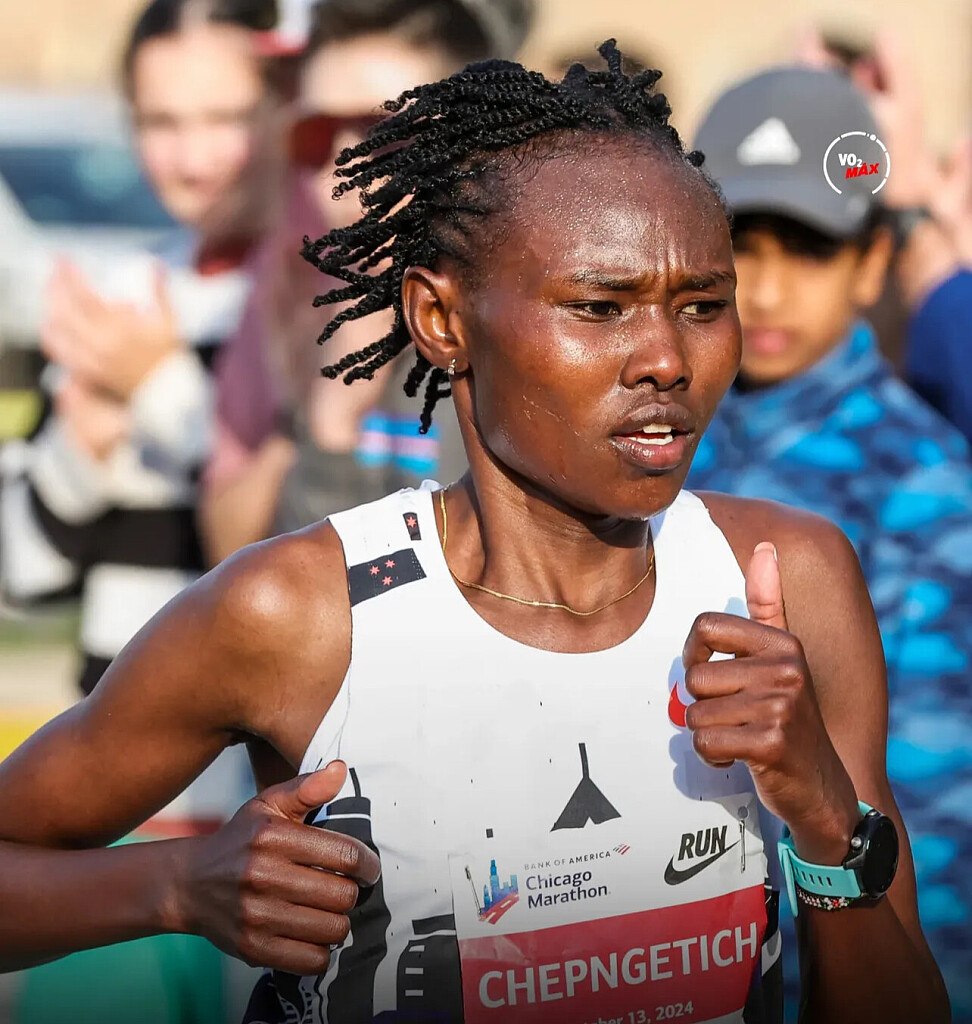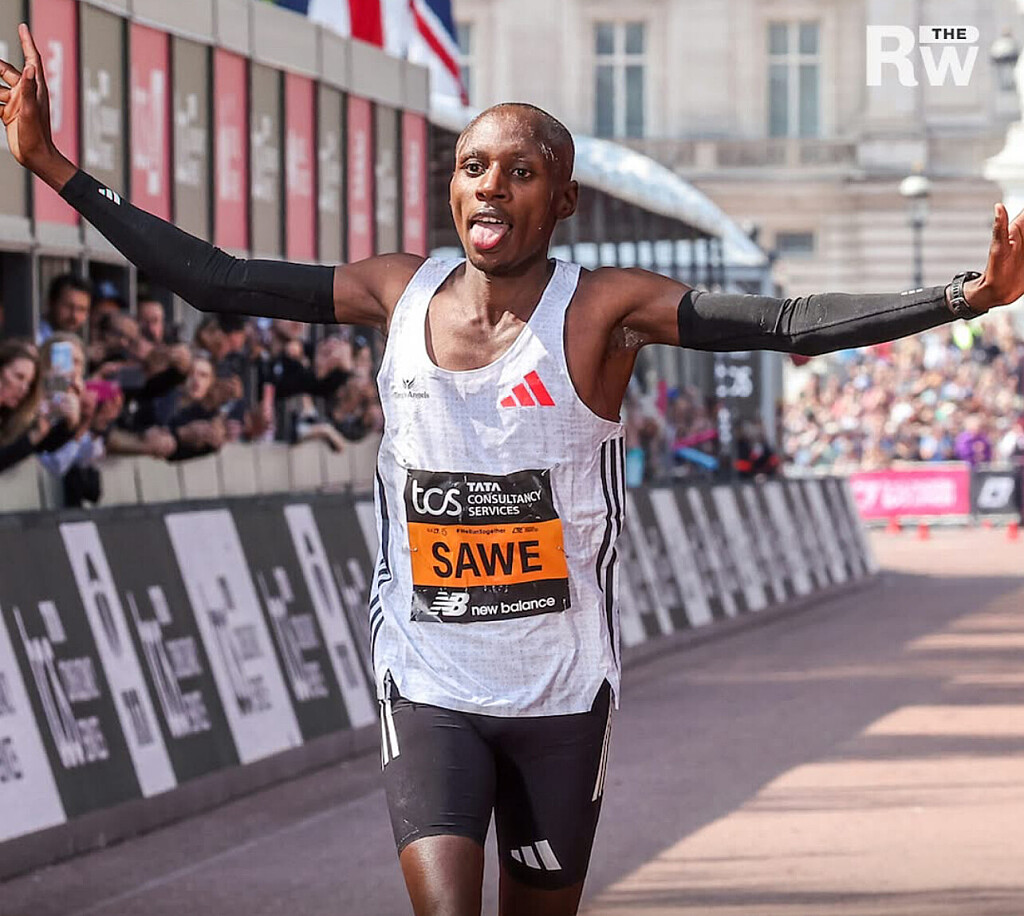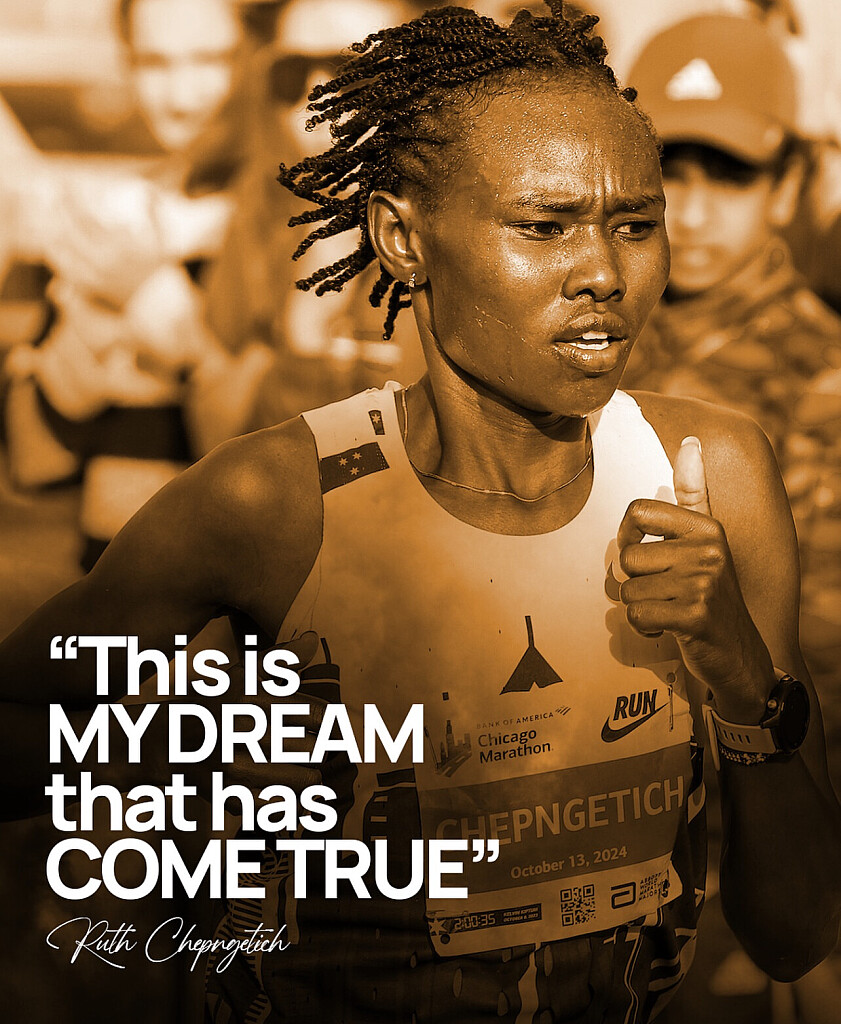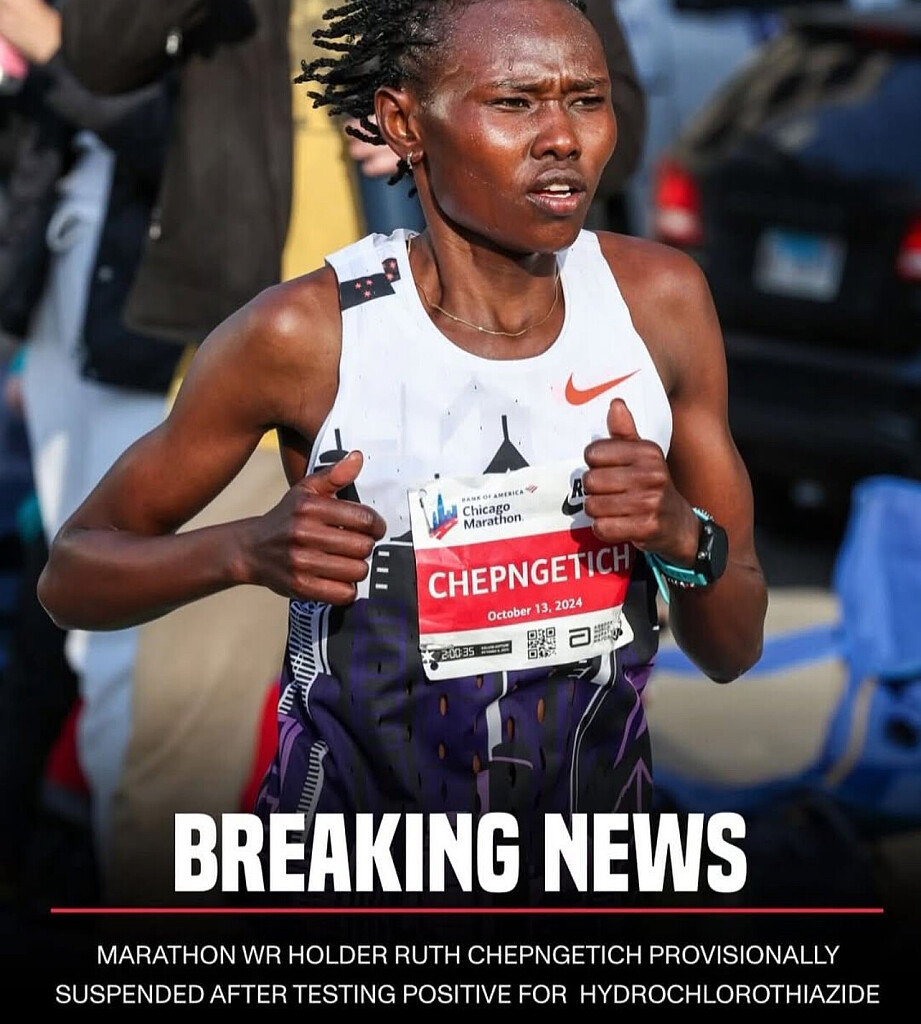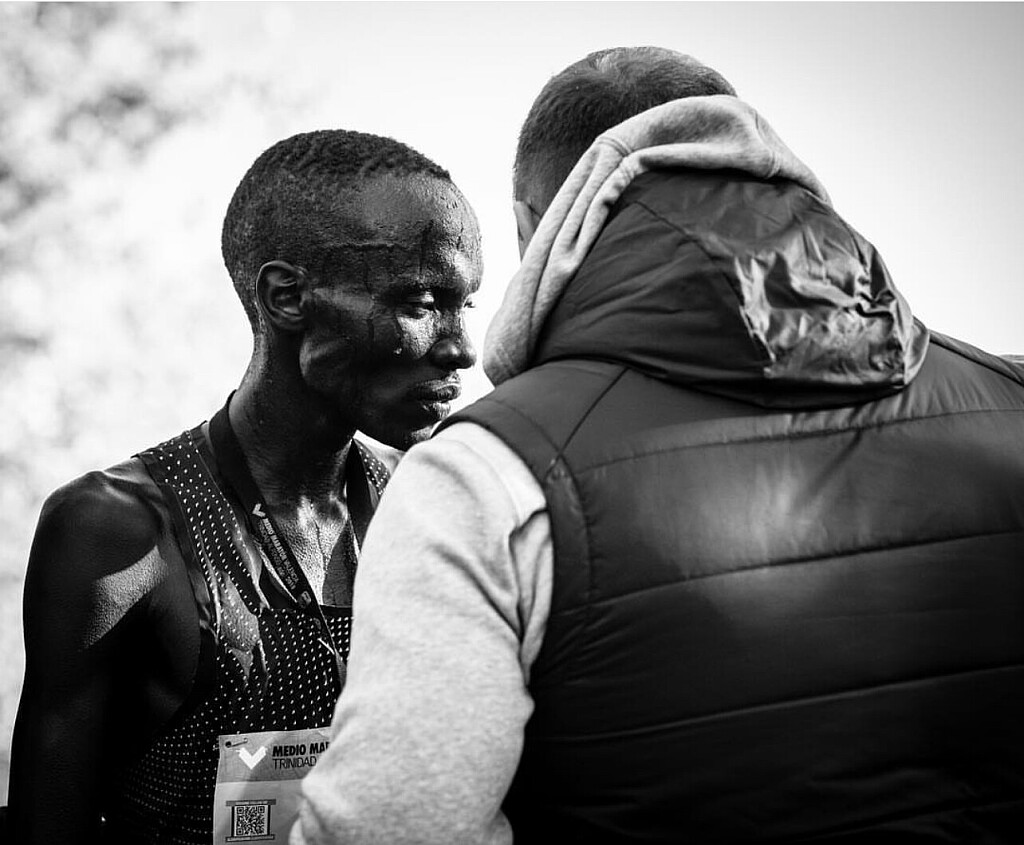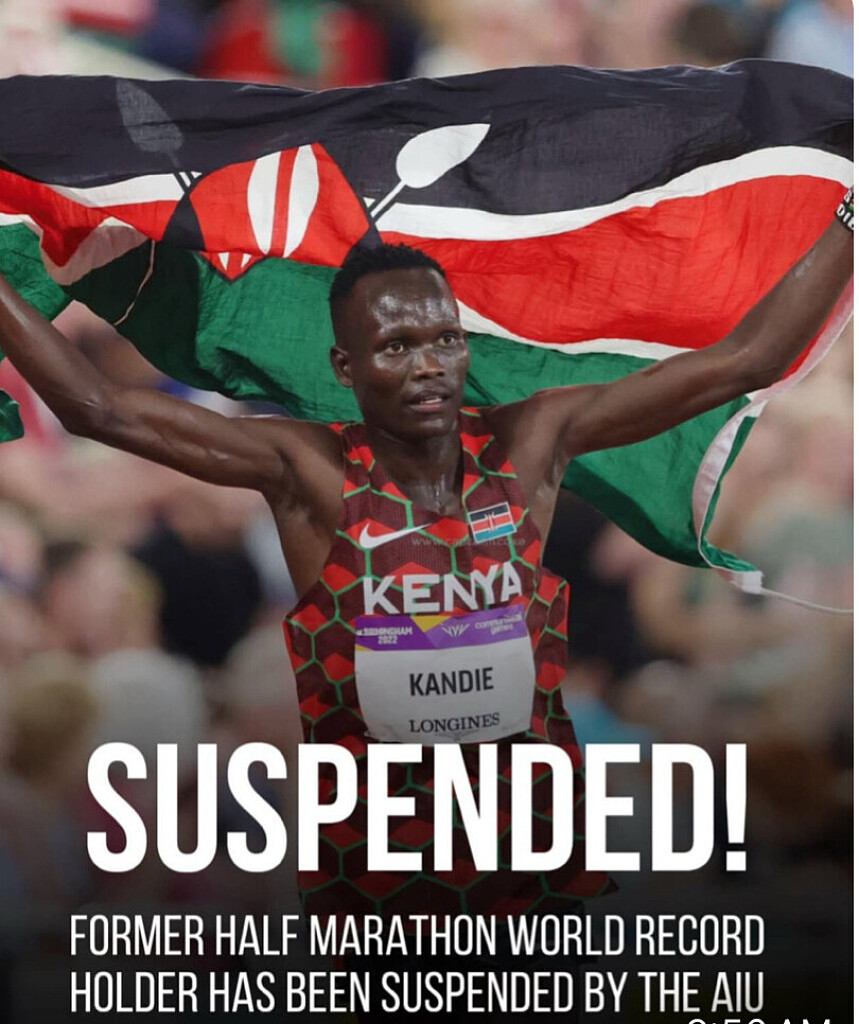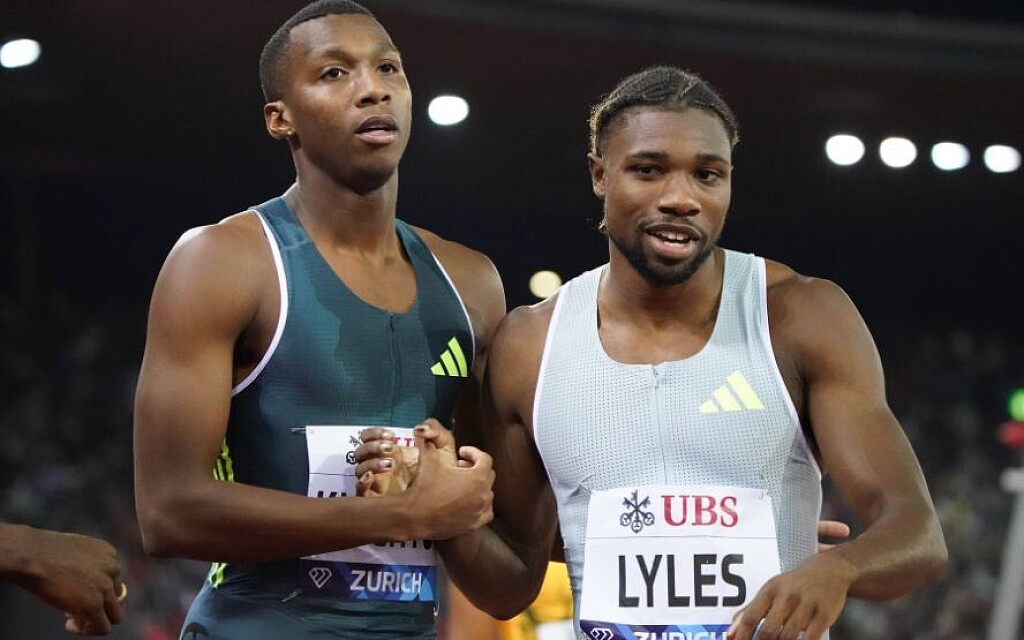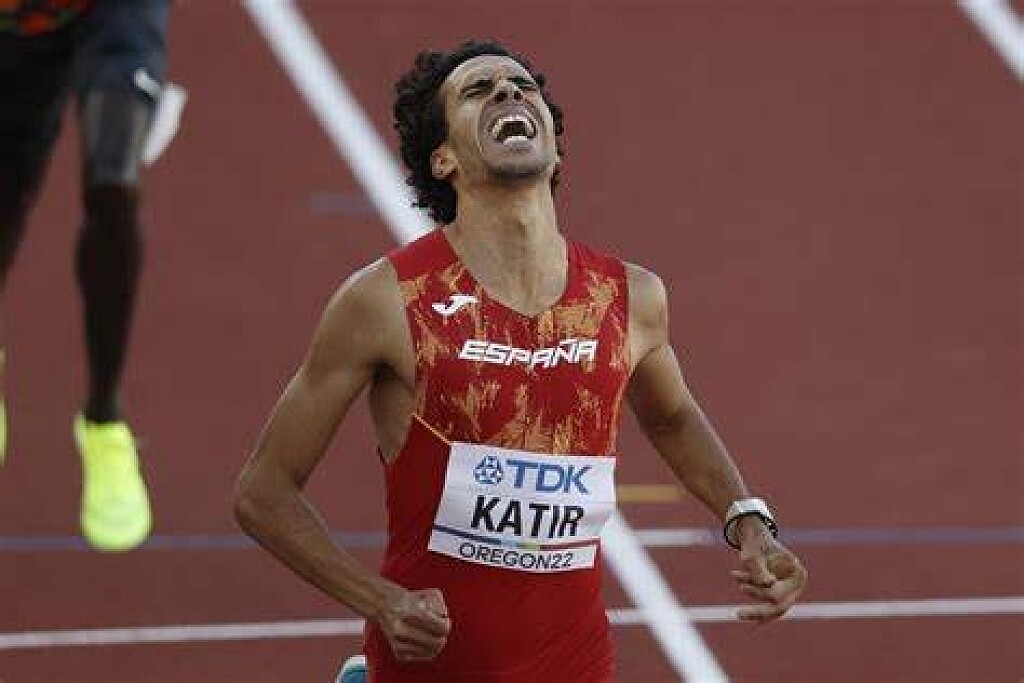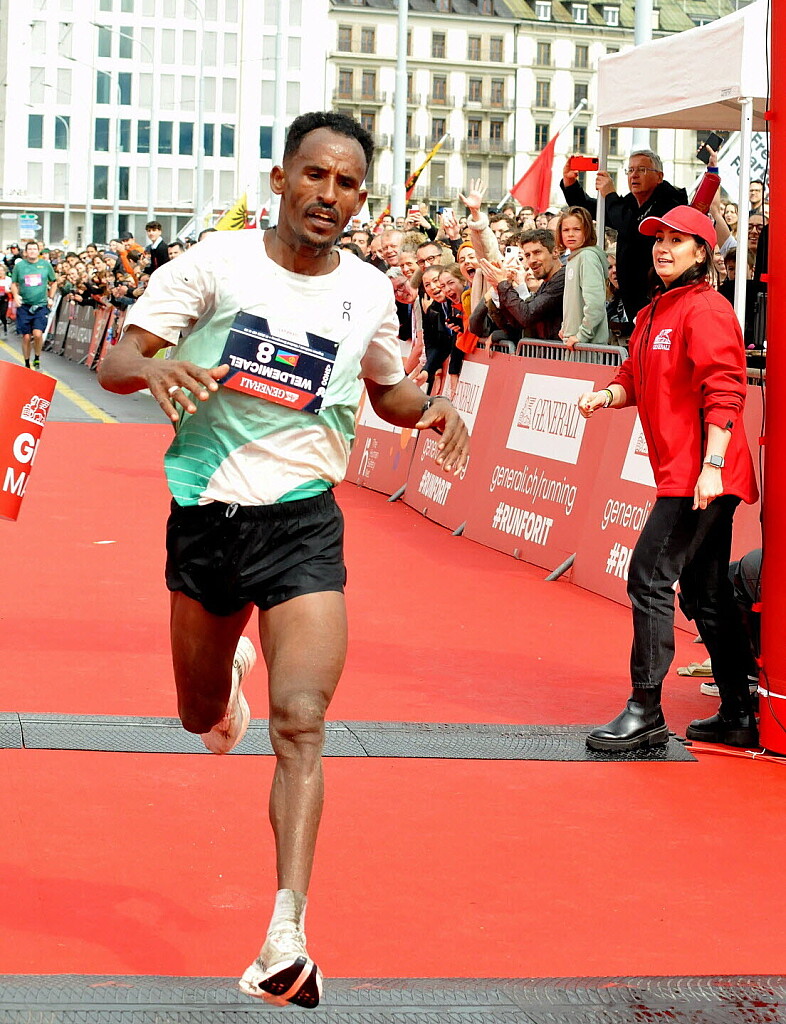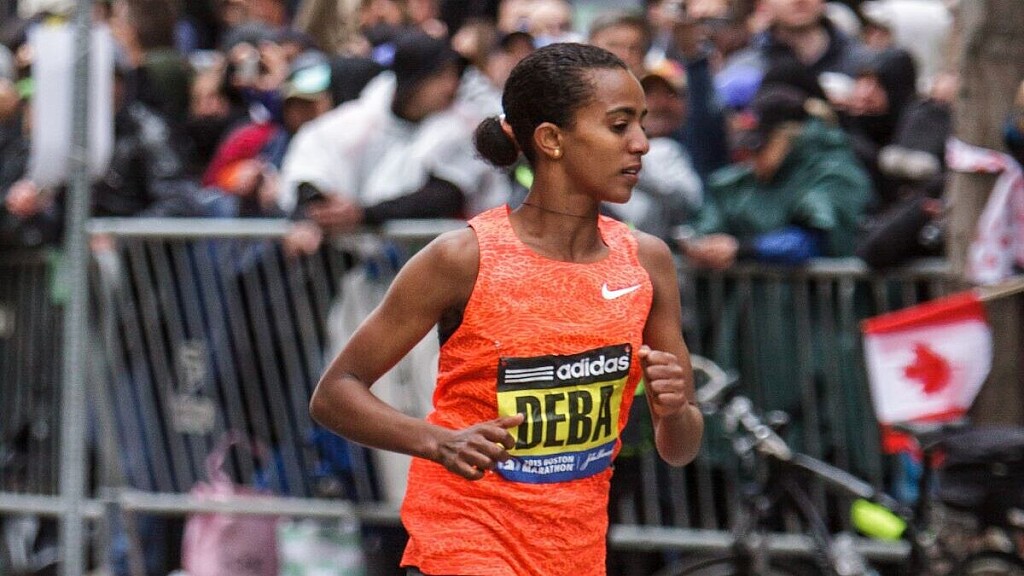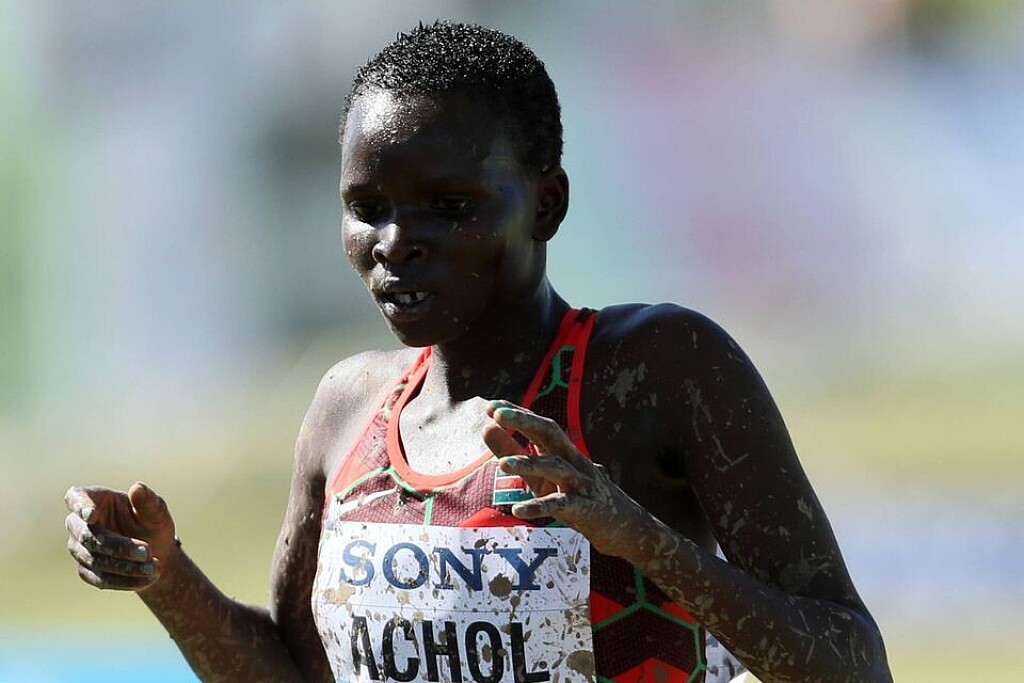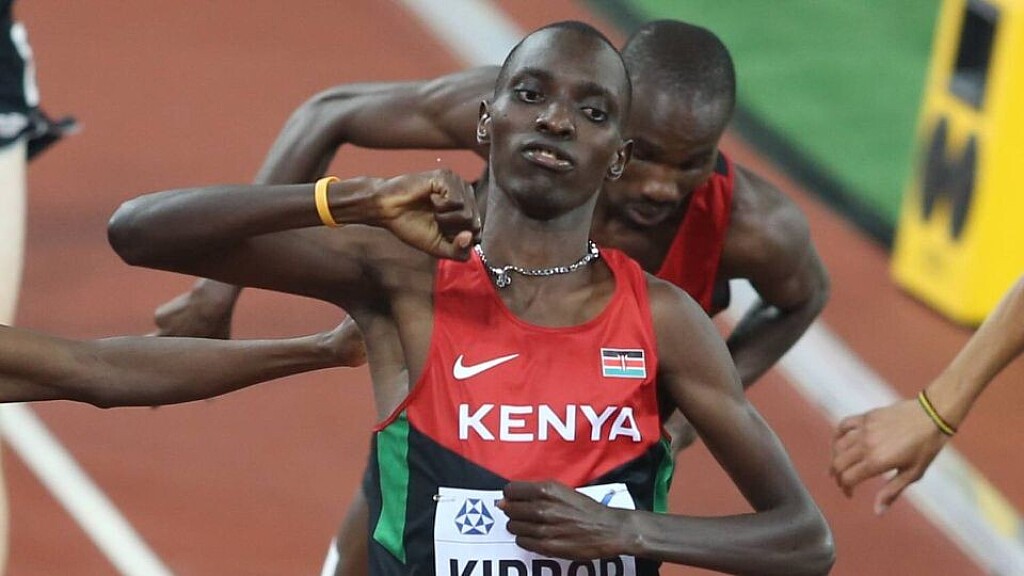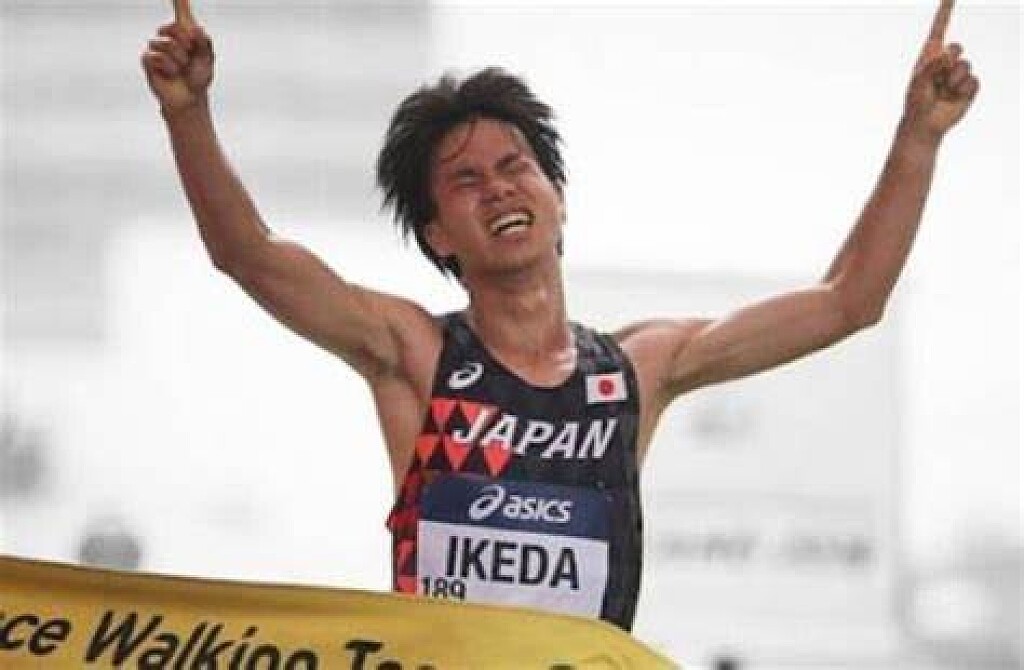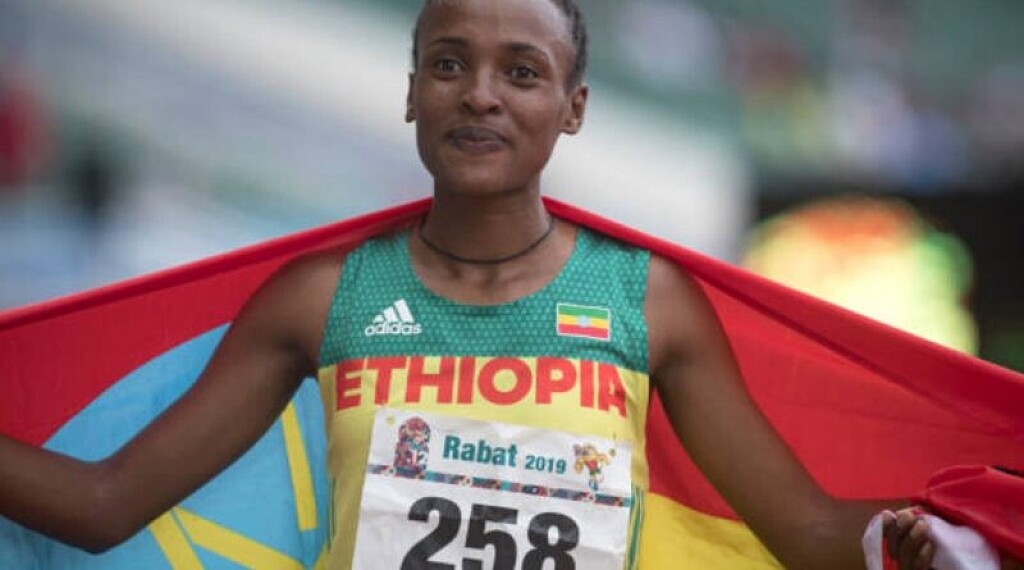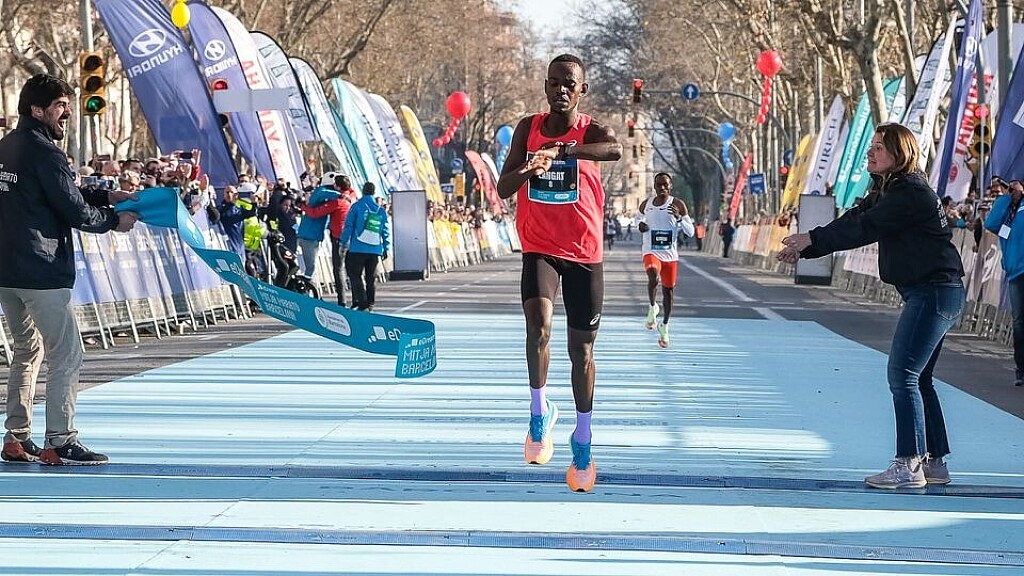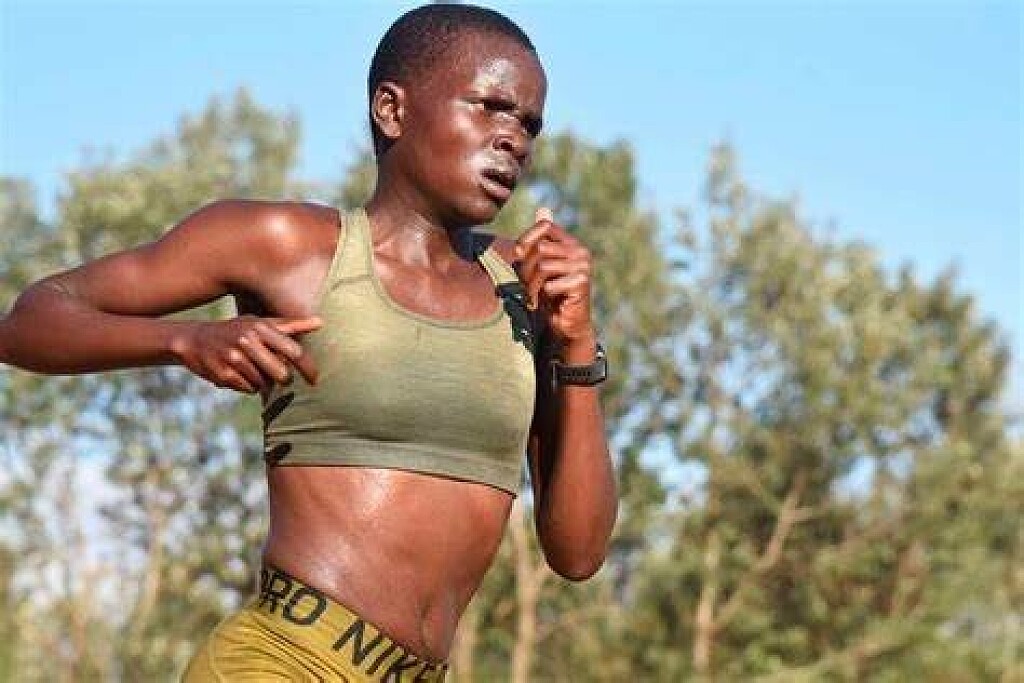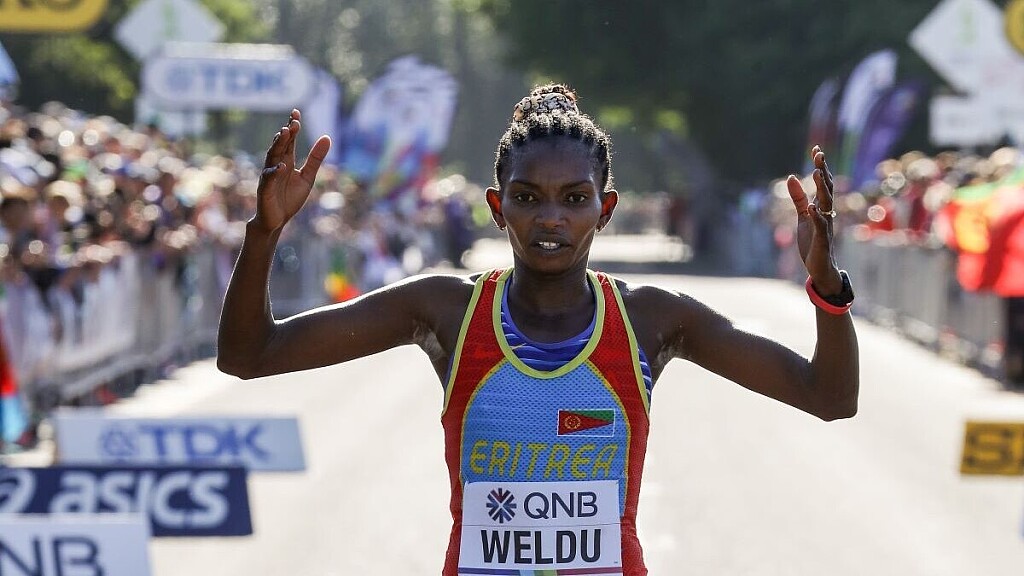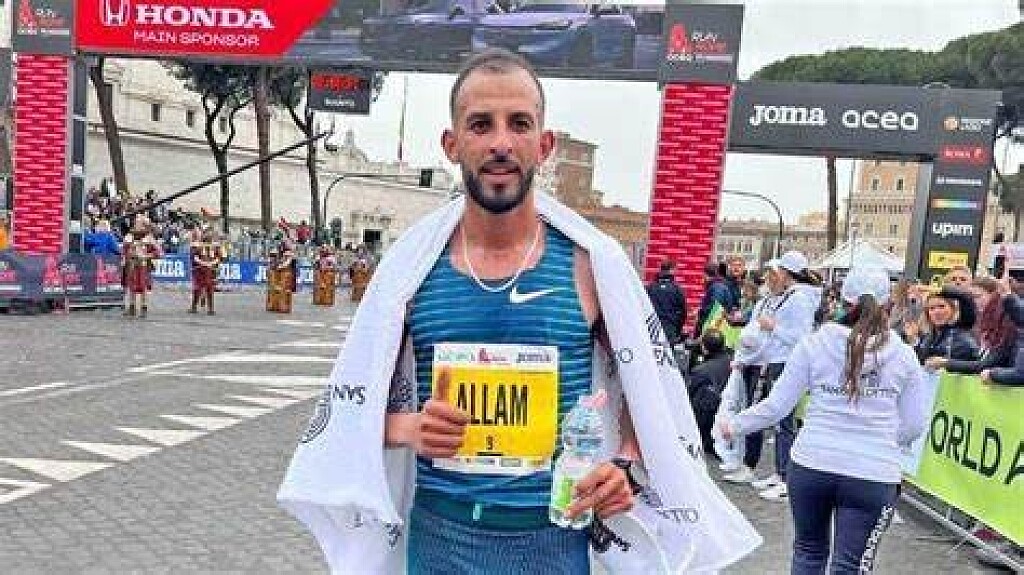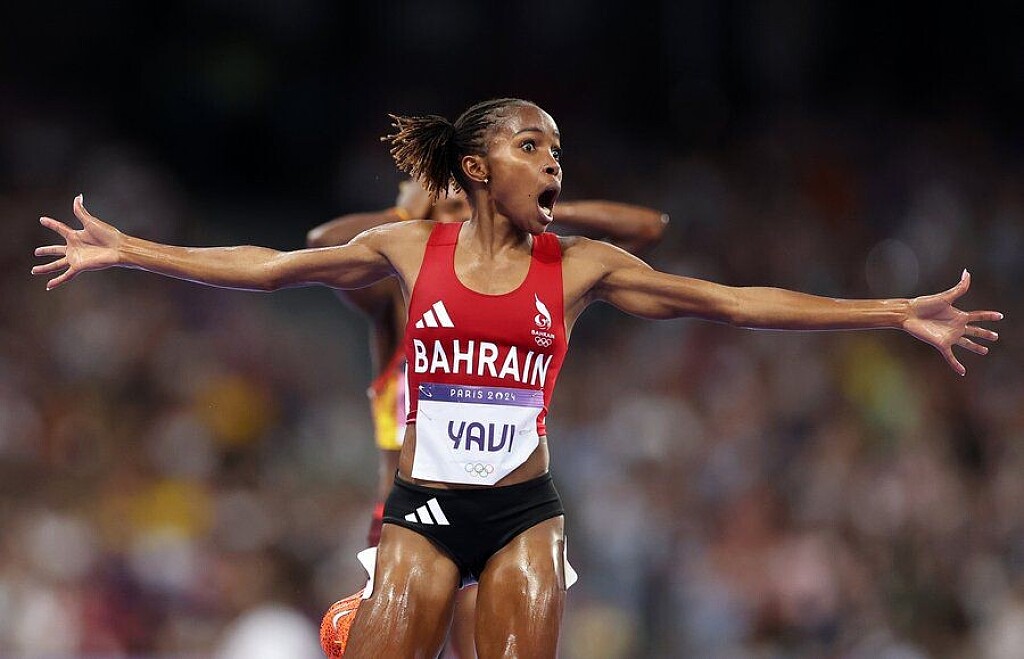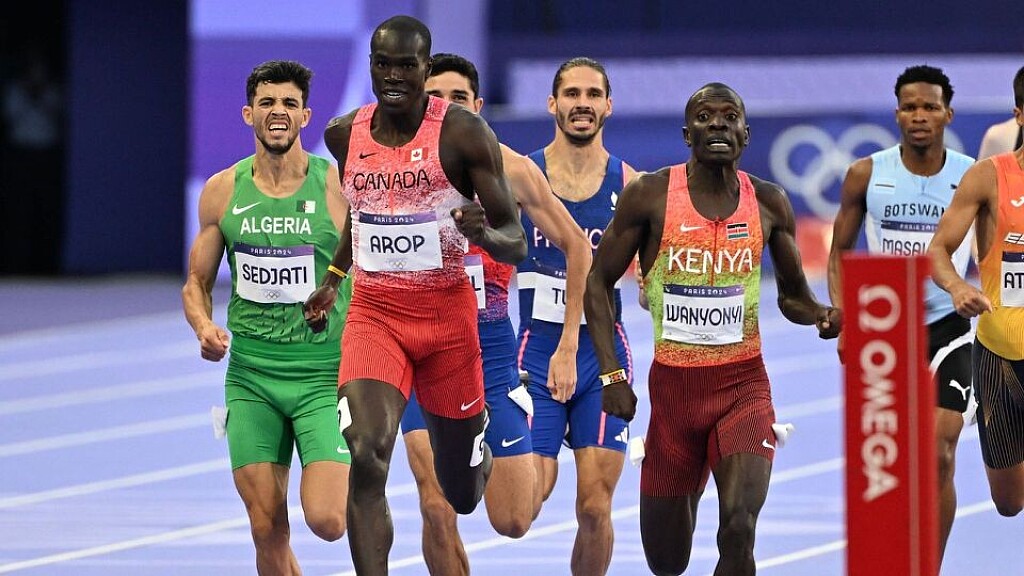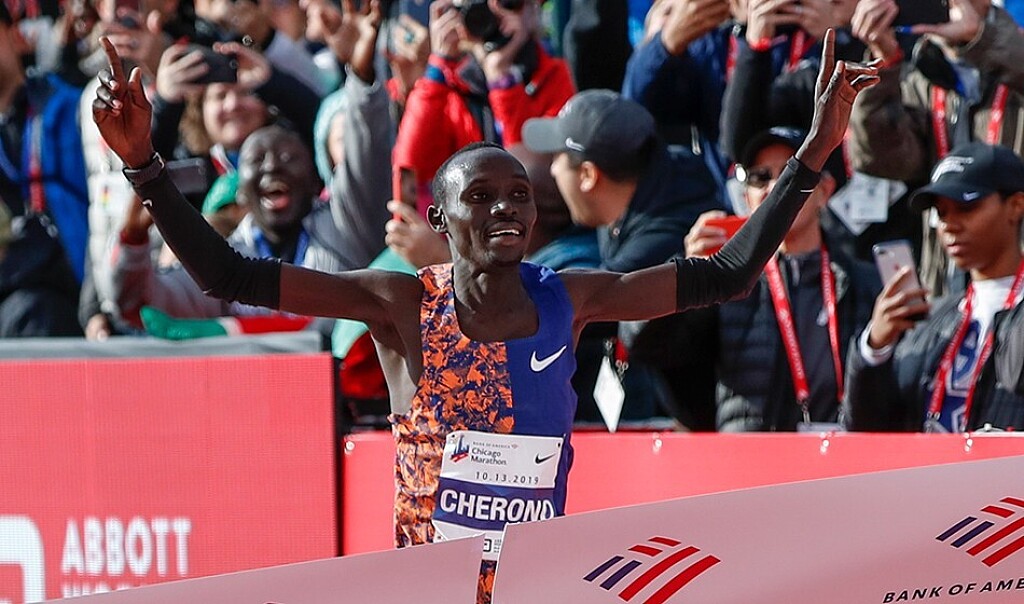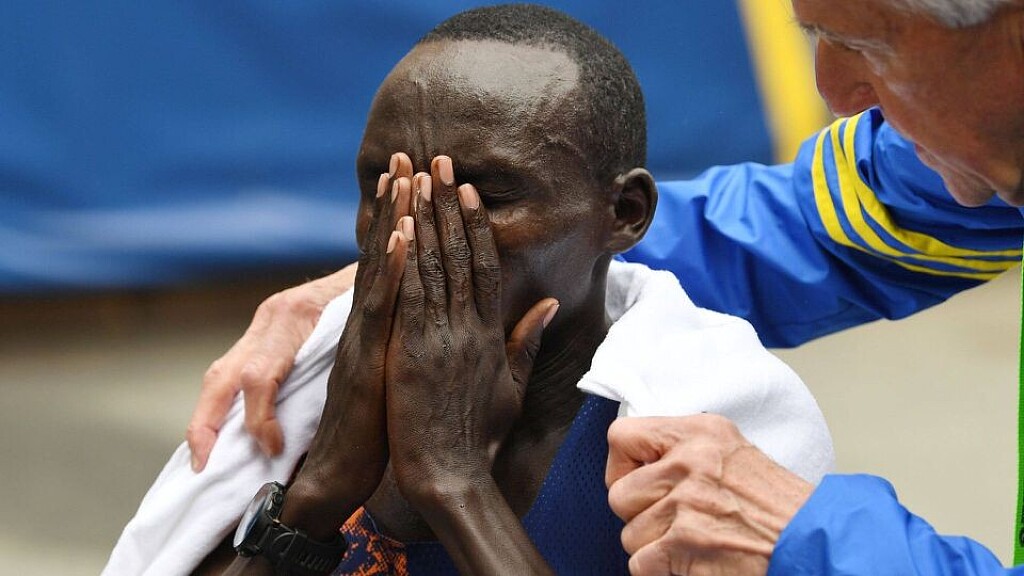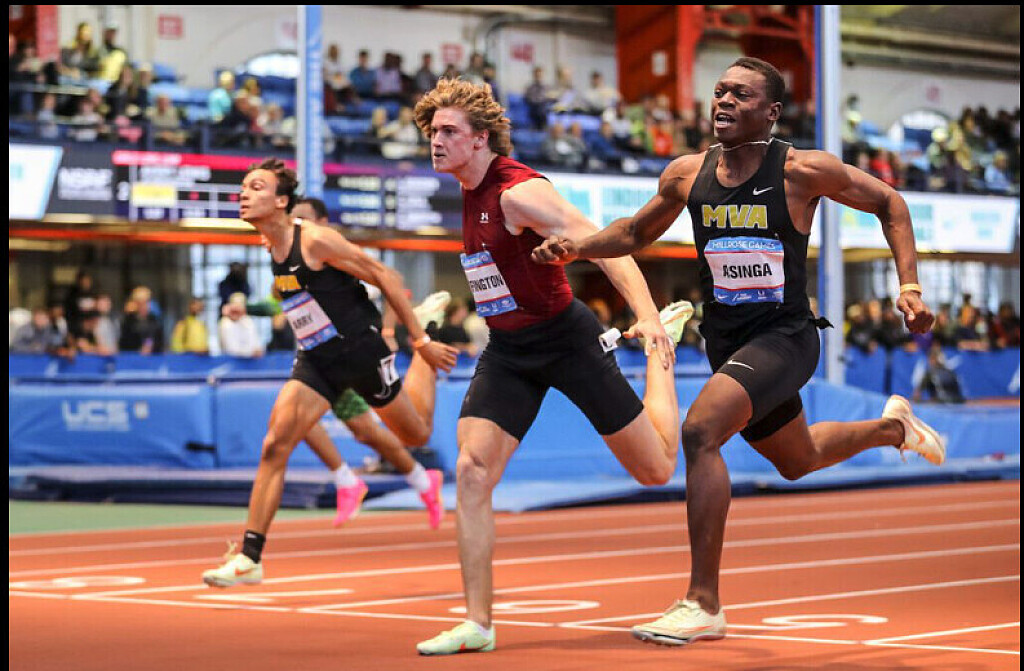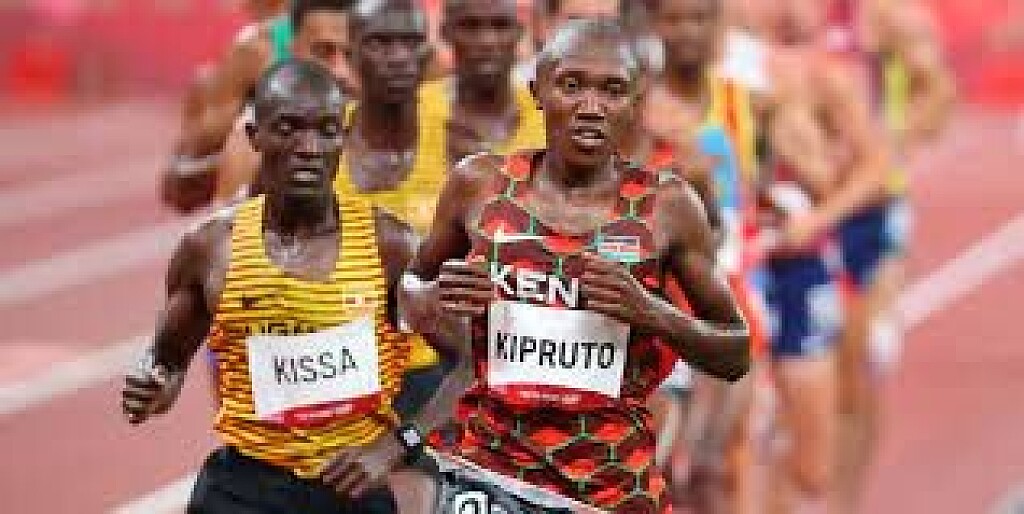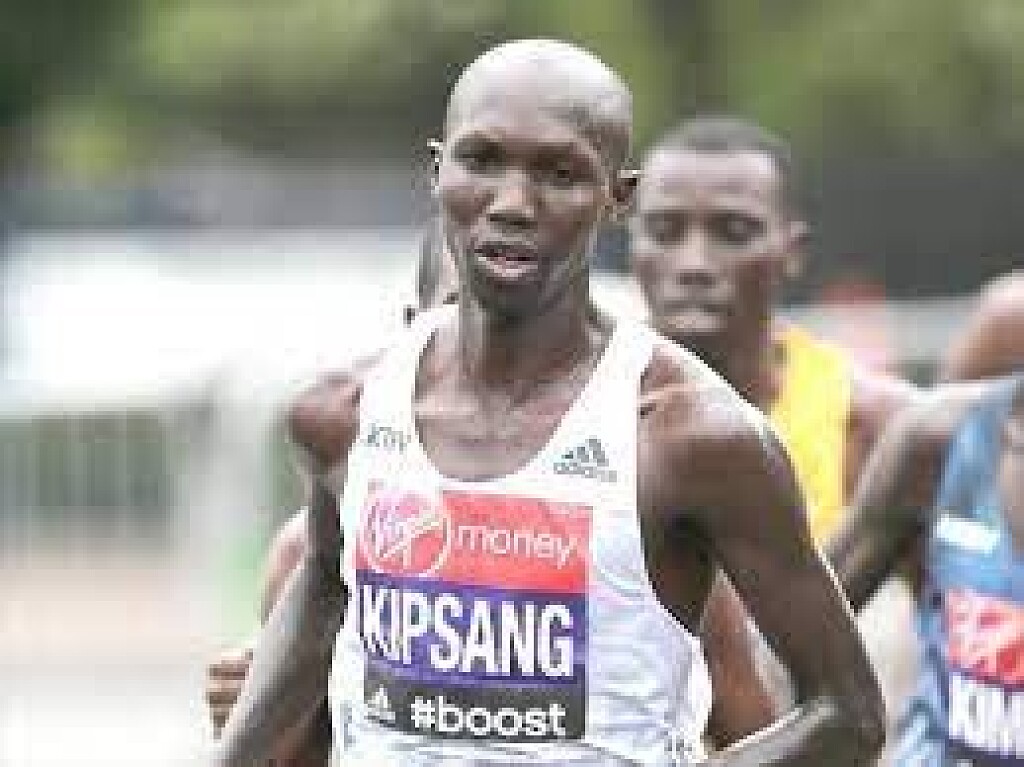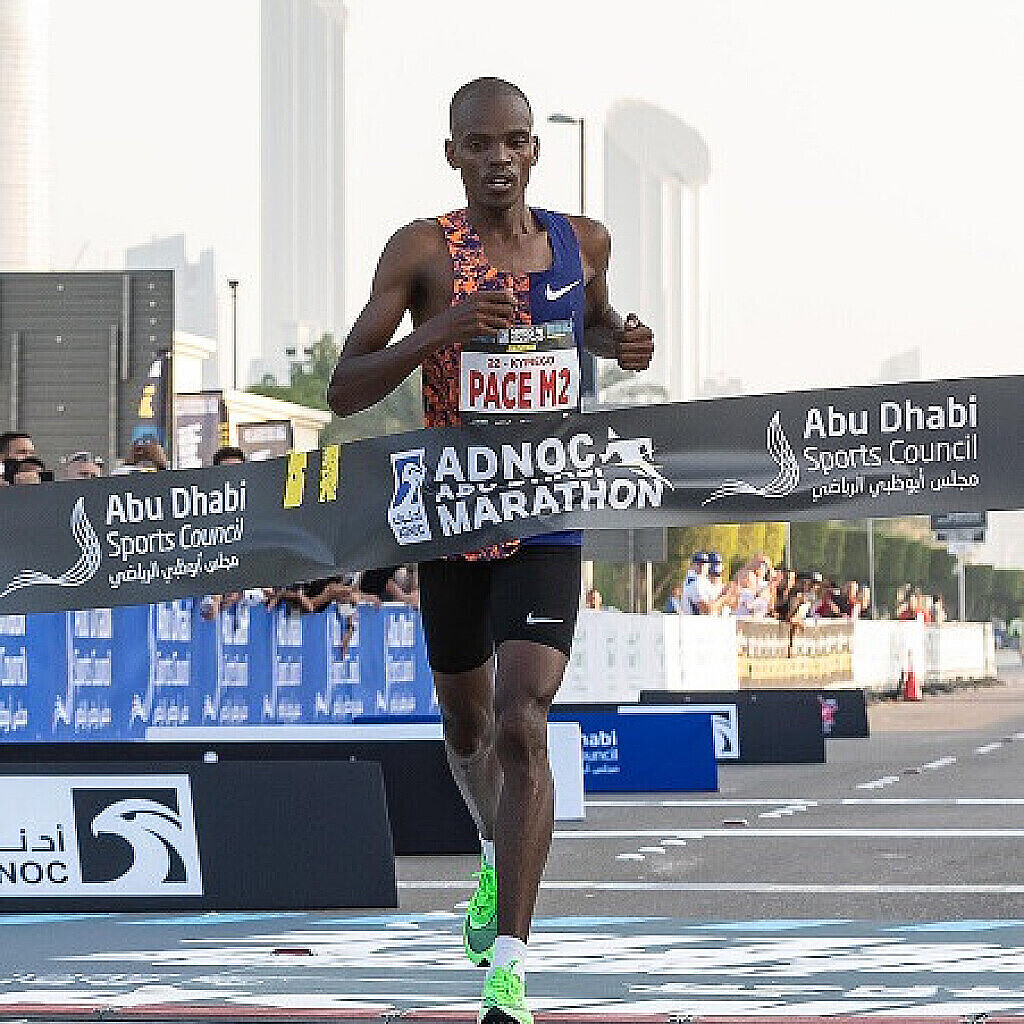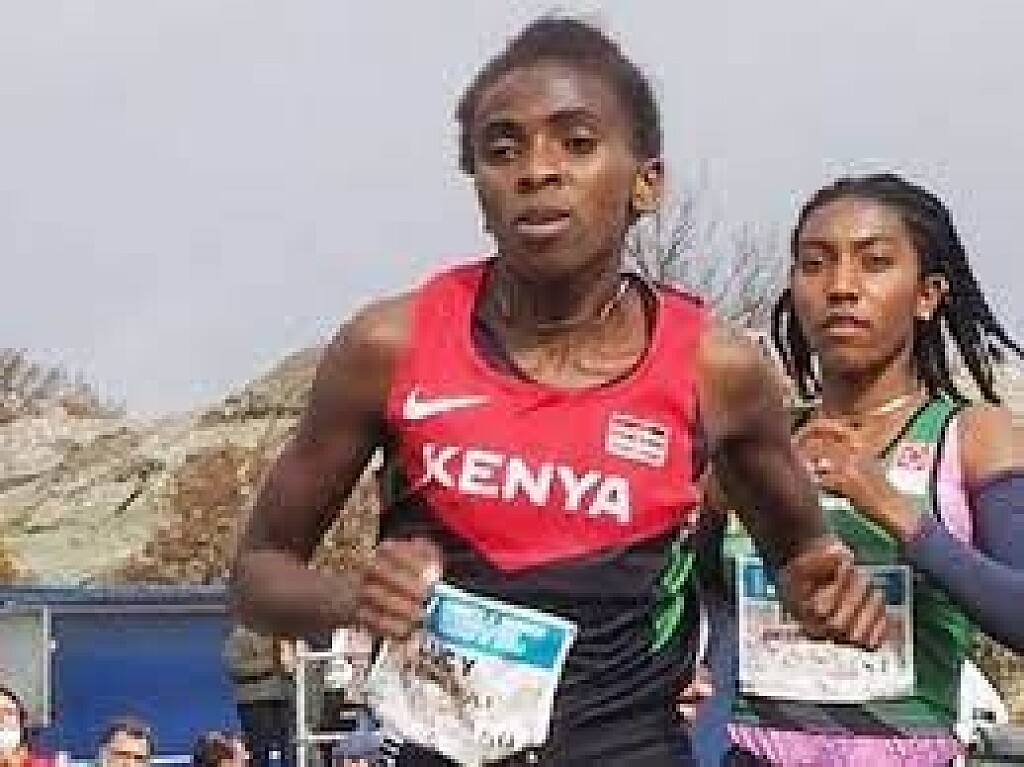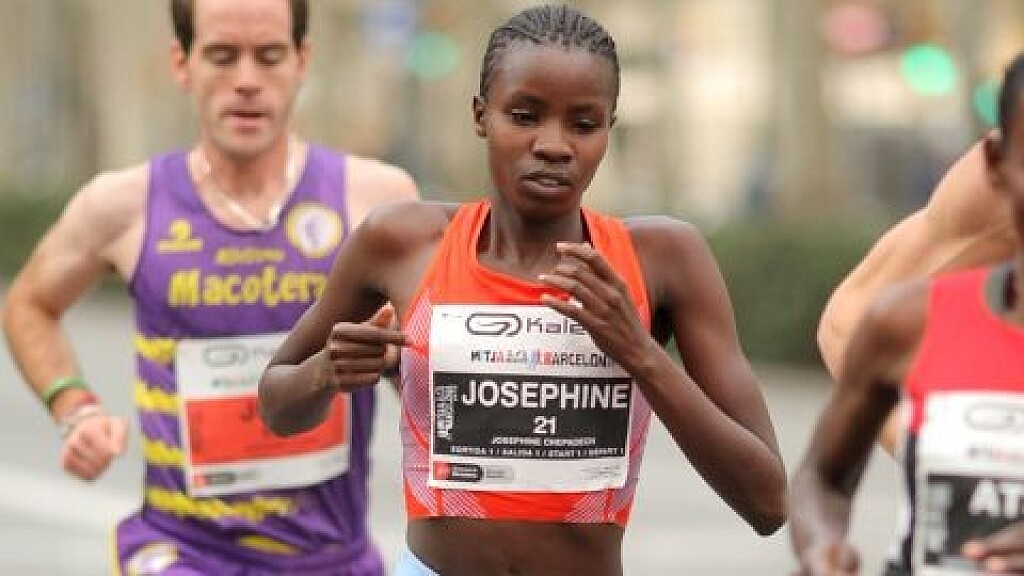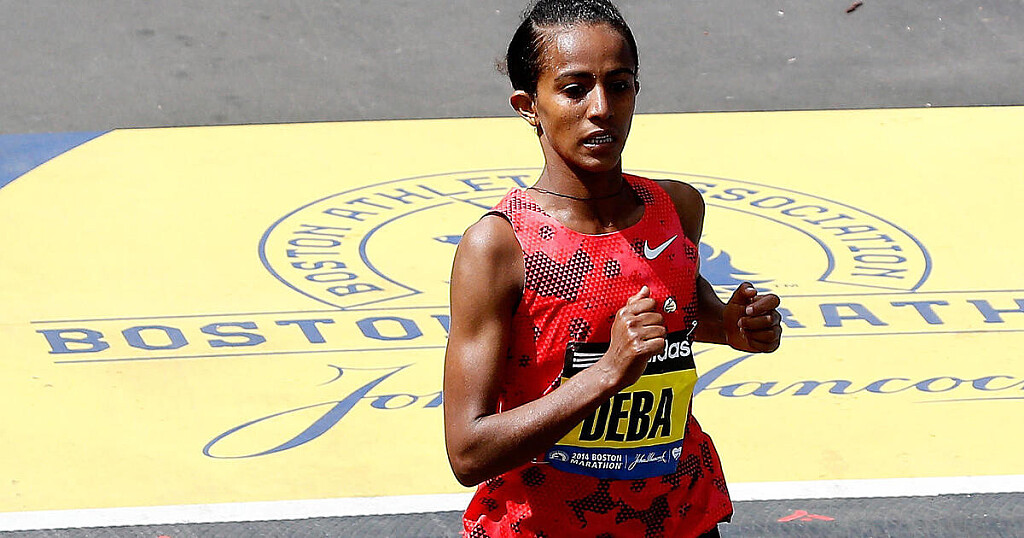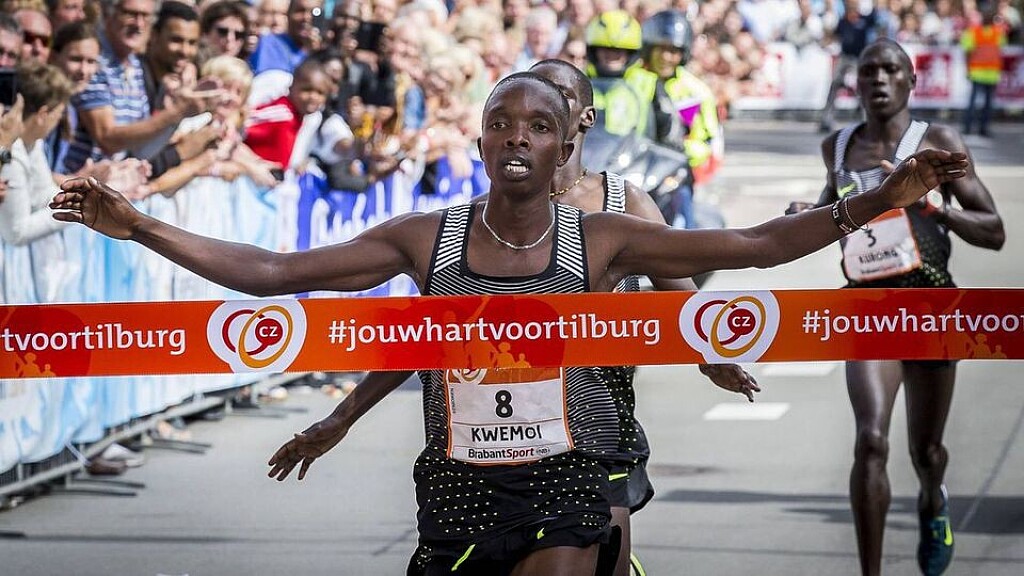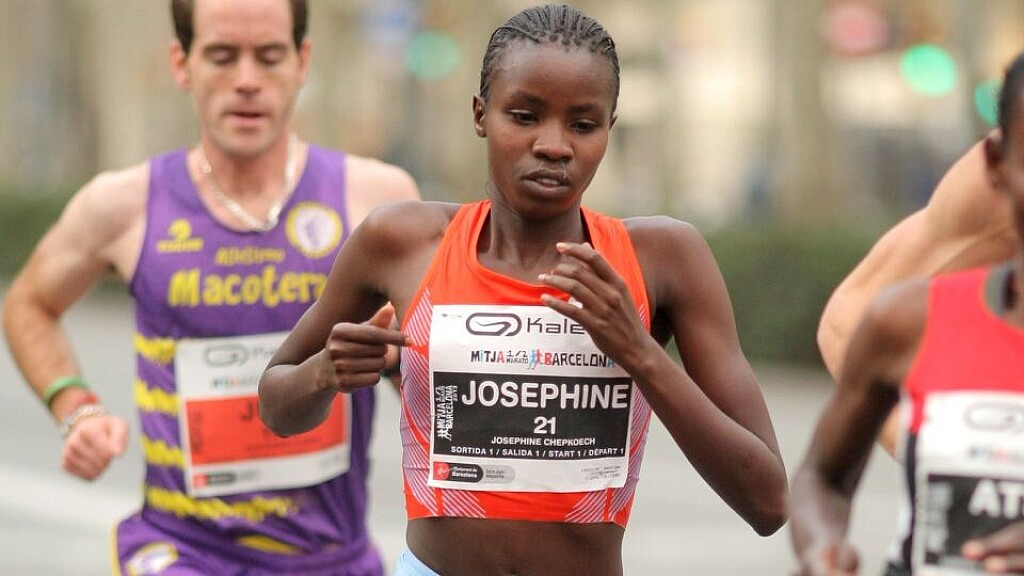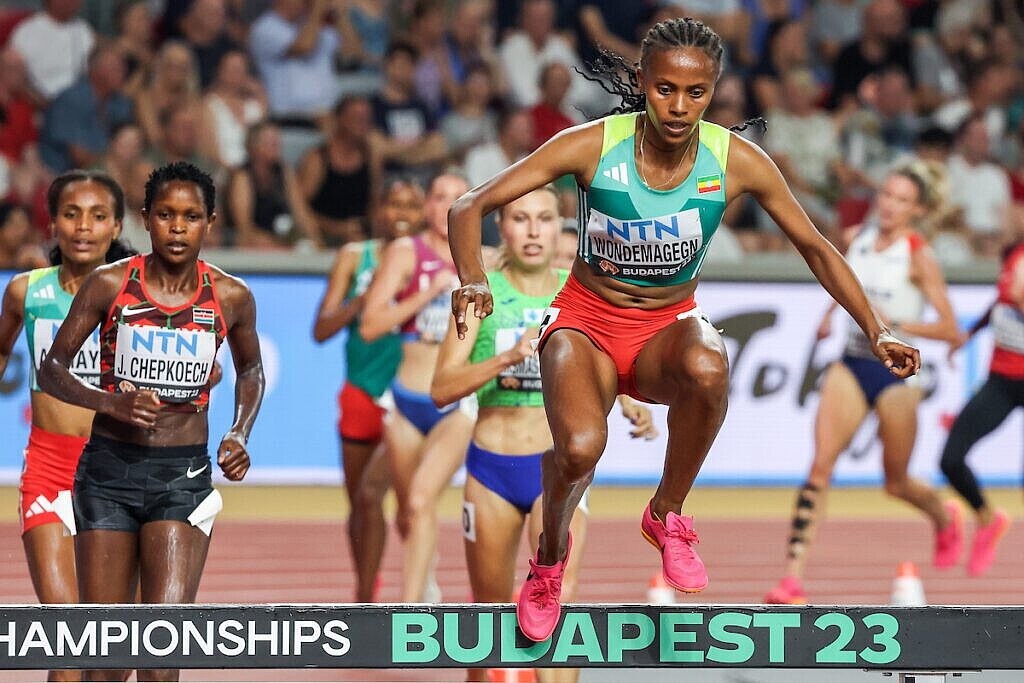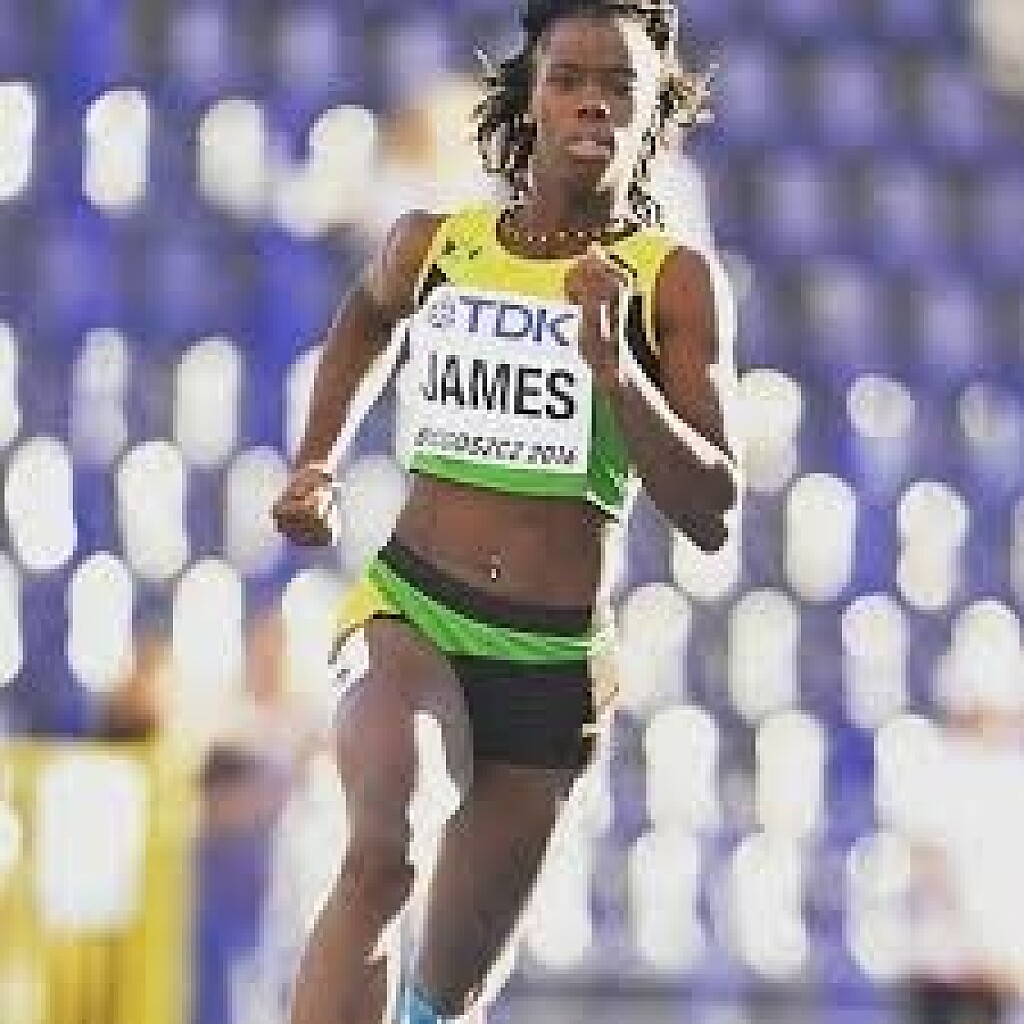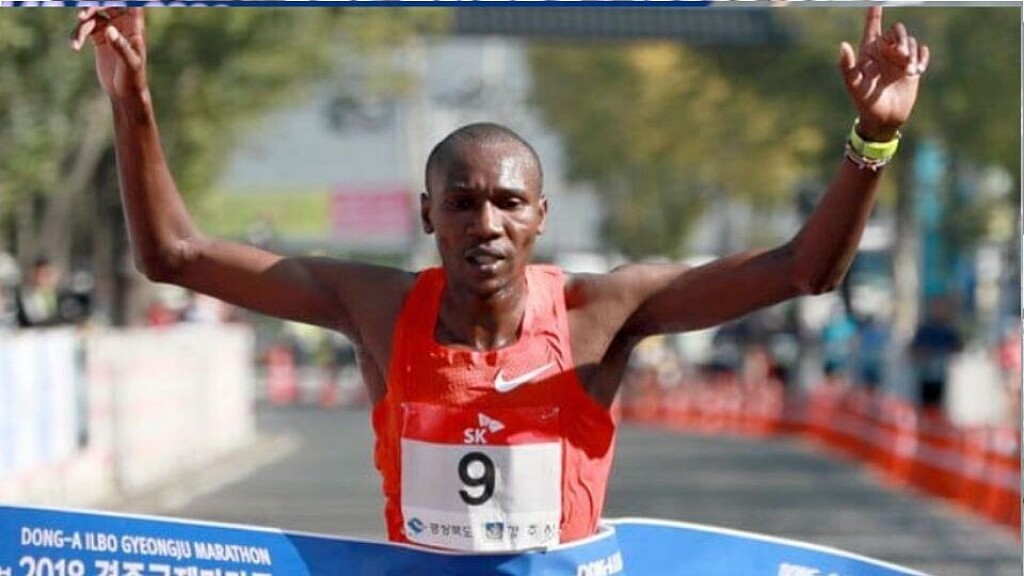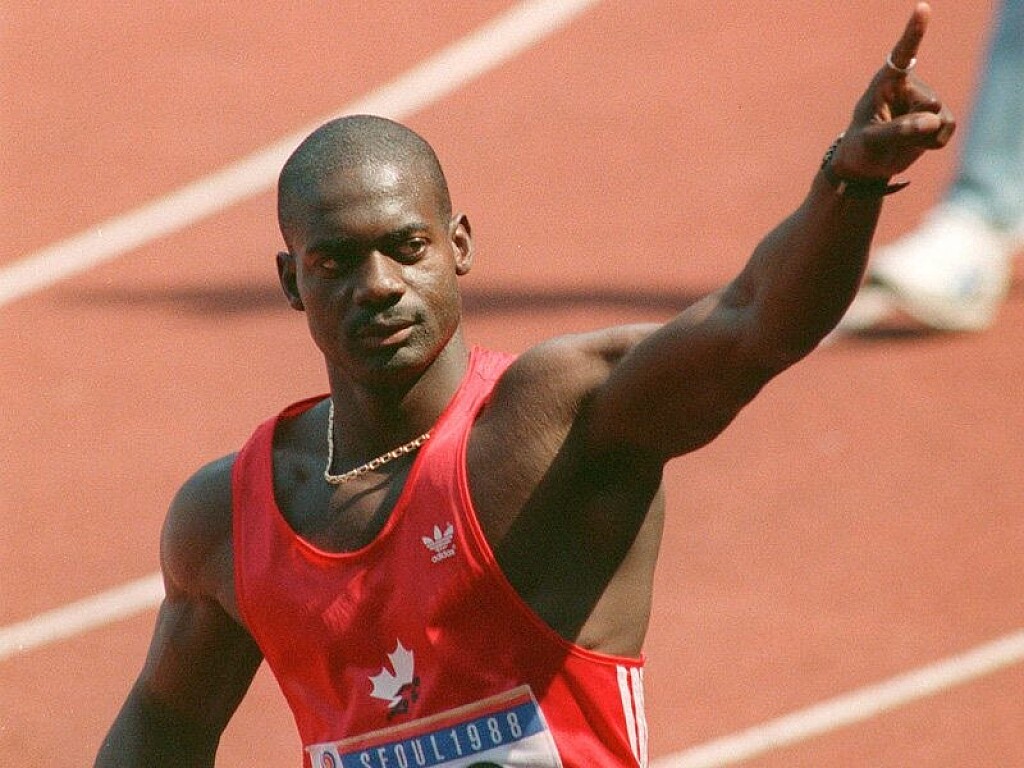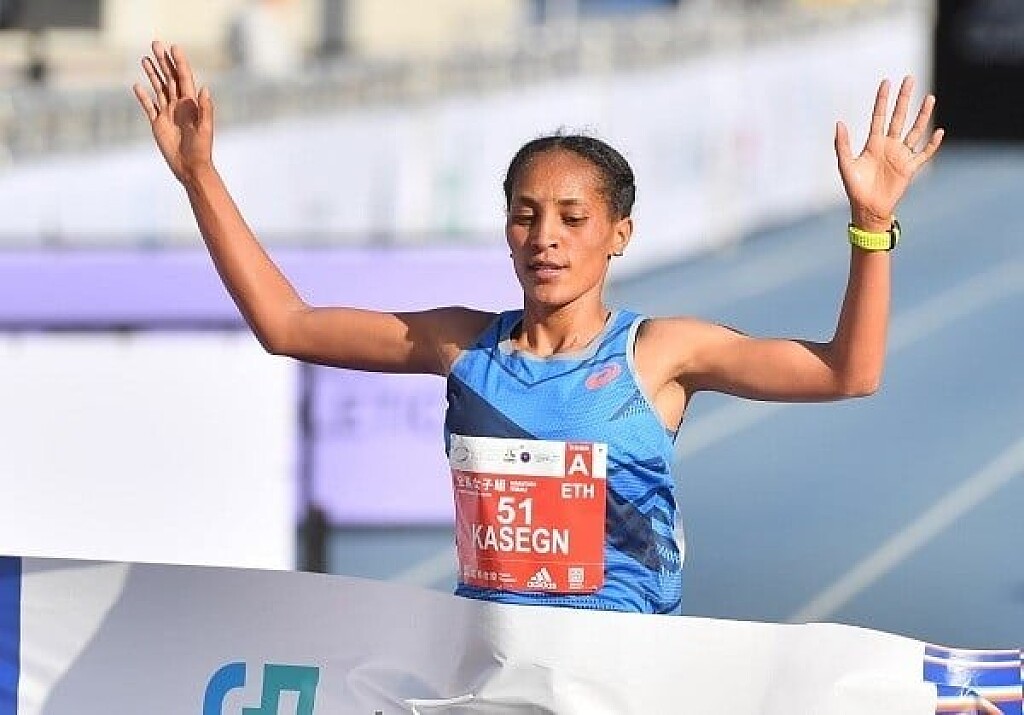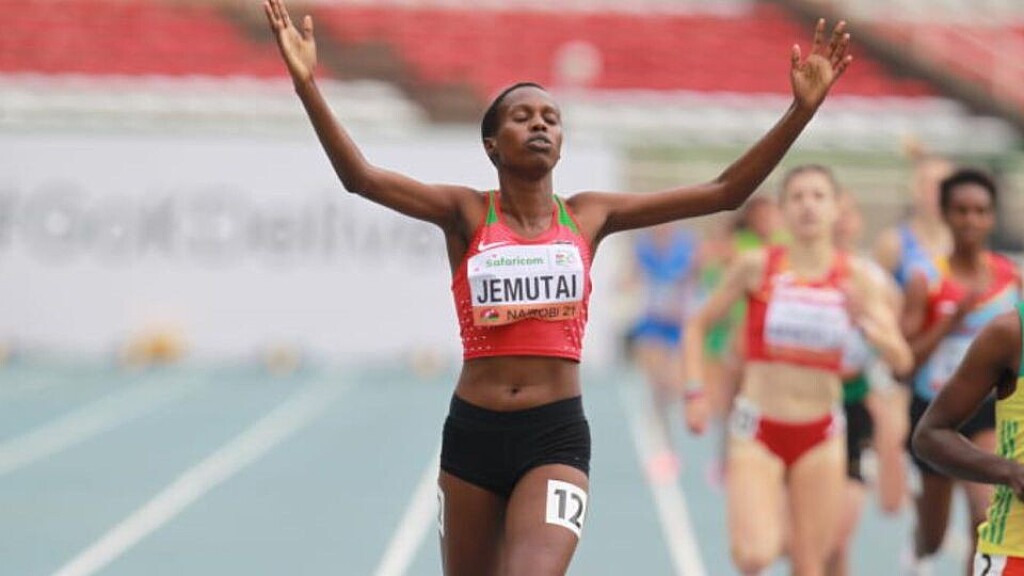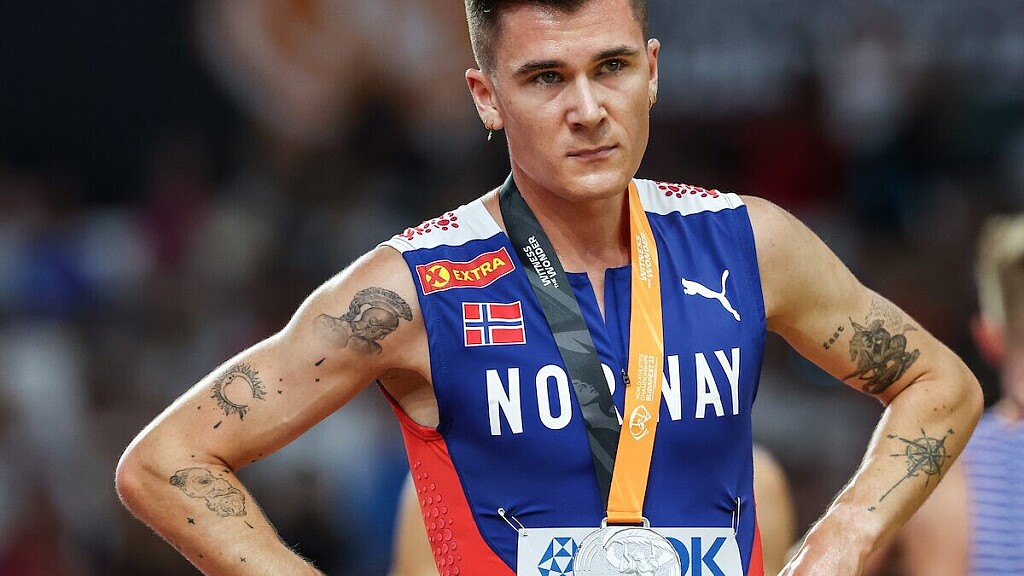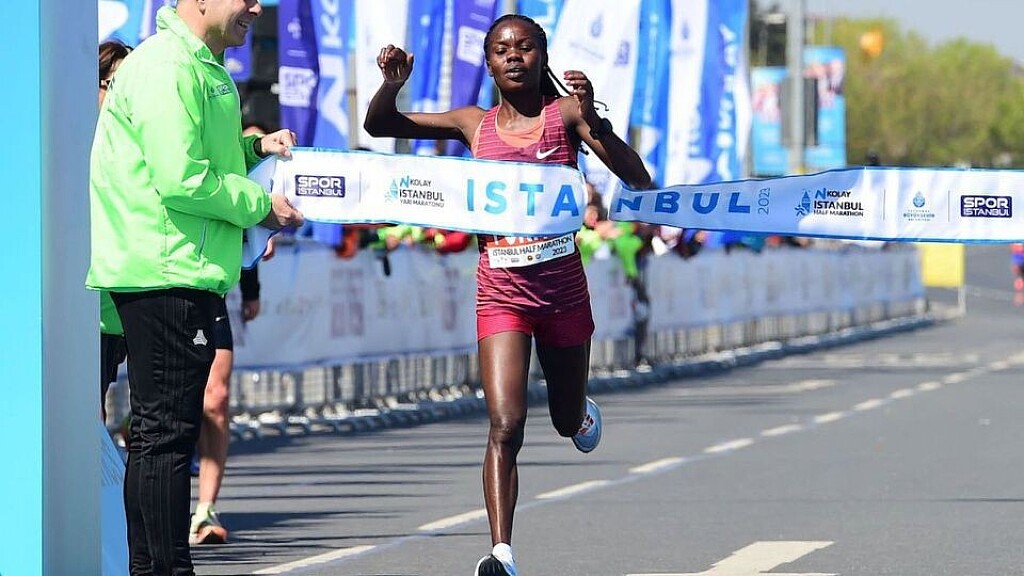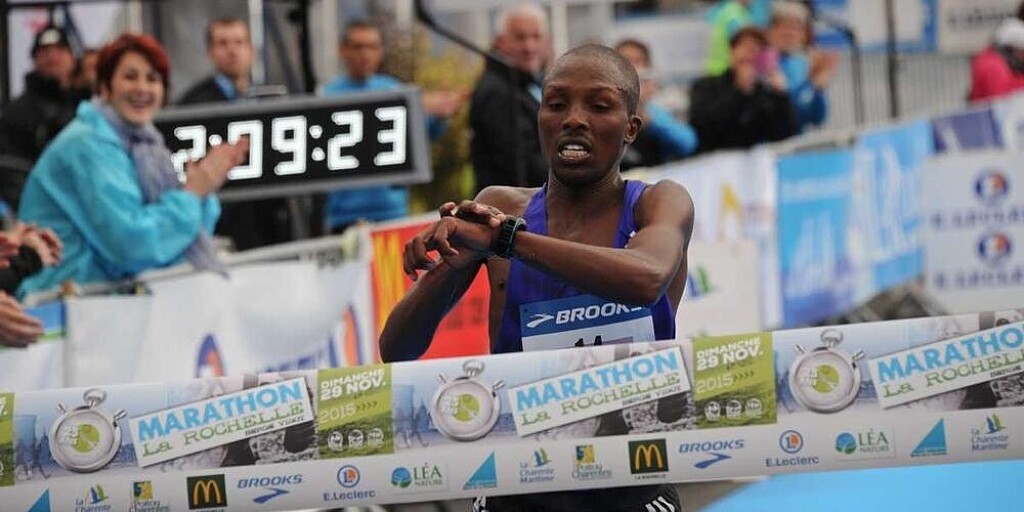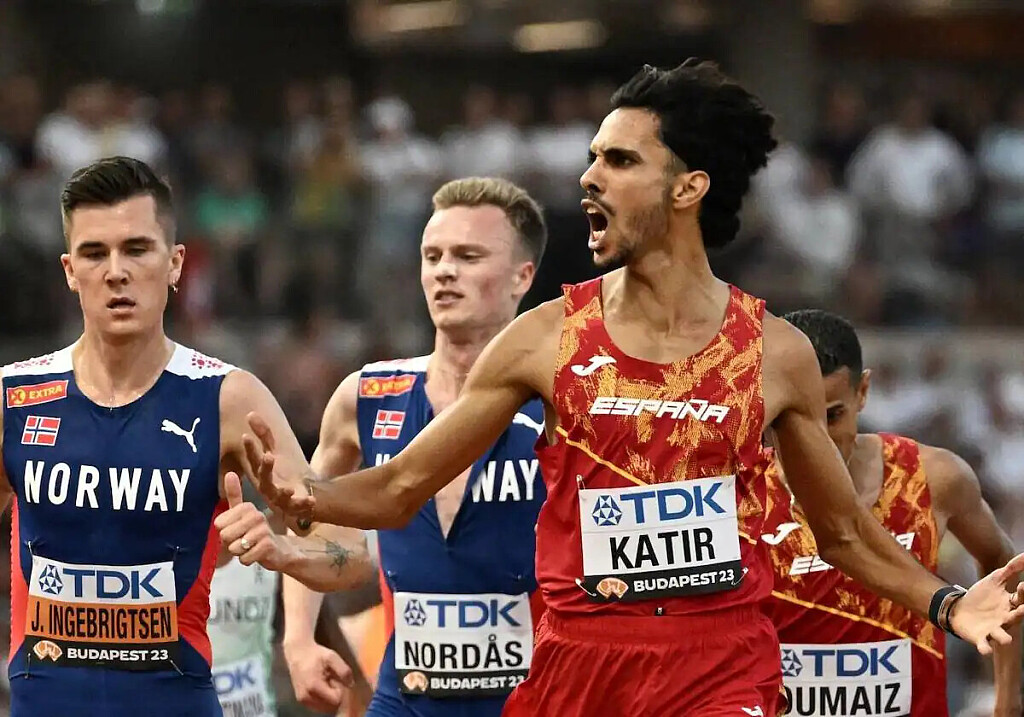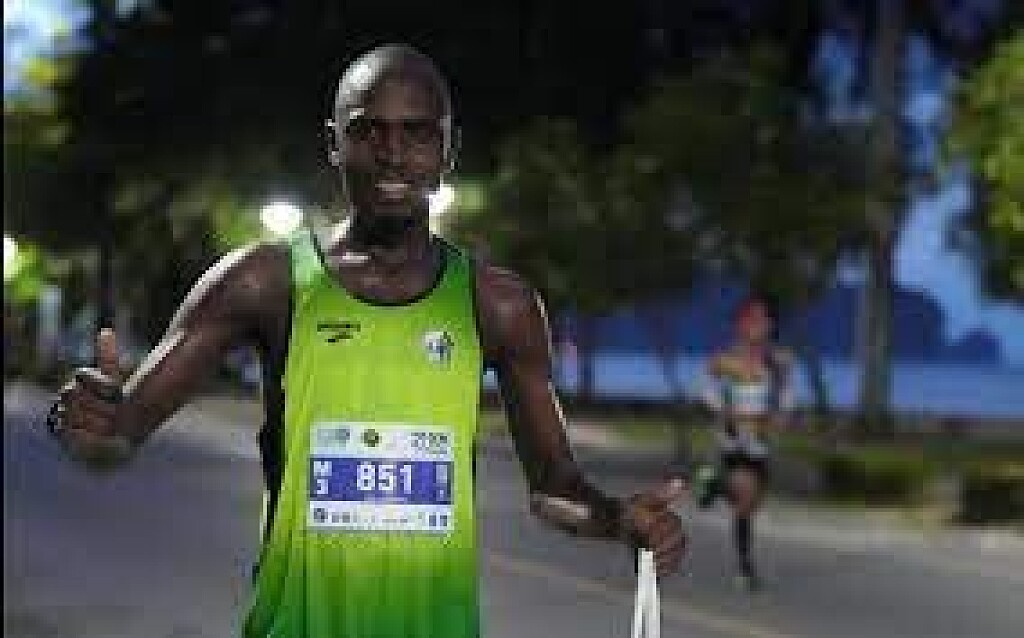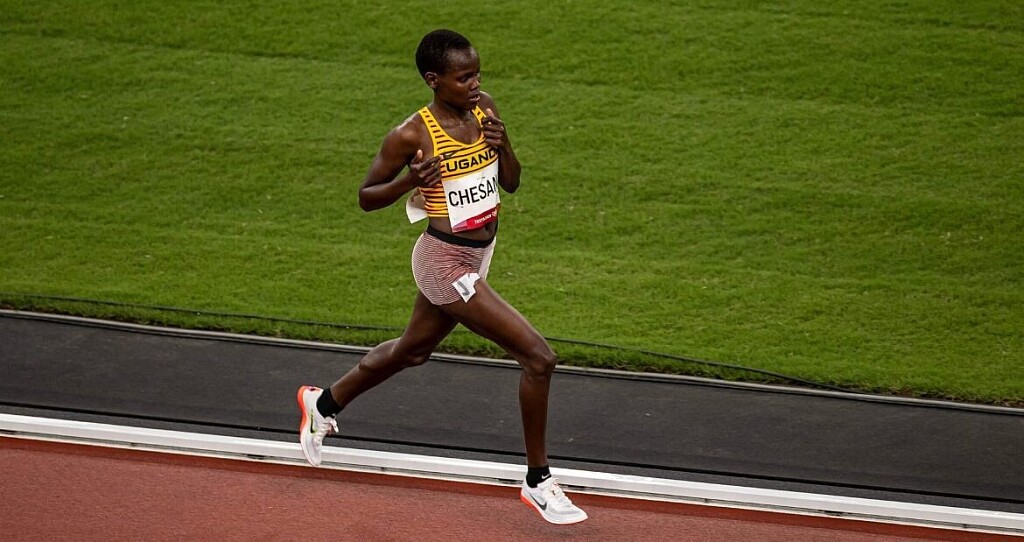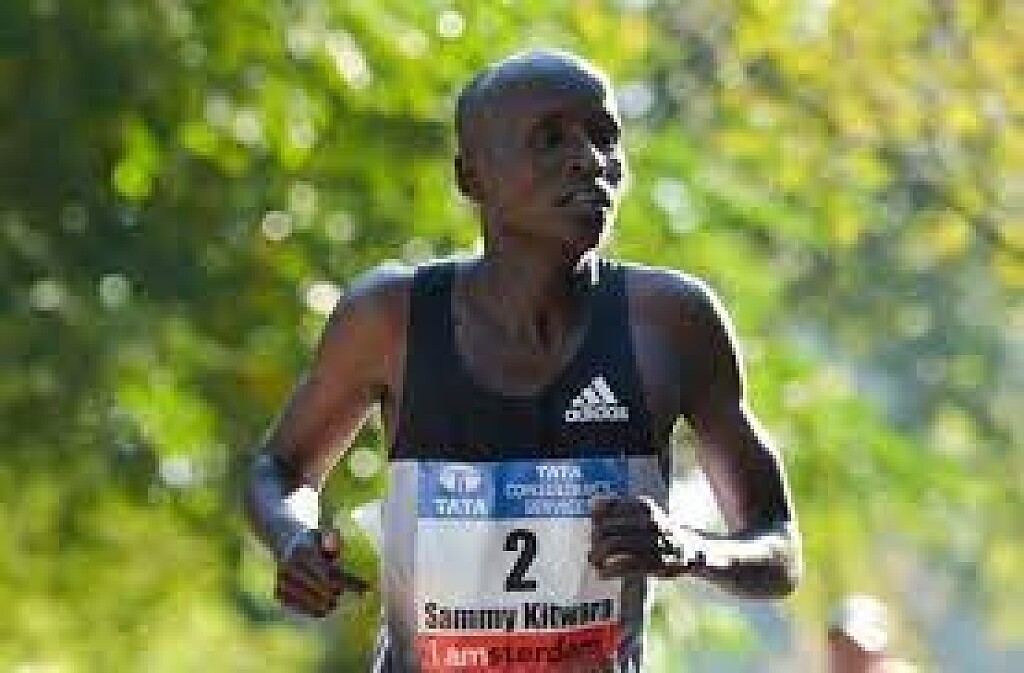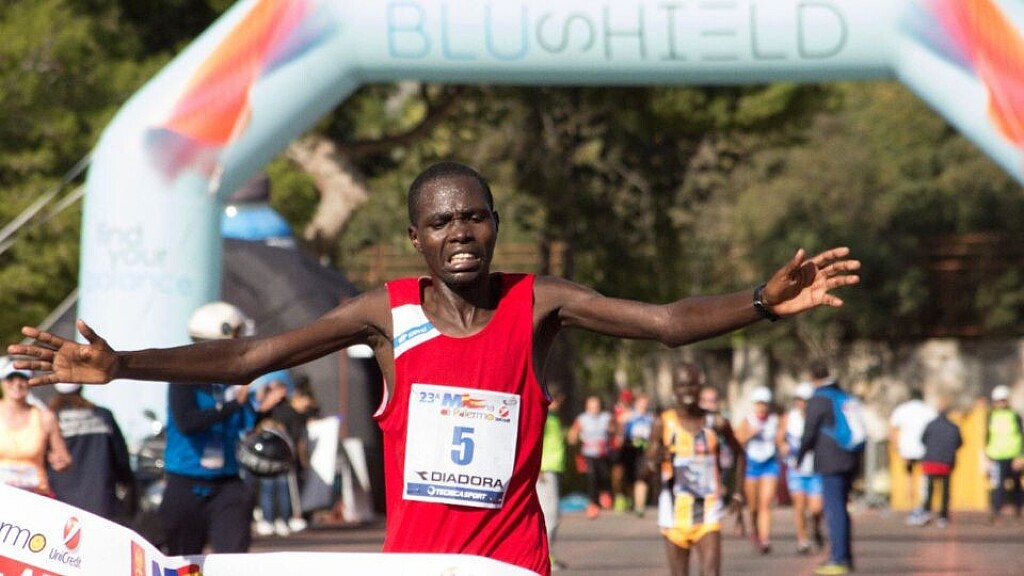Running News Daily
Running News Daily is edited by Bob Anderson. Send your news items to bob@mybestruns.com Advertising opportunities available. Train the Kenyan Way at KATA Kenya and Portugal owned and operated by Bob Anderson. Be sure to catch our movie A Long Run the movie KATA Running Camps and KATA Potato Farms - 31 now open in Kenya! https://kata.ke/
Index to Daily Posts · Sign Up For Updates · Run The World Feed
Articles tagged #Athletics Integrity Unit
Today's Running News
Will Her Marathon Record Still Stand? And should it?
It’s been almost five years since Ruth Chepngetich survived the carnage on Doha’s Corniche to win the 2019 World Marathon title in suffocating heat. But her story has now taken a dramatic turn. In July 2025, Chepngetich was provisionally suspended by the Athletics Integrity Unit following a positive test from March 2025. That case reached its conclusion on October 23, 2025, when she was officially banned for three years. Despite the ruling, World Athletics has not yet nullified her 2:09:56 world record from Chicago, leaving the running world in a state of uneasy debate — can a mark achieved by an athlete later found guilty of doping still stand as the pinnacle of the sport?
The Record That Shocked the World
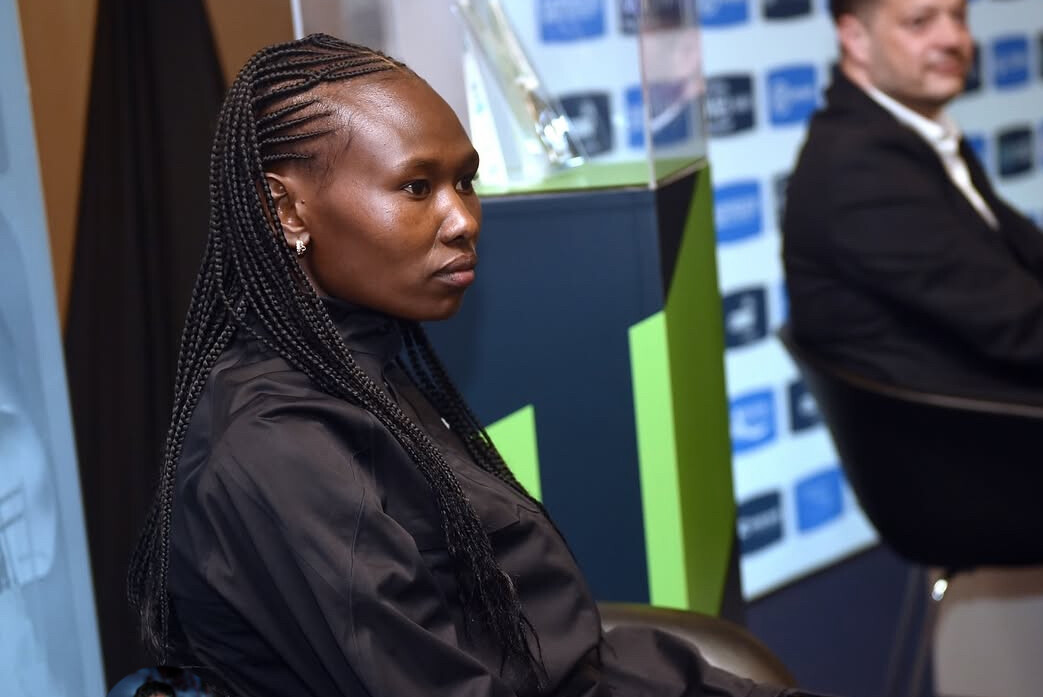
At Chicago 2024, Chepngetich didn’t just win — she obliterated the women’s marathon barrier. Clocking 2:09:56, she slashed nearly two minutes off the previous world record of 2:11:53, averaging roughly 4:57 per mile. Her first half of 1:04:16 hinted that she was chasing history, and she never faltered. The performance instantly became one of the most astonishing in distance-running history and redefined what many thought possible for women over 26.2 miles.
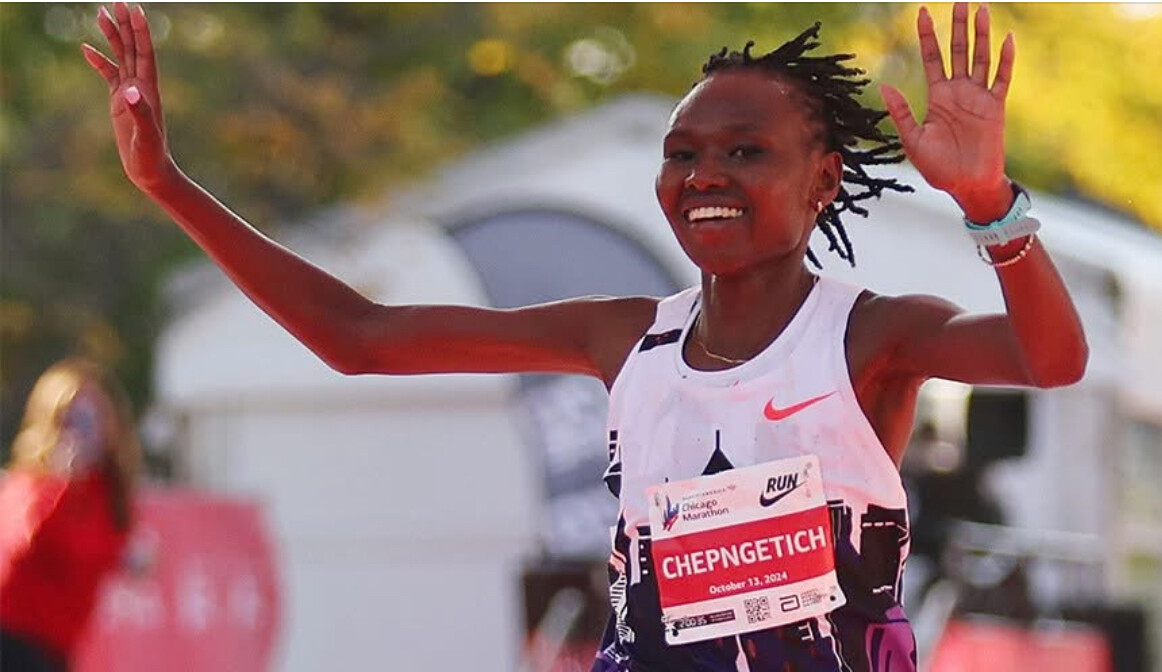
Talent, Technology, or Something Else?
In assessing whether this record will stand, several factors come into play — her undeniable talent, cutting-edge technology, and advances in fueling and pacing.
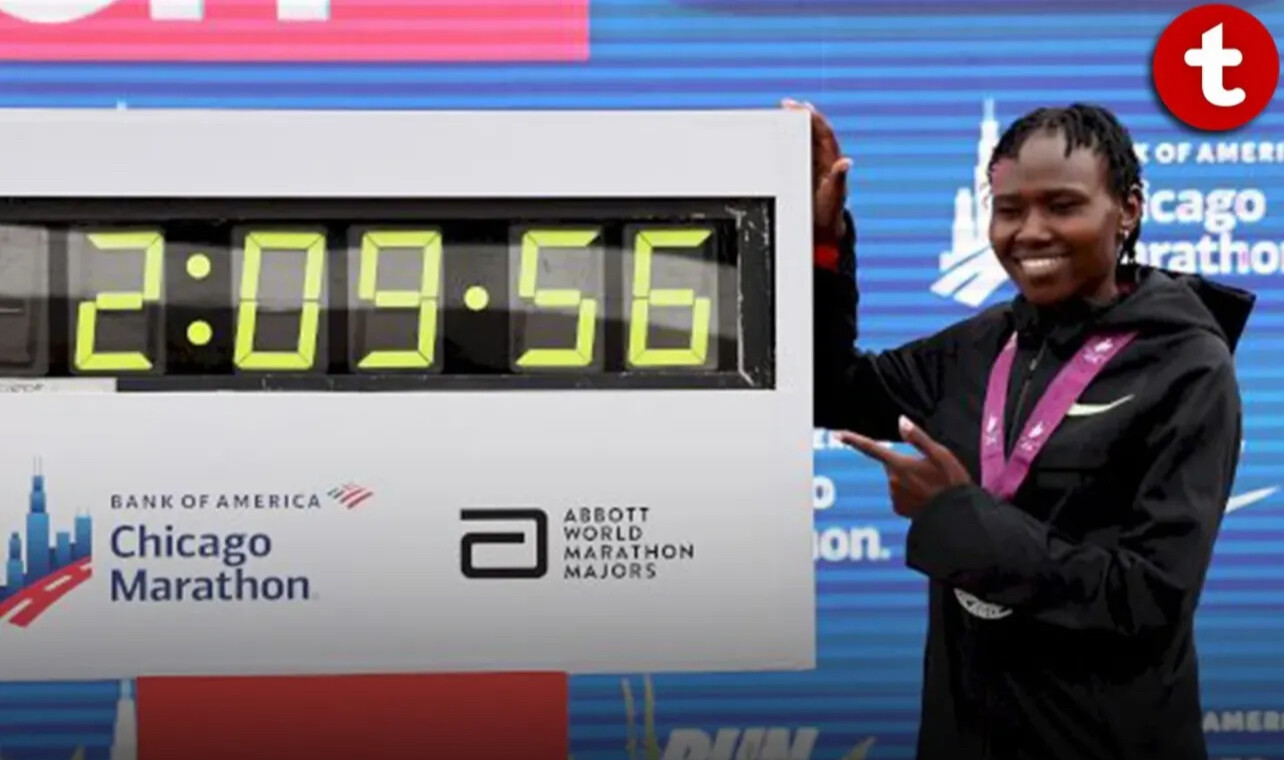
• Talent: Chepngetich’s pedigree is unquestioned — a world champion, multiple Chicago winner, and one of the most aggressive front-runners of her generation.
• Technology: Like nearly all modern elites, she raced in next-generation “super shoes” featuring carbon plates and advanced foams that improve running economy by several percent.
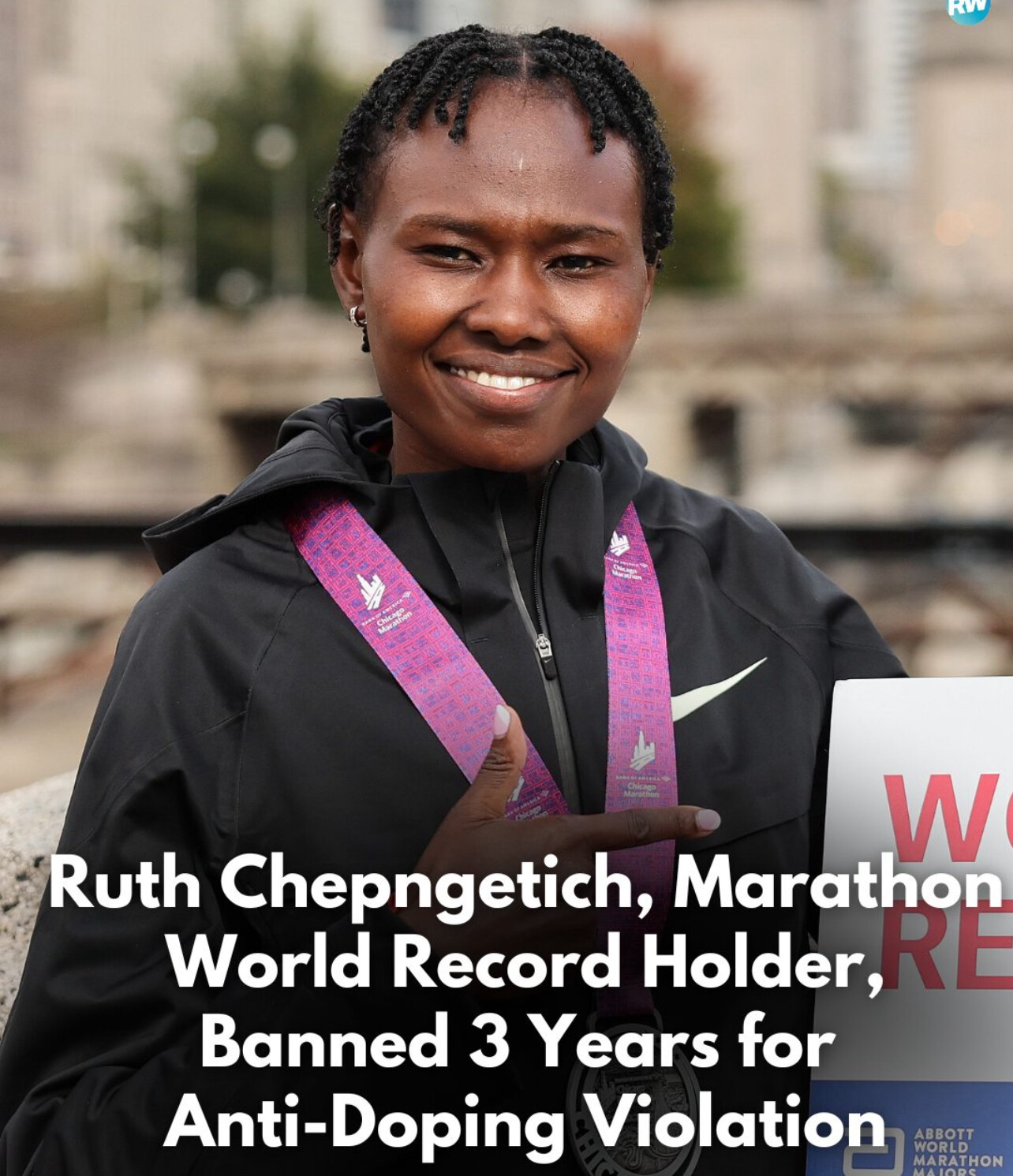
• Fueling and Pacing: A meticulously calibrated mix of carbohydrate drinks, male pacemakers, and near-perfect weather created ideal conditions for record-breaking.
Each of these factors may have contributed — but so, it now appears, did something illicit. Her three-year ban has cast a long shadow over what was once hailed as the cleanest, purest form of endurance achievement.
The Broader Question
Can a mark set under suspicion survive as a legitimate benchmark for future generations? The answer lies with World Athletics’ final ruling, but even if the record stands on paper, the perception of it has changed. Chepngetich’s run pushed the limits of human endurance — yet the revelation of a doping violation has blurred the line between brilliance and betrayal.
A Legacy Rewritten
If the ban is upheld, Chepngetich will likely be stripped of her record, joining a short but painful list of athletes whose names once glittered atop the record books before being erased. Regardless of the outcome, her performance will remain a pivotal moment — the day a woman first broke 2:10. It proved that such times are possible and that the next generation, running clean, will one day do it again.
Conclusion
Whether Ruth Chepngetich’s 2:09:56 survives the scrutiny of time or not, the marathon has been changed forever. Her run forced coaches, scientists, and competitors alike to reconsider what’s possible for women over the classic distance.
But now the question isn’t only how she did it — it’s why.
by Boris Baron
Login to leave a comment
Sebastian Sawe Leads the Way With Bold Anti-Doping Initiative Ahead of Berlin Marathon
Sebastian Sawe, the 2025 London Marathon champion and currently the fastest marathoner in the world, is preparing for his third career marathon on September 21 in Berlin. Determined to ensure his performances are beyond question, Sawe has taken an unprecedented step: partnering with the Athletics Integrity Unit (AIU) to undergo one of the strictest anti-doping programs ever seen in the sport.
In collaboration with his management team and adidas, Sawe’s program includes:
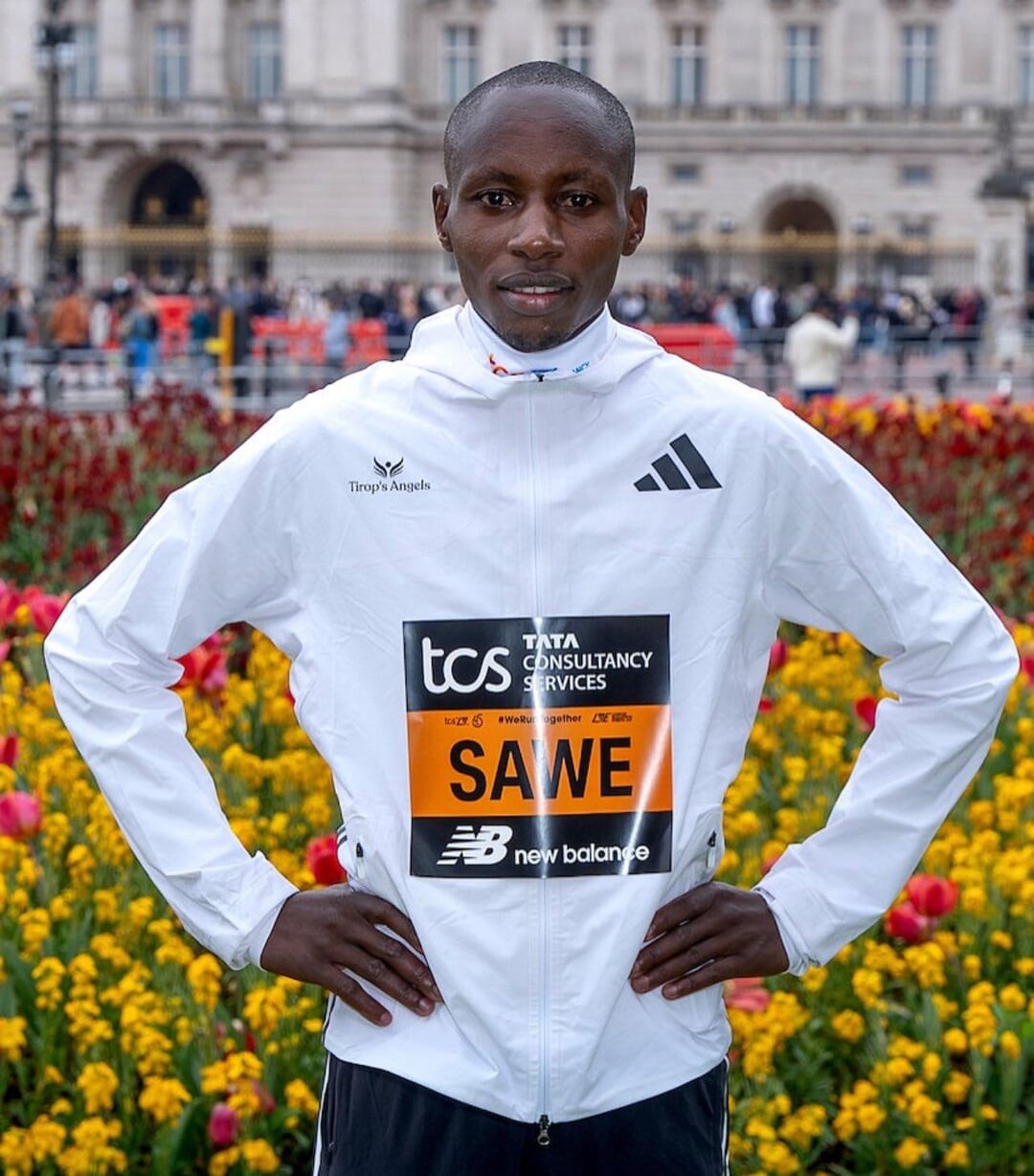
• A minimum of 25 anti-doping tests in the two months leading up to Berlin.
• Surprise, out-of-competition testing under the most advanced laboratory protocols.
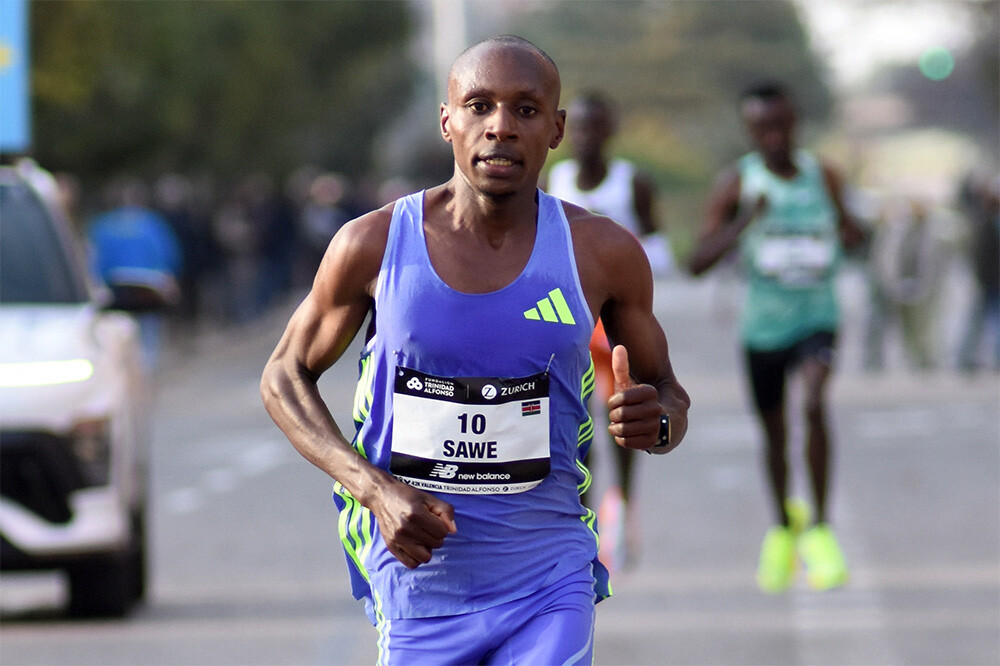
• Complete independence in testing, with no prior notice given to Sawe or his team.
• Full financial support from adidas, his primary sponsor.
Explaining his decision, Sawe said:
“I am tired of reading constant doubts and accusations whenever a Kenyan athlete performs well. I acknowledge that doping is a real issue in our country, and ignoring it would be a mistake. We must face it, work with organizations like AIU and World Athletics, and fight this problem that feels like a cancer for Kenyan athletes. My hope is to set an example, encourage others to act, and show that clean performances are possible. Above all, I want people to know that when I line up in Berlin, I am clean, and my results should not be questioned just because I am Kenyan.”
The testing officially began on July 25.
Sawe’s initiative comes at a crucial moment, as Kenya’s Anti-Doping Agency was recently declared non-compliant with WADA’s code. While the agency has 21 days to contest the ruling and implement corrective measures, Sawe’s leadership highlights a proactive and athlete-driven path forward.
As he builds toward Berlin, Sawe is not only racing for victory but also for the integrity of Kenyan athletics, proving that world-class performances can and must be achieved clean.
by Boris Baron
Login to leave a comment
UPDATE: Ruth Chepngetich’s Marathon World Record Not Affected by Suspension
Although the Kenyan marathon star has been provisionally suspended after testing positive for hydrochlorothiazide—a banned diuretic used as a masking agent—Ruth Chepngetich’s world record set at the 2024 Chicago Marathon remains valid.
Key facts:
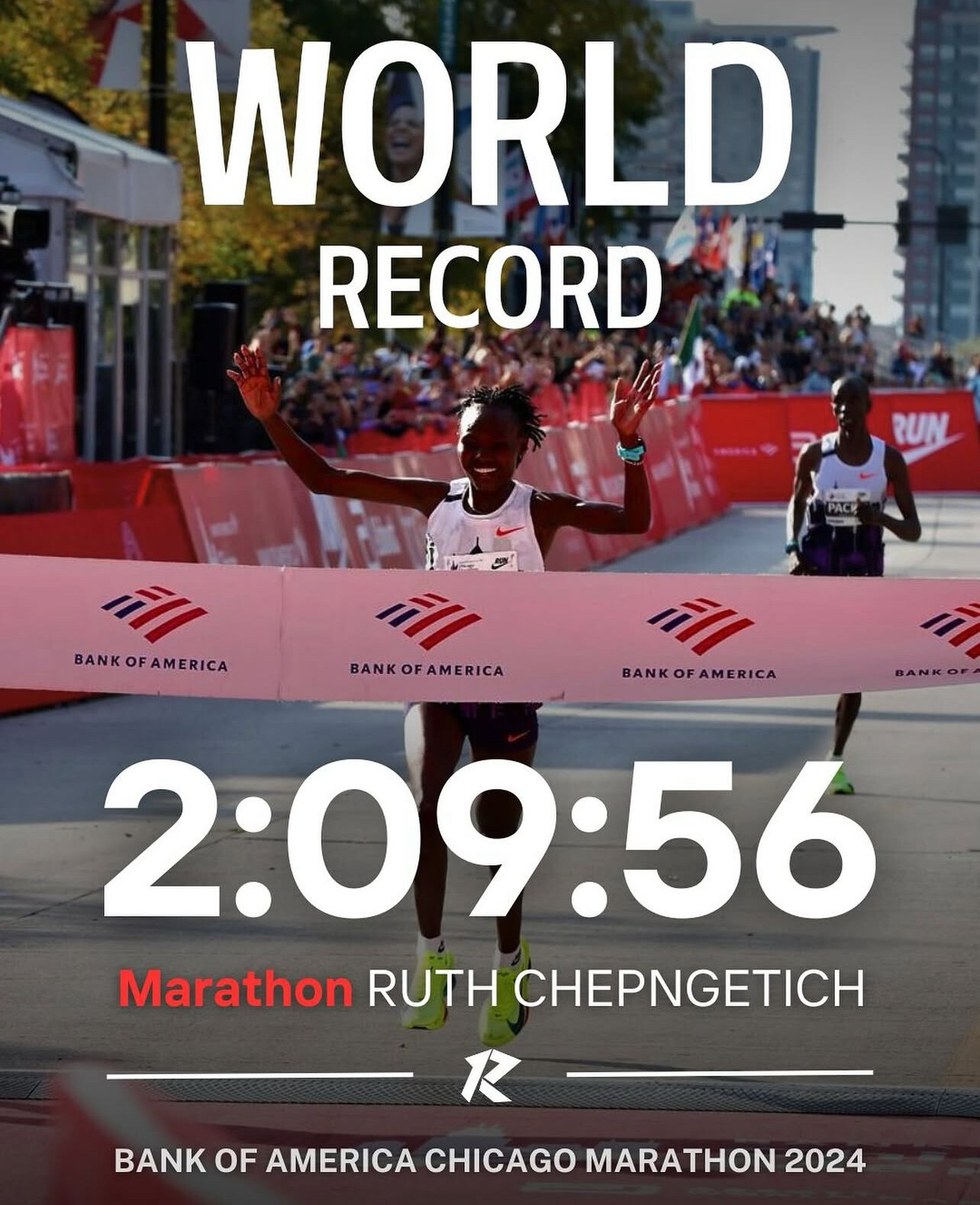
• ✅ The sample that led to her suspension was collected on March 14, 2025, several months after her record-breaking 2:09:56 performance in Chicago on October 13, 2024.

• ✅ Chepngetich is presumed innocent until proven guilty. The Athletics Integrity Unit (AIU) has initiated a disciplinary process, but no final ruling has been made.
At this time, World Athletics has not disqualified any of her past results, including her marathon world record.
The investigation is ongoing. Chepngetich voluntarily suspended herself in April, and the AIU issued a formal provisional suspension on July 17, 2025. Until the case is resolved, she remains barred from competition.
My Best Runs will continue to monitor developments and provide updates as new details emerge.
by Boris Baron
Login to leave a comment
BREAKING: Ruth Chepngetich Provisionally Suspended After Positive Test for Banned Substance
Marathon world record holder Ruth Chepngetich has been provisionally suspended by the Athletics Integrity Unit (AIU) after testing positive for hydrochlorothiazide, a banned diuretic often used as a masking agent.
Chepngetich stunned the world on October 13, 2024, when she clocked a jaw-dropping 2:09:56 at the Chicago Marathon—becoming the first woman to run under 2 hours and 10 minutes. Her performance not only set a new world record but also marked a historic milestone in women’s distance running.
Now, that performance is under serious scrutiny.
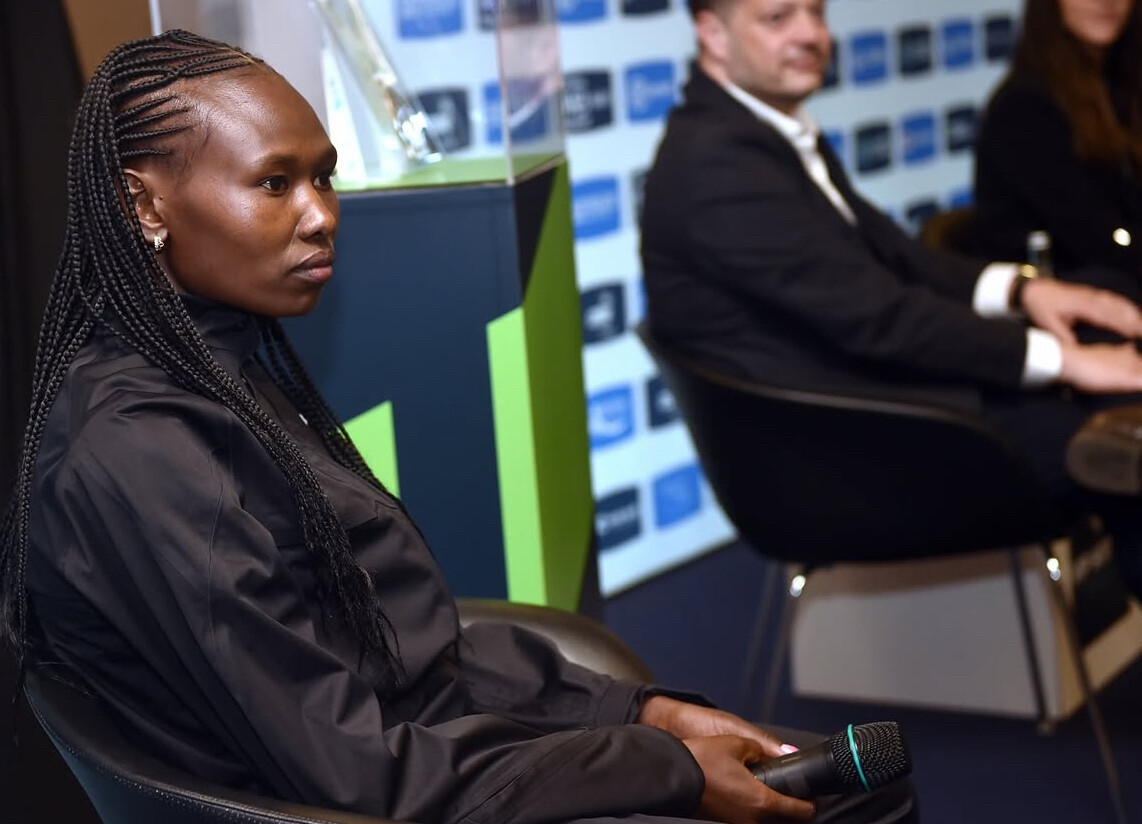
According to the AIU, the Kenyan athlete’s positive test came from a sample collected on March 14, 2025. She was notified of the result in April and chose to voluntarily suspend herself on April 19, pending further investigation. The AIU formally charged her this week and imposed a provisional suspension effective immediately.
Hydrochlorothiazide is classified under WADA’s list of banned substances, not because it enhances performance directly, but because it can potentially mask the use of other performance-enhancing drugs.
Why are we learning about this now?
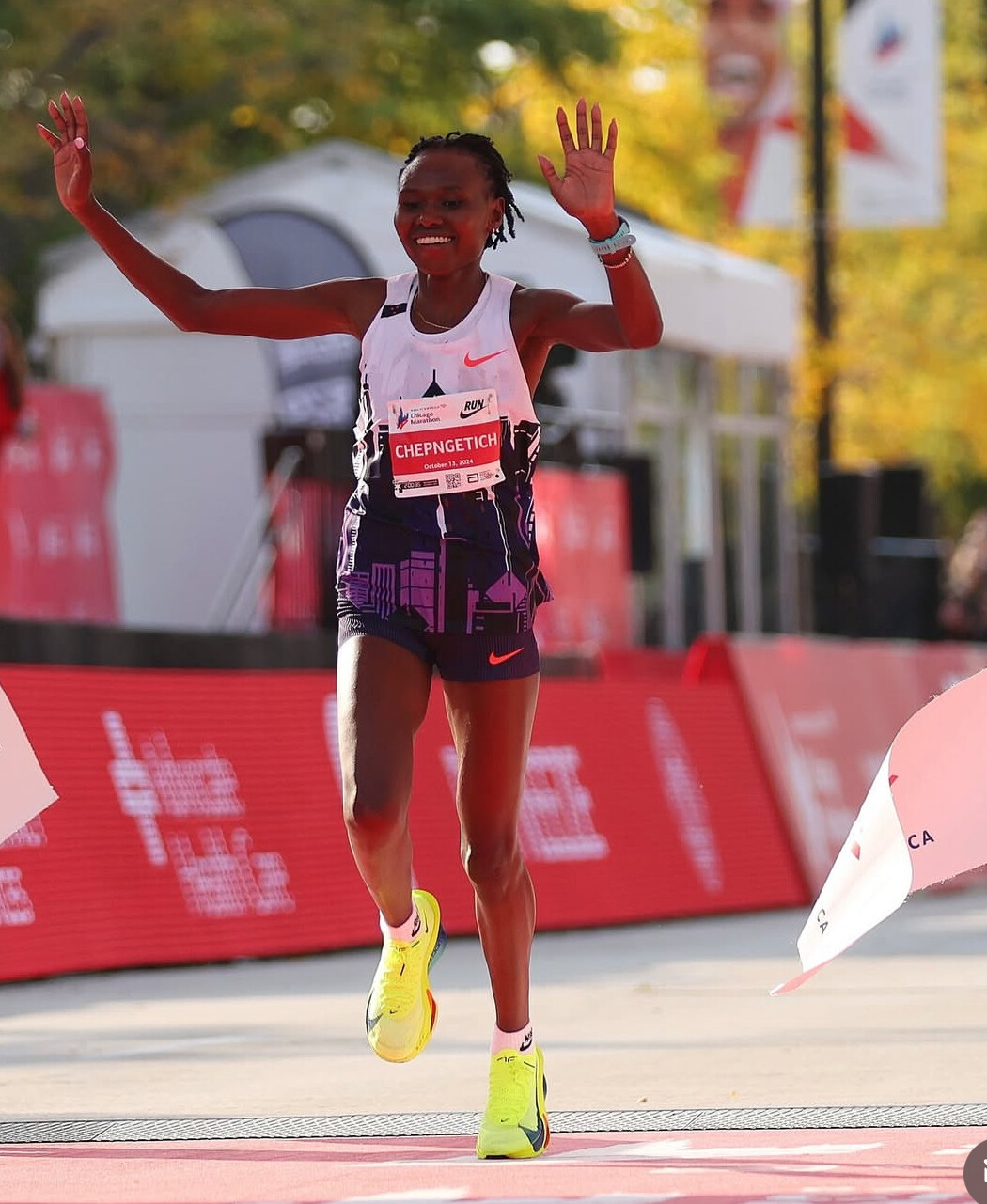
While Chepngetich was informed of the result and voluntarily suspended herself back in April, the AIU typically delays public announcements until formal charges are filed and due process is underway. That happened on July 17, triggering the widespread media coverage now surfacing.
Will her world record be annulled?
That remains to be seen. The AIU has not disqualified any of her past results yet, including the 2:09:56 mark from Chicago. However, if it’s determined that a banned substance or its masking agent was in her system during the time of the record-setting performance—or that it was part of a pattern of use—World Athletics may strip her of the title.
Until a ruling is made, Chepngetich remains provisionally suspended, and her world record is still recognized.
This case adds to the growing concerns surrounding transparency and anti-doping protocols in elite distance running. For now, the running world awaits the outcome of the disciplinary proceedings.
Follow My Best Runs for the latest updates on this developing story and other breaking news from the world of road racing and track & field.
by Boris Baron
Login to leave a comment
Is There A Running Life After a Ban? Abraham Kiptum Hopes His Comeback Tells a New Story
After nearly six years out of competition, former world half-marathon record holder Abraham Kiptum is preparing to make a dramatic return to the sport that once made him a star. The 34-year-old Kenyan, who was banned for four years in 2019 due to irregularities in his Athlete Biological Passport (ABP), has set his eyes on two major races: the Nairobi City Marathon and the Kericho Half Marathon.
But his path back has been anything but easy.
A Record-Breaking Rise
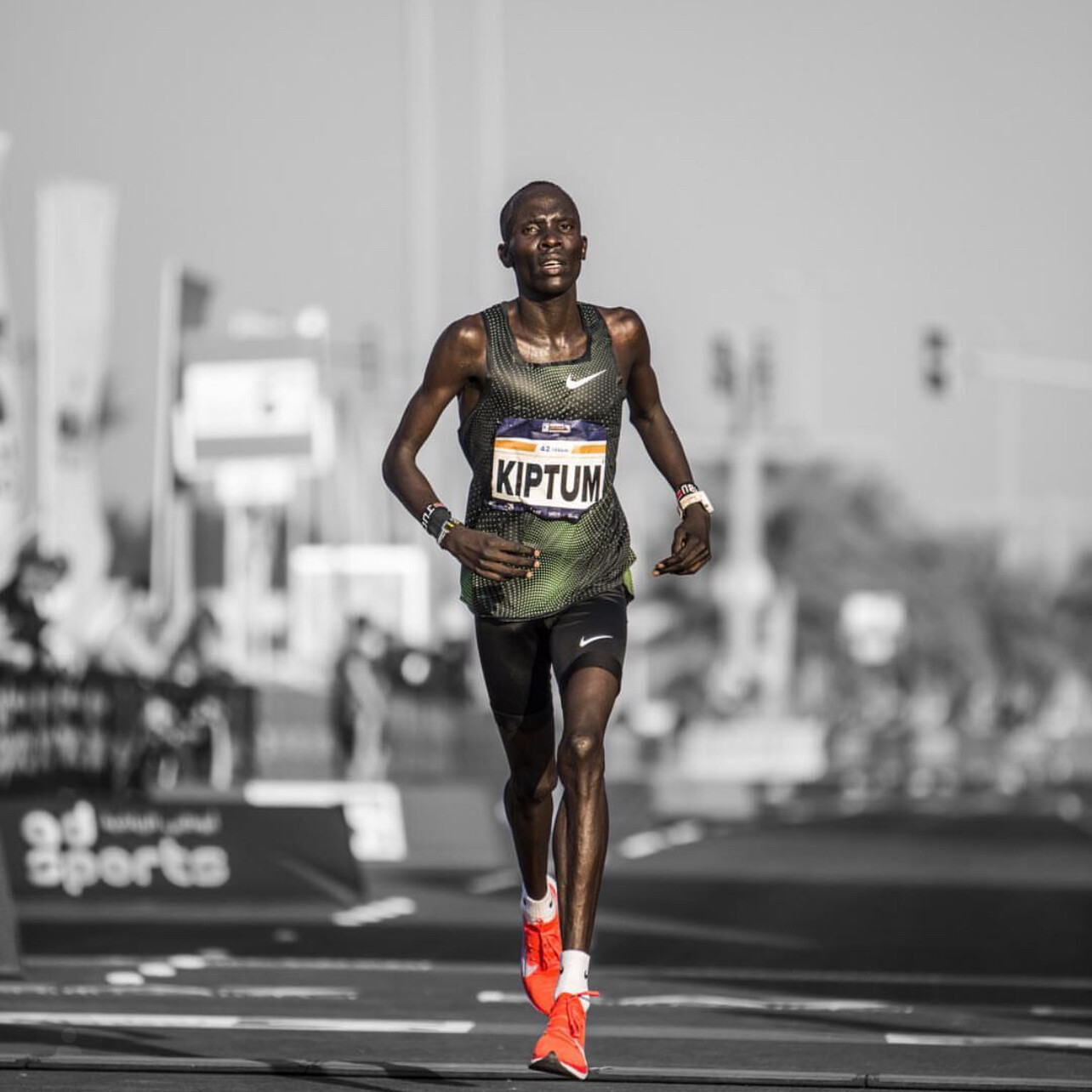
Kiptum’s running career took off like a rocket. After early days pacing elite women’s marathons while still in high school, he racked up victories in Lagos, Casablanca, and Madrid. At the 2017 Amsterdam Marathon, he ran a personal best of 2:05:26. Then in 2018, Kiptum stunned the running world by setting a new half-marathon world record at the Valencia Half Marathon, clocking 58:18—breaking a record that had stood since 2010.
But that triumph would soon be erased.
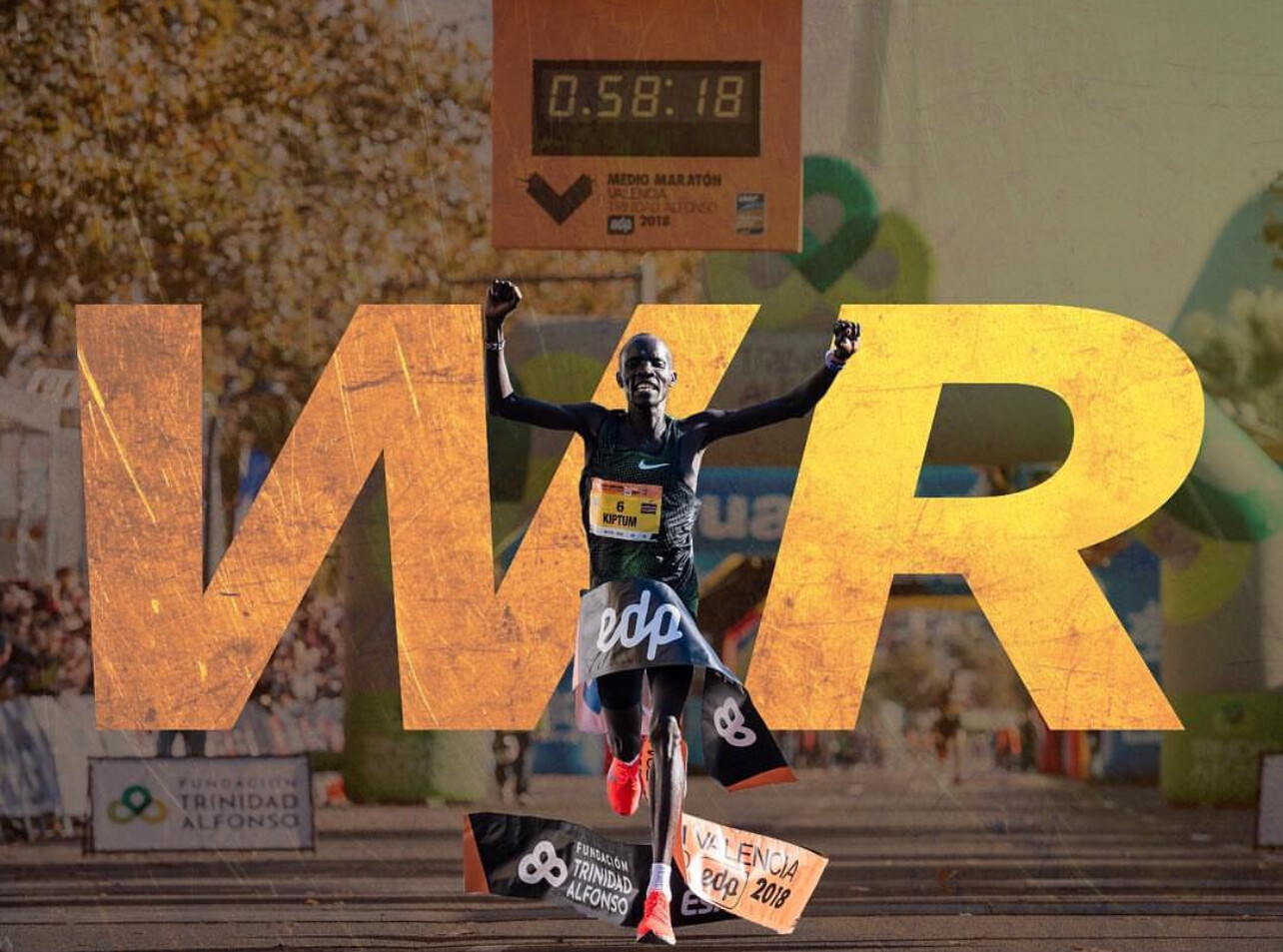
The Fall from Grace
Just one day before he was scheduled to compete in the 2019 London Marathon, everything unraveled. On April 26, 2019, the Athletics Integrity Unit (AIU) provisionally suspended Kiptum for ABP violations. The ABP doesn’t detect banned substances directly, but rather monitors biological markers over time—looking for signs of manipulation.
“I was so surprised about ABP because I had never heard about it in my entire life,” Kiptum said.
Not only did he miss London, but all of his results after October 13, 2018—including his world record—were nullified.
A Life Unraveled
Returning to his hometown in Nandi County, Kiptum didn’t just lose races—he lost his sense of purpose, his reputation, and many of his relationships.
“I was sent back home, and I stayed there until I completed my ban,” he recalled. “To make matters worse, my wife and friends deserted me. I was only left with my parents and brothers.”
With no races, no income, and little support, he turned to farming and herding animals to survive. For years, he lived in isolation, his name a shadow of its former glory.
A Second Chance
After completing his suspension, it was his younger brother who pushed him to rejoin the sport. He brought Kiptum to a training camp to reignite the flame.
“After serving four years, I have returned to action, doing what I know best—running,” he said. “My body is responding well, and I feel ready.”
Now, he’s training hard with hopes of reaching the podium at the 2025 Nairobi City Marathon, slated for Sunday, July 5 at Uhuru Gardens.
Lessons from the Abyss
Kiptum doesn’t shy away from admitting the ban taught him hard truths.
“Yes, I had money when I set the world record. I even bought land and helped change the lives of my family,” he said. “But I’ve learnt that money comes and goes. What matters most is staying around the right people.”
As he builds toward redemption, Kiptum carries both scars and lessons—reminders of a fall that nearly ended it all, and a second chance that might redefine him.
Can Abraham Kiptum reclaim his place among the world’s best distance runners? No one knows. But what’s clear is that he’s not giving up.
There may just be life—and speed—after a ban.
by Boris Baron
Login to leave a comment
Gerald Phiri Provisionally Suspended Amid Doping Investigation
The Athletics Integrity Unit (AIU) has provisionally suspended former Zambian Olympian and USATF-licensed coach Gerald Phiri as of March 17, 2025. The suspension follows a joint investigation with the US Anti-Doping Agency (USADA) after three athletes coached by Phiri tested positive for the banned substance GW1516.
Phiri, a decorated sprinter, built his athletic career in the UK before moving to the United States as a student-athlete at Texas A&M University. A two-time Olympian (2012, 2016), he finished fifth in the 60m at the 2014 World Indoor Championships. His personal bests include 6.52 seconds in the 60m (2014), 10.03 seconds in the 100m (2014), and 20.29 seconds in the 200m (2008).
Following his retirement from competition, Phiri transitioned into coaching and currently serves as the Director of Track and Cross Country at Montverde Academy in Florida. His suspension casts uncertainty over his future in coaching and his involvement with elite athletes. The AIU and USADA continue to investigate the case, with further details expected in the coming weeks.
by Boris Baron
Login to leave a comment
Kenyan Runner Kibiwott Kandie Provisionally Suspended by Athletics Integrity Unit
Kenyan long-distance runner Kibiwott Kandie has been provisionally suspended by the Athletics Integrity Unit (AIU) for “evading, refusing, or failing to submit to sample collection.” The AIU, which oversees anti-doping efforts in athletics, made the announcement ahead of Kandie’s scheduled participation in the Zurich Barcelona Marathon, set to take place this Sunday.
A Decorated Career in Distance Running
Kandie is a well-established name in the world of long-distance running, particularly in the half marathon. He won a silver medal at the 2020 World Half Marathon Championships in Gdynia, Poland, and later that year set a world record of 57:32 at the Valencia Half Marathon. His record stood until November 2021, when Jacob Kiplimo of Uganda broke it.
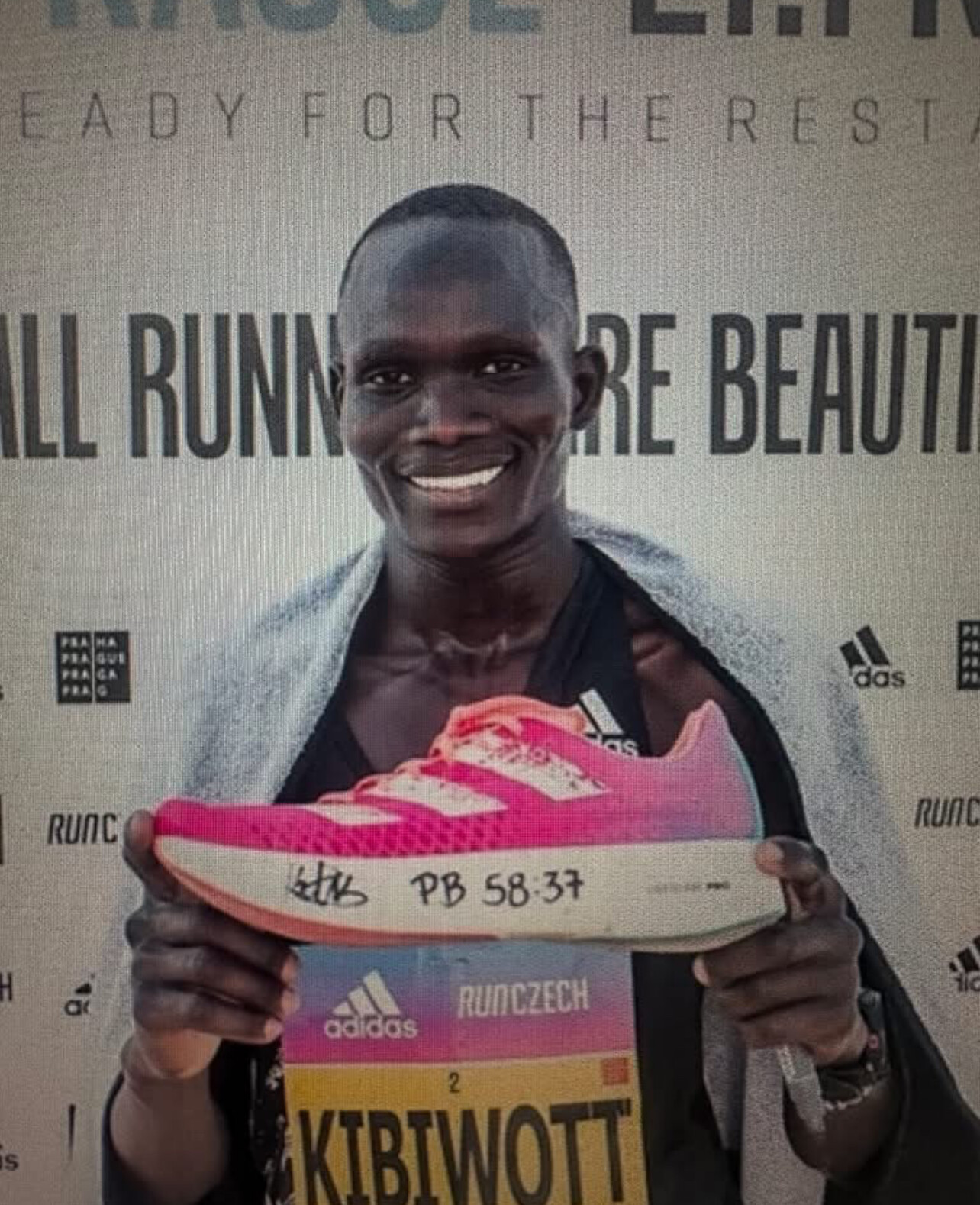
Transitioning into the marathon distance, Kandie set a personal best of 2:04:48 in the Valencia Marathon in 2023, further cementing his reputation as one of Kenya’s premier distance runners.
The Suspension and Its Implications
The provisional suspension means that Kandie is currently barred from competing in any sanctioned races until the matter is resolved. According to AIU regulations, evading or refusing a doping test is treated as a serious violation, often resulting in multi-year bans if found guilty.
With Kandie set to compete in the Zurich Barcelona Marathon, his suspension disrupts not only his own plans but also the expectations of race organizers and fans. The AIU has yet to release further details on the circumstances surrounding his alleged failure to comply with sample collection procedures.
What Happens Next?
Kandie has the right to respond to the charges, which could lead to an appeal process or a full hearing if he chooses to contest the allegations. If found guilty, he could face a suspension ranging from two to four years, depending on the severity of the violation and whether it is a first-time offense.
The case raises further concerns about doping regulations and enforcement in elite long-distance running, as Kenya has faced multiple high-profile doping suspensions in recent years.
For now, the running world waits to see how Kandie’s case unfolds and what it means for his future in professional racing.
by Boris Baron
Login to leave a comment
I wonder if the AIU is realizing that they might be doing more harm to our sport than good? Something needs to change. - Bob Anderson 3/14 9:54 am |
'It’s just going to be a movie'- Erriyon Knighton ready to spice up rivalry with Noah Lyles as he waits for right moment
Erriyon Knighton is focused on improving at his own pace, embracing future rivalries with top sprinters and promising it will be 'a movie' when the time is right.
World 200m silver medallist Erriyon Knighton is just awaiting the right time to make his rivalry with top sprinters like Noah Lyles, Kenny Bednarek and Letsile Tebogo spicy.
The 20-year-old is not under any form of pressure to deliver at the moment and in fact, he is taking his sweet time and enjoying himself.
He disclosed that speaking of the world record at this time would be unrealistic and he is just on the mission of chasing medals until the right opportunity presents itself.
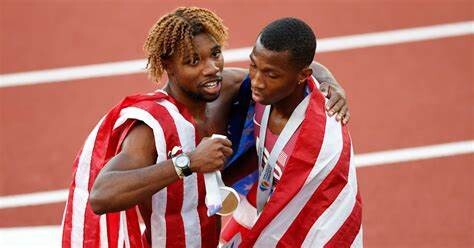
In an interview with Reuters earlier this year, Knighton noted that he makes his own rules and works under his own terms, understanding that people will still want to talk and compare him with other stars.
"Until I get old ... there's still going to be comments like, 'the young phenom' or 'I did this at this age'," Knighton told Reuters.
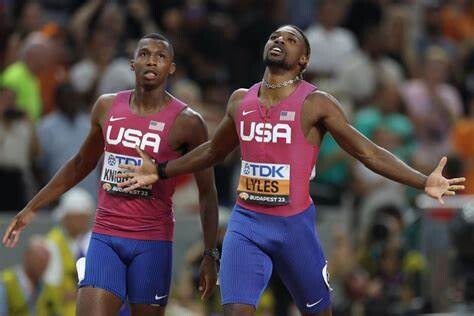
"They were expecting me to break the world record when I was like 19, 20 years old. But in reality it's just not like that."
Speaking of Noah Lyles, Knighton insisted that people should stop with the comparisons since athletes are very different.
The former world 200m bronze medallist insisted that when the right time comes, he will achieve what he has always been working hard for but now they should give him time.
"He's doing his thing right now. Everybody has their time and place in a rivalry. And I feel like just going on in the years once I get older, you know, it's just going to be a movie every time we step on the track,” Knighton asserted.
"I'm just not at the point where I'm like at my best, but I'm getting better," said Knighton. "When I reach my best, then we can talk about the world records."
Knighton has faced a few setbacks including being suspended by the Athletics Integrity Unit before being cleared to compete at the US Olympic trials where he finished third and secured a slot to the Paris Olympic Games.
In Paris, the American youngster narrowly missed out on the podium bracket with his fourth-place finish. Letsile Tebogo won the race as Kenny Bednarek and Noah Lyles came in second and third respectively.
by Abigael Wafula
Login to leave a comment
Spanish Olympian given four-year ban for falsifying whereabouts documents
Spanish Olympian and two-time world championship medalist Mohamed Katir was handed a four-year ban by the Athletics Integrity Unit (AIU) on Friday for falsifying travel documents in support of his explanation for his three whereabouts failures in 2023.
Instead of accepting wrongdoing and taking on the two-year whereabouts ban, the 26-year-old middle-distance runner falsified travel documents (a travel itinerary, boarding pass and booking confirmation) in an attempt to mislead investigators as they probed the integrity of his explanation for a whereabouts failure that occurred on Feb. 28, 2023. The result was an even longer ban than what he was already facing.
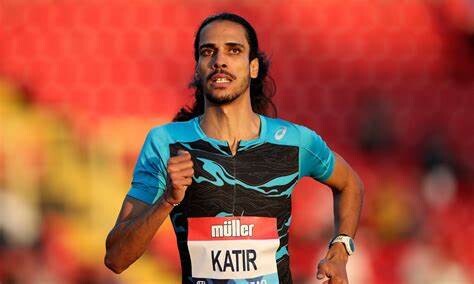
The four-year ban will run concurrently with Katir’s ongoing whereabouts sanction, extending his ban from the sport until February 2028. This means he will be forced to miss both the 2025 World Athletics Championships in Tokyo and the 2027 World Athletics Championships in Beijing.
According to the AIU, the world 5,000m silver medallist missed three tests between Feb. 28, 2023 and Oct. 10, 2023 (missing three doping tests in a 12-month window results in an anti-doping rule violation, or ADRV).

Katir’s whereabouts failures
On Feb. 28, 2023, a Doping Control Officer (DCO) went to the address in Murcia, Spain, indicated in the Athlete’s Whereabouts information; upon arrival, the DCO was told that Katir was in Lisbon and would not be returning until March 2.
Katir missed another test on April 3, when a DCO showed up at his home in Murcia again. When they arrived, Katir was training in France, and had failed to update his whereabouts. Katir told the AIU he tried to update his information, but the system was not working. He was charged with his second violation when he failed to send an email providing evidence of technical issues.
His third violation occurred on Oct. 10, when a DCO went to the specified location during a 60-minute time slot between 7:20 p.m. and 8:20 p.m. When the DCO arrived, Katir was away at training, and later insisted there was a mistake in his whereabouts, and claimed he never changed the time slot from his usual 7:00 a.m. to 8:00 a.m. window.
Katir is a two-time world championship medallist in the men’s 1,500m and 5,000m events. He won silver in the 5,000m behind Norway’s Jakob Ingebrigtsen at the 2023 World Athletics Championships in Budapest.
AIU head Brett Clothier said the ruling underscored the seriousness of tampering: “Gone are the days in athletics when explanations offered in anti-doping cases are just accepted at face value,” he stressed. “The vast majority of our elite athletes respect the strict rules and processes of the sport and they should take heart at the action being taken to ensure a level playing field.”
by Marley Dickinson
Login to leave a comment
Geneva Marathon winner disqualified for doping
The athlete claimed he did not know what EPO or furosemide were and had no idea how they both ended up in his body.
The winner of the 2024 Generali Geneva Marathon in Switzerland, Kibrom Weldemicael has been given a six-year doping ban after testing positive for two substances. Weldemicael was provisionally suspended just days before he was supposed to run at the 2024 Paris Olympics for Eritrea, now, the 37-year-old will be unable to compete until 2030, and his marathon win will be annulled.
According to the Athletics Integrity Unit, Weldemicael provided an in-competition urine sample after his win at May’s Geneva Marathon in 2:09:57. Three months later, a WADA laboratory in Cologne, Germany found an adverse finding in his May 5 sample for the presence of erythropoietin (EPO) and furosemide.
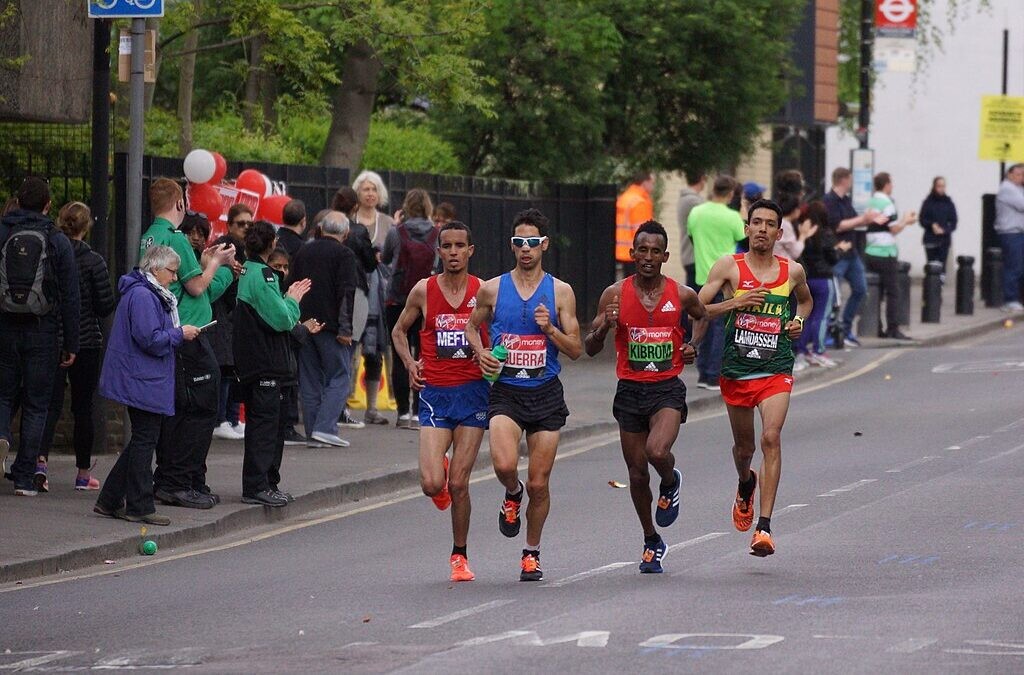
EPO enhances the blood’s oxygen-carrying capacity by increasing red blood cell production, which can improve endurance and performance in long-distance runners. Furosemide is a diuretic (often referred to as a “water pill”), which helps the body get rid of excess salt and water by increasing urine production. The drug is typically used to lose weight quickly or to mask the use of other performance-enhancing drugs. EPO and furosemide are both prohibited substances on the WADA 2024 Prohibited List.
According to the AIU, Weldemicael was notified of the adverse finding in person at the Paris Olympics, where he was preparing to run for Eritrea in the men’s marathon. He was given a provisional suspension on Aug 9, after failing to file a written submission on why the suspension should not be imposed. A week later, the athlete provided an explanation saying he had not taken EPO, and said his red blood cell count was high because he had been training in high-altitude locations for his entire career. He also requested a test of his B sample.
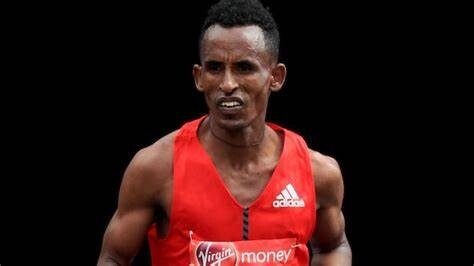
Weldemicael failed to pay for the cost of the B sample test by the deadline, waiving his right to the analysis. He later claimed he did not know what EPO or furosemide were, had not taken either and was unable to explain the presence of both in his body.
The AIU said they reviewed the athlete’s explanation and it was clear he had committed an ADRV (Anti-Doping Rule Violation).
The 37-year-old, who ran his marathon personal best of 2:07:25 this year, will be ineligible to compete until May 2030. His result from the 2024 Geneva Marathon will be disqualified, but his win from Maratón BP Castellón in Spain in February will stand. His best performance at a major marathon was his eighth-place finish at the 2015 London Marathon.
by Marley Dickinson
Login to leave a comment
Harmony Geneva Marathon
The Harmony Geneva Marathon for Unicef is arguably one of the most picturesque city marathons in Europe and unquestionably one of the fastest. The course takes in the countryside nestled between mountains and the shore of Lake Geneva before finishing in the heart of the city in front of the famous Jet d’Eau. Thousands of runners from more than 120...
more...2014 Boston Marathon winner to finally receive prize money
10 years after setting the course record, Ethiopia's Buzunesh Deba will be awarded her prize money through the B.A.A.'s new voluntary payments initiative.
On Tuesday, the Boston Athletic Association (B.A.A.), which organizes the Boston Marathon, announced new plans to address prize money discrepancies caused by doping offences over the past 40 years. Starting in January 2025, the B.A.A. will begin issuing voluntary payments to athletes whose results were re-ranked due to disqualifications, dating back to 1986—the year prize money was first introduced.
This announcement is significant for Ethiopian runner Buzunesh Deba and Kenyan athlete Edna Kiplagat, who were both elevated to first place after Kenya’s Rita Jeptoo (2014) and Diana Kipyokei (2021) were disqualified for doping. In Deba’s case, she was originally awarded the second-place prize, but was later recognized as the winner of the 2014 race; she also set the course record of 2:19:59. Despite this, Deba has waited nearly a decade to receive the USD $100,000 owed to her: $75,000 for first place and $25,000 for the course record.
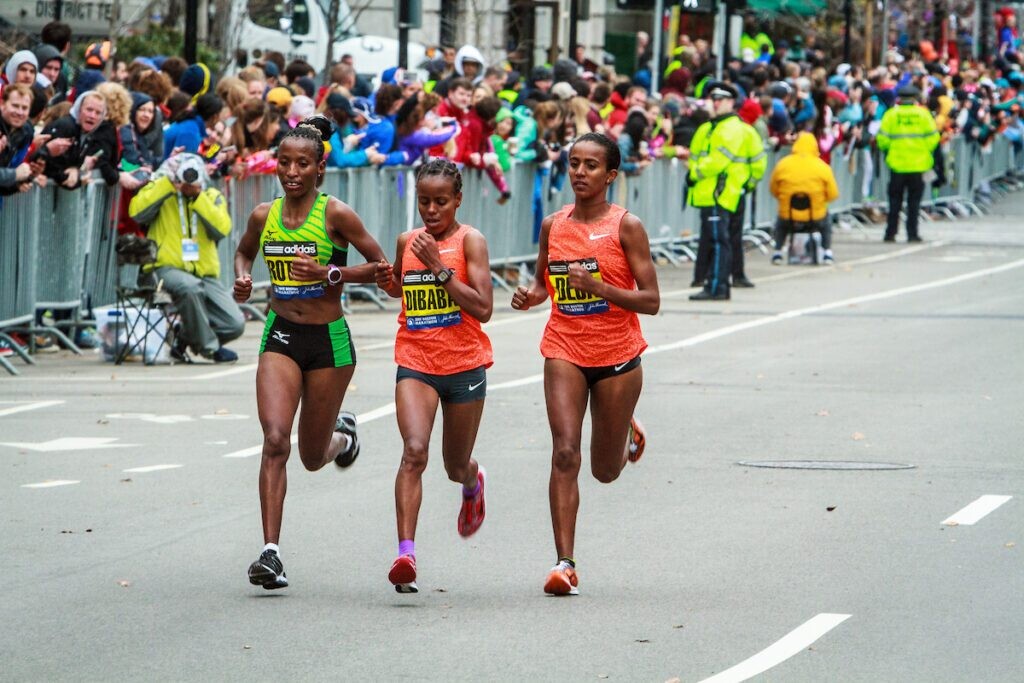
Deba’s payment, set to be issued in January, will be the largest compensation under the B.A.A.’s voluntary payout program. Earlier this year, a Wall Street Journal article put a spotlight on the B.A.A., sharing Deba’s 10-year wait for the prize money. The story caught the attention of Philadelphia businessman Doug Guyer, who sent Deba a USD $75,000 cheque to cover the difference between the first- and second-place prizes.
Jack Fleming, B.A.A. president and CEO said in a press release, “Our initiative aims to ensure that clean athletes are compensated appropriately. While the process to reclaim and redistribute prize money has been challenging, it remains essential to uphold fair competition.”
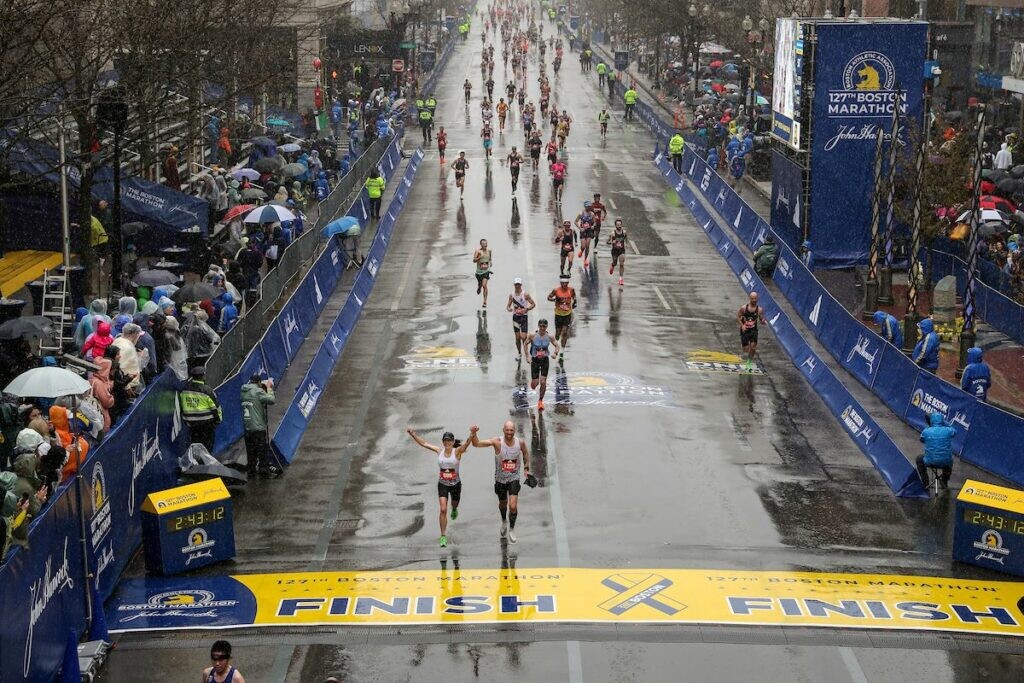
Eighty runners from eight Boston Marathons and nine participants from the Boston 5K event are eligible to receive payments totalling USD $300,000. Athletes found guilty of doping offences at any time will be ineligible for compensation. The B.A.A. says it will seek to reclaim payments from any recipient later disqualified.
The B.A.A. collaborates with global anti-doping organizations, including the Athletics Integrity Unit (AIU), the World Anti-Doping Agency (WADA) and the U.S. Anti-Doping Agency (USADA), to ensure a level playing field at its events. Notably, no male Boston Marathon champion has been stripped of their title for doping.
by Marley Dickinson
Login to leave a comment
Emmaculate Anyango: Kenya’s long-distance prodigy handed six-year doping ban
Emmaculate Anyango, who has been one of Kenya’s emerging athletes, has suffered a major blow after receiving a six-year ban over multiple doping violations.
Kenya’s long-distance sensation Emmaculate Anyango has been handed a six-year doping ban by the Athletics Integrity Unit (AIU) over multiple anti-doping violations.
The AIU announced Anyango’s doping ban on Friday, having provisionally suspended her in October, for the presence and use of a prohibited substance (Testosterone and EPO).
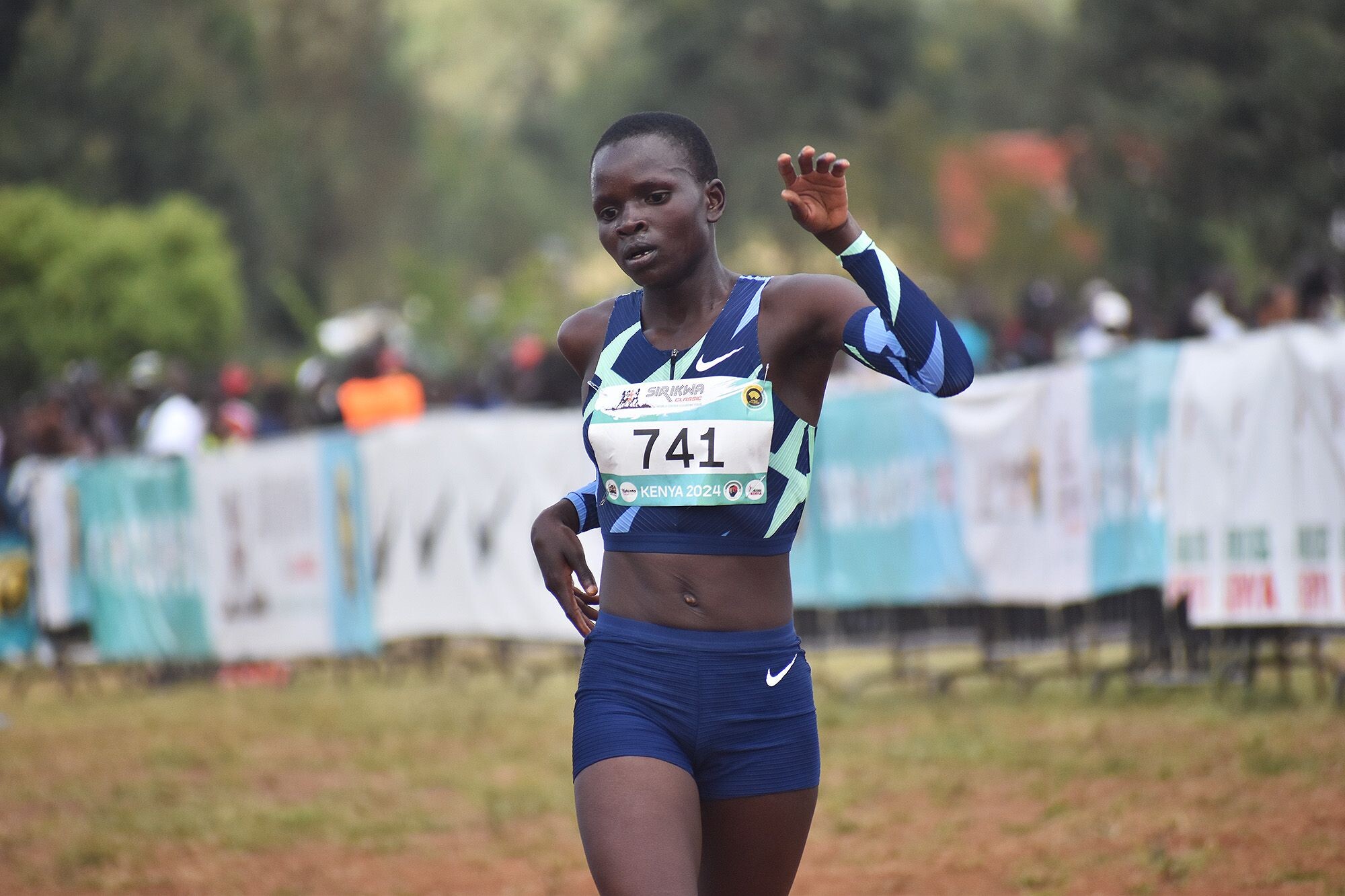
However as per AIU’s latest statement, the athlete was found to have cheated on four occasions between February and June 2024, her first, second and third urine samples revealing the presence of banned substance Metabolites while her fourth urine and blood sample revealed the presence of EPO.
The athlete failed to prove that she used the substances deliberately, having defended herself by claiming that she did not know how they ended up in her body. In her defence, Anyanyo claimed that she visited several hospitals in Eldoret after falling ill and that she fainted on multiple occasions and did not know what was injected into her system.
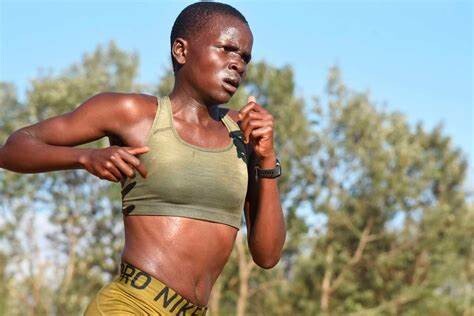
She also presented documents that failed to prove that she knowingly doped, which left her facing the mandatory four-year doping ban, and an extra two for Aggravating Circumstances as a result of her use of multiple banned substances.
The athlete was given an opportunity to accept responsibility, which would have seen her ban reduced by one year, but she failed to do this during the stipulated period, leaving the AIU with no choice but to slap her with the lengthy ban.
It is a major blow to the career of the 24-year-old, who will be 30 and beyond her prime by the time her ban ends in September 2030, having started making waves in 2024.
The Sirikwa Classic Cross-country champion was awarded the Sports Personality of the Month award for February by the Sports Journalists Association of Kenya (SJAK) after coming close to breaking the world 10km world record in January.
She recorded the second fastest 10km time in history when she clocked 28:57 in Valencia, Spain, improving Ethiopian Yalemzerf Yehualaw’s world record (29.14) but unfortunately for her, compatriot Agnes Ngetich won the race in a better time of 28.46.
Her career now appears to be over following the lengthy ban with her results from February 3, 2024 also scrapped.
by Joel Omotto
Login to leave a comment
Asbel Kiprop: Fame, loss and the redemptive journey of a running legend
After a social media post where Asbel Kiprop blamed a woman for wrecking his family and career, friends and mentors intervened helping him refocus seek support and rebuild his life.
A man is often judged by how he faces his battles whether they are on the field, in the boardroom or within himself.
For Asbel Kiprop, Olympic gold medalist and three-time world champion, life was initially a straight sprint to greatness—a journey of triumphs, gold medals and untold success.
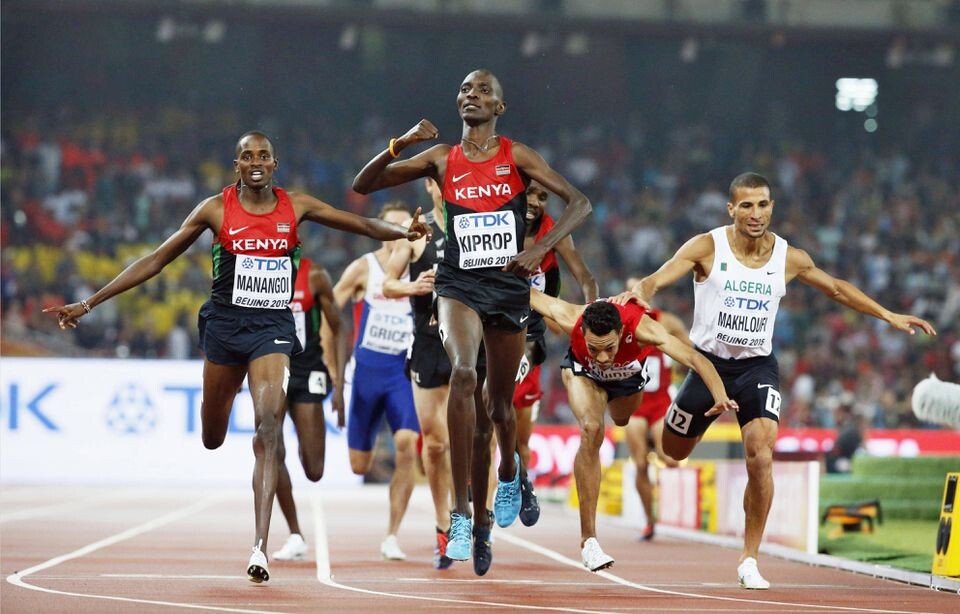
However, when the cheers faded, Kiprop found himself confronted by challenges far more daunting than any he had faced on the track.
In 2018, Kiprop's world came crashing down with a doping scandal that shocked the athletics world.
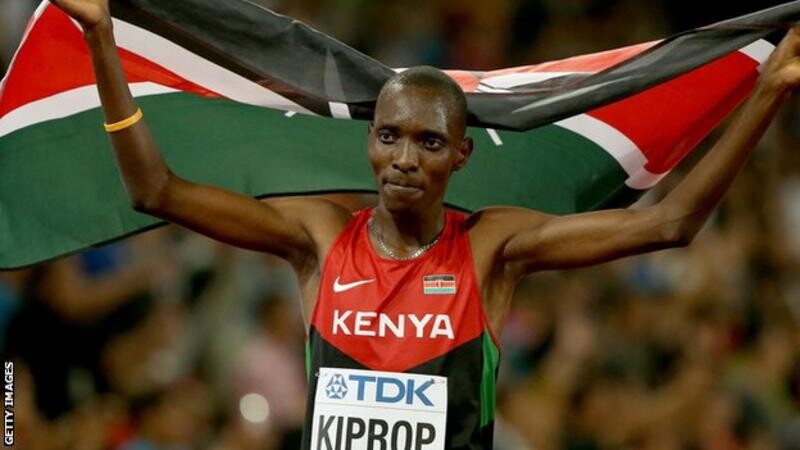
His name, once revered, was suddenly associated with disgrace and scandal as the Athletics Integrity Unit (AIU) imposed a four-year ban after a positive test for the blood-boosting drug EPO.
“I did not know what he was talking about. He said media was reporting that I had been banned for doping. I developed a running stomach. I was shaking…speechless...My heart felt like someone had plucked it," he recalled in a past interview with The Standard.
The news broke him in a way he could never have anticipated, triggering a spiral of sleepless nights, isolation and bitterness as he fought to reclaim his reputation.
The societal expectations placed on Kiprop, like many men, shaped his journey.
As a world-class athlete with a clean record and a respected status in his community the fall from grace was brutal.
Despite his accomplishments, he suddenly felt alone, misunderstood and scrutinized by a world that once cheered him on.
“People I thought knew me were not standing with me. I got very bitter. I wanted someone who would understand my pain; of how I had trained so hard and now I am banned,” he confesses.
It is a sentiment many men can resonate with—the feeling of isolation when life’s challenges intensify and the difficulty of finding true allies in a world where showing vulnerability is often seen as weakness.
In his darkest moments, Kiprop was left grappling not only with the scandal but also with the cost of fame. His career had come with privileges: financial success, fame and adulation from fans.
Yet, fame’s allure had drawn him into a whirlwind of distractions and poor choices, leaving him exposed to criticisms that ranged from accusations of promiscuity to allegations of reckless behavior.
Kiprop admits, “I made some mistakes in life, and I have always taken the consequences.”
For years, he found solace in the familiar: rigorous training, the support of fans, and, in his downtime, friendships that seemed unbreakable. But the scandal unveiled a new reality.
Friendships dissolved, his reputation crumbled and he found himself wrestling with 'depression'.
His struggles, like those of many men, were not immediately visible to the public eye and Kiprop’s cry for help went unheard until a social media post alarmed his followers.
In a raw moment, he hinted at desperation, expressing his pain in a message that prompted intervention from senior officials.
For Kiprop, it was a call to address his pain—a step many men struggle to take.
Now 35, Kiprop is working to regain his place in Kenyan athletics, setting his sights on the World Athletics Championships in 2025.
Kiprop’s message for men facing setbacks in their careers, relationships, or mental well-being is clear: a setback does not define one’s worth. Instead, it is a test of character and resolve.
“I want to start small and win for my employers, the Kenya Police, who diligently stood by me all the four years,” he says in an interview with RFI.
“It is going to be a hard time but… I want to post good times and progressively go up the ladder and qualify to represent Kenya again.”
This season, Kiprop returned to competition at the National Police Service Track and Field Championships, where he won his 1500m heat—a modest yet meaningful step in his quest for redemption.
His performance signals a new beginning for a man determined to rise again not as the prodigious young star he once was but as a seasoned athlete bearing the lessons of both victory and defeat.
by Festus Chuma
Login to leave a comment
Olympic silver medalist Koki Ikeda suspended for doping
The 26-year-old Japanese race walker Koki Ikeda, one of the world's top competitors in race walking and a leading figure in his national team, has been provisionally suspended this week by the Athletics Integrity Unit (AIU), which has detected unusual data in his biological passport.
As required by World Athletics protocol, this preventive measure is applied in cases where irregular figures are found, even when no direct violation has occurred in an anti-doping test that identifies a specific banned substance. Ikeda will now need to account for the unusual data in his biological passport to avoid a definitive suspension.
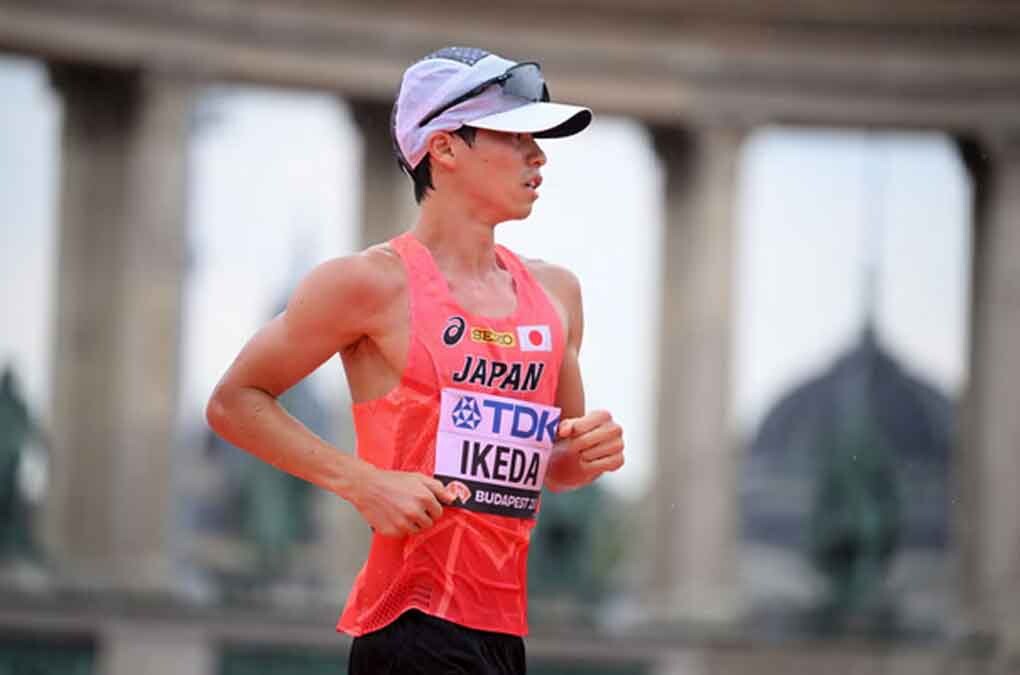
The Associated Press reported that Ikeda received the provisional ban for "suspected blood doping," quoting the AIU, which is based in Monaco. The anti-doping body stated on Friday that the issue relates to the "use of a prohibited substance/method." The biological passport can indicate markers of doping over time without an athlete testing positive for a banned substance. Investigators have not provided a timetable for the disciplinary case.
The race walker and the Japanese federation received this unfortunate news ahead of hosting their World Race Walking Championships in Tokyo in September 2025. Ikeda stated on Saturday that he is "completely bewildered" and pleaded his innocence. In a statement released to Japanese media, he expressed his intention to fight to clear his name. "For reasons that I know absolutely nothing about, I may not be able to compete in my next race, and I am utterly bewildered," he remarked.
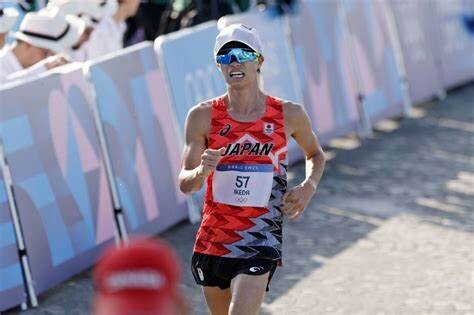
He also mentioned that he would "strive for the truth to come to light and for a fair result." "From here on, I would be very grateful for your understanding and support," he added. The disciplinary proceedings are now underway.
Ikeda was the Olympic silver medallist at the Tokyo 2020 Games and took silver at the 2022 World Championships in Oregon. This season, he achieved a second-place finish in the mixed relays at the World Team Championships in Antalya in April, as well as winning gold at the Japanese National Championships, which earned him direct qualification for Paris 2024, where he finished seventh in the 20-kilometre race. He concluded the year in October with a bronze medal in the 10,000-metre event in Yamaguchi.
by Javier Carro
Login to leave a comment
Tokyo Marathon runner-up banned for doping
Former Tokyo Marathon runner-up Tsehay Gemechu was banned for four years because of suspected blood doping, the Athletics Integrity Unit said Thursday (Friday in Manila).
The 25-year-old Ethiopian also was disqualified from all her results and prize money earned since March 2020, including second place in the elite-level Tokyo race in March 2023. Her run of just under 2 hours, 17 minutes had ranked No. 24 in the women's all-time list.
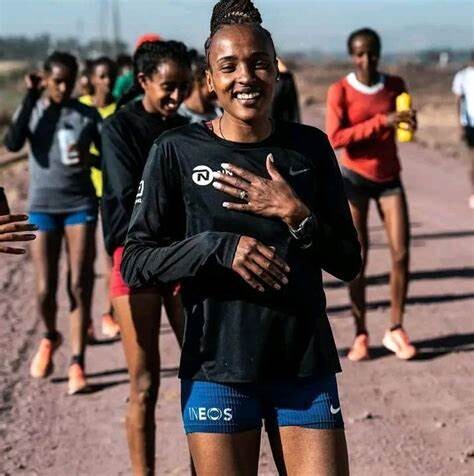
Gemechu also placed fourth over 5,000 meters at the 2019 world championships in Doha, Qatar, and ran in the 10,000 at the Tokyo Olympics held in 2021. She already was disqualified from that Olympics race for a lane violation. She did not finish the marathon at the 2023 worlds in Budapest, Hungary.
The AIU said Gemechu had suspicious blood values in her athlete biological passport. It can show indicators of doping over longer periods of time without the need for a positive test.
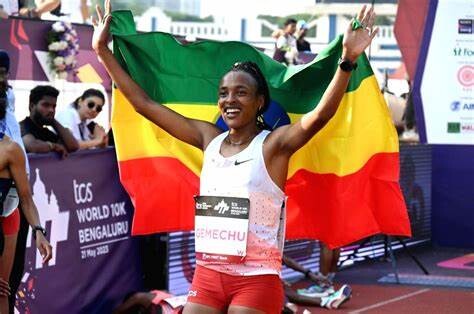
Gemechu gave 50 blood samples over a five-year period with those taken in March 2020 then April and May 2022 "indicative of blood manipulation," according to an independent doping tribunal's verdict.
She is banned until November 2027.
by Associated Press
Login to leave a comment
Tokyo Marathon
The Tokyo Marathon is a world-renowned annual marathon held in Tokyo, Japan. As one of the prestigious Abbott World Marathon Majors, it attracts elite and amateur runners from around the globe. The race holds World Athletics Platinum Label status, recognizing its high competitive standards, top-tier organization, and international appeal. Sponsored by Tokyo Metro, the Tokyo Marathon has grown into one...
more...Kenya's Charles Kipkkurui Langat issued with two-year ban for doping offence
Kenyan road runner Charles Kipkkurui Langat has received a two-year ban for violating World Athletics anti-doping regulations.
Kenyan road runner Charles Kipkkurui Langat been banned for two years from competing after being found to have violated World Athletics anti-doping rules.
The 28-year-old athlete, who won the eDreams Mitja Marató Barcelona in 2023 with an impressive time of 58:53, provided an out-of-competition urine sample in Iten, Kenya, on August 6, 2024.
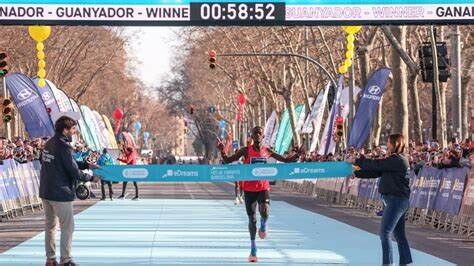
The sample tested positive for the prohibited substance Furosemide a diuretic commonly used as a masking agent.
The Athletics Integrity Unit (AIU), the body responsible for managing doping-related issues in athletics, confirmed the violation in a statement released this week.
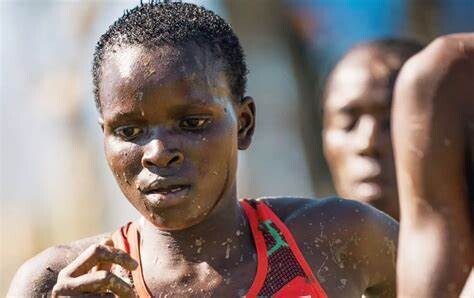
The AIU’s findings state that Langat did not have a Therapeutic Use Exemption (TUE) for Furosemide, and after reviewing his case, it was determined that no procedural errors occurred during the sample collection and testing process.
“The AIU has no evidence that the Anti-Doping Rule Violations were intentional, and the mandatory period of Ineligibility to be imposed is therefore a period of two (2) years,” the AIU said in its decision.
Langat admitted to the use of Furosemide in an explanation provided to the AIU, stating that he had been suffering from inflammation since September 2023 and had sought medical treatment in the Netherlands earlier this year.
He claimed a doctor advised him to use the substance.
“On 31 July 2024, he contacted a doctor that he knew, who, based on the Athlete’s symptoms, advised him to try using Furosemide for four (4) days to help reduce the inflammation he was experiencing and to ‘help the kidney and the adrenal glands,’” the report detailed.
Despite his explanation, Langat’s admission was enough for the AIU to impose sanctions.
The AIU outlined that his ineligibility would begin from September 11, 2024, when he was provisionally suspended, and his results since August 6, 2024, would be disqualified.
This includes the forfeiture of any titles, awards, and appearance money accumulated during this period.
Langat's case is the latest in a growing number of doping violations involving Kenyan athletes.
Just days ago, another Kenyan runner, Emmaculate Anyango Achol, was provisionally suspended after failing a doping test for testosterone and the blood-boosting hormone EPO.
Anyango, who made headlines by becoming the second woman to complete a 10km race in under 29 minutes, is currently awaiting the outcome of her case.
Kenya,has been grappling with a string of doping scandals in recent years.
The Athletics Integrity Unit has intensified its testing efforts, particularly in high-altitude training regions like Iten, where many elite athletes train.
Langat’s acceptance of the two-year ban and his decision not to contest the charge has drawn attention from both the global athletics community and his home country.
The World Anti-Doping Agency (WADA) and the Anti-Doping Agency of Kenya (ADAK) have the right to appeal the decision to the Court of Arbitration for Sport.
by Festus Chuma
Login to leave a comment
Emmaculate Anyango faces four-year ban following provisional suspension over doping
Kenya’s long-distance runner Emmaculate Anyango faces the prospect of a four-year ban after being handed a provisional suspension for doping as the net nabs another big fish.
Kenya’s long-distance prodigy Emmaculate Anyango has joined the list of shame following her provisional suspension for a doping violation.
The Athletics Integrity Unit (AIU) announced Anyango’s provisional suspension on Friday for the presence/use of a prohibited substance (Testosterone and EPO).
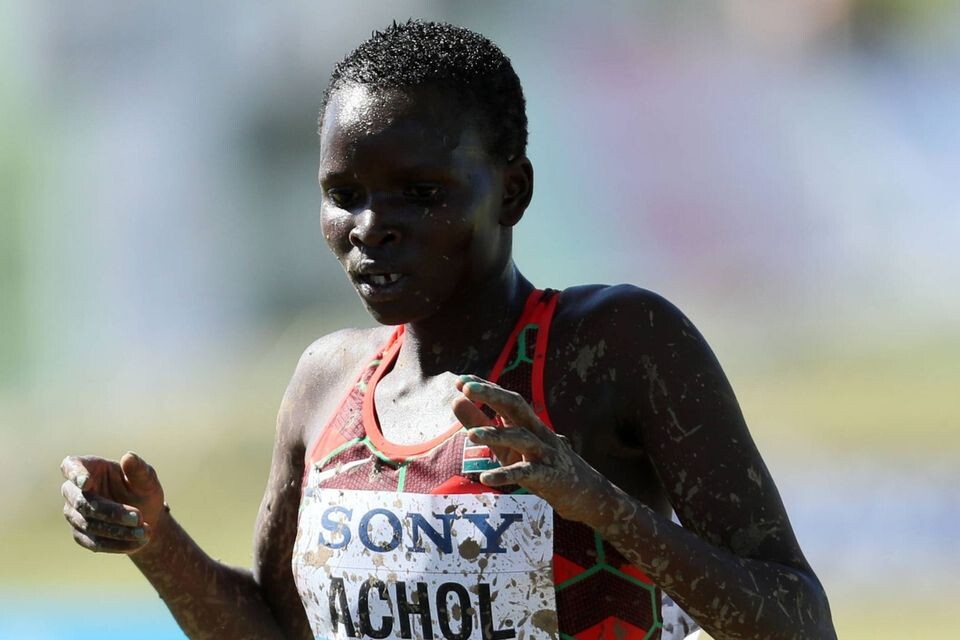
It means Anyango will remain suspended until her case is heard and determined and she faces a minimum of a four-year ban if she is found culpable.
It is a blow to the 24-year-old who was already making waves having been one of the standout athletes in the early months of the 2024 season.
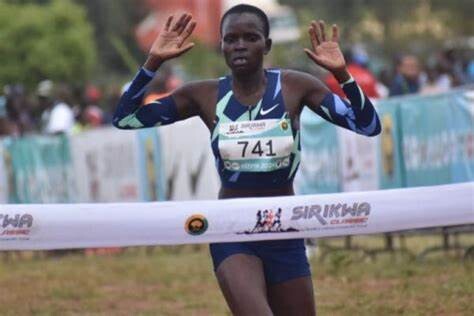
The Sirikwa Classic Cross-country champion was awarded the Sports Personality of the Month award for February by the Sports Journalists Association of Kenya (SJAK) after coming close to breaking the world 10km world record in February.
Anyango recorded the second fastest 10km time in history when she clocked 28:47 in Valencia, Spain, improving Ethiopian Yalemzerf Yehualaw’s world record (29.14) but unfortunately for her, compatriot Agnes Ngetich won the race in a better time of 28.46.
She would go on to finish fourth at the World Cross-Country Championships in Serbia followed by second place at the BAA 5k Road Run in Boston and in 10km Road in Bengaluru, India.
She, however, missed a place in team Kenya to the Paris Olympics after finishing sixth in the 10,000m trials which was held at the Prefontaine Classic, the Eugene Diamond League in May.
Back-to-back second places finishes would follow in 10km in Atlanta and in 15km in New York in July.
by Joel Omotto
Login to leave a comment
Eritrean marathon national record holder suspended on whereabouts
Eritrea’s Nazret Weldu, who finished fourth and eighth in the last two World Athletics Championships, has been handed a 20-month suspension for missing multiple doping tests.
On Wednesday, the Athletics Integrity Unit (AIU) announced the suspension of Nazret Weldu, Eritrea’s marathon record holder and 2024 Vienna Marathon champion, for violating World Athletics’ whereabouts regulations. The 34-year-old athlete has been banned for 20 months after missing three out-of-competition tests within 12 months, initiating an automatic suspension under World Athletics anti-doping rules.
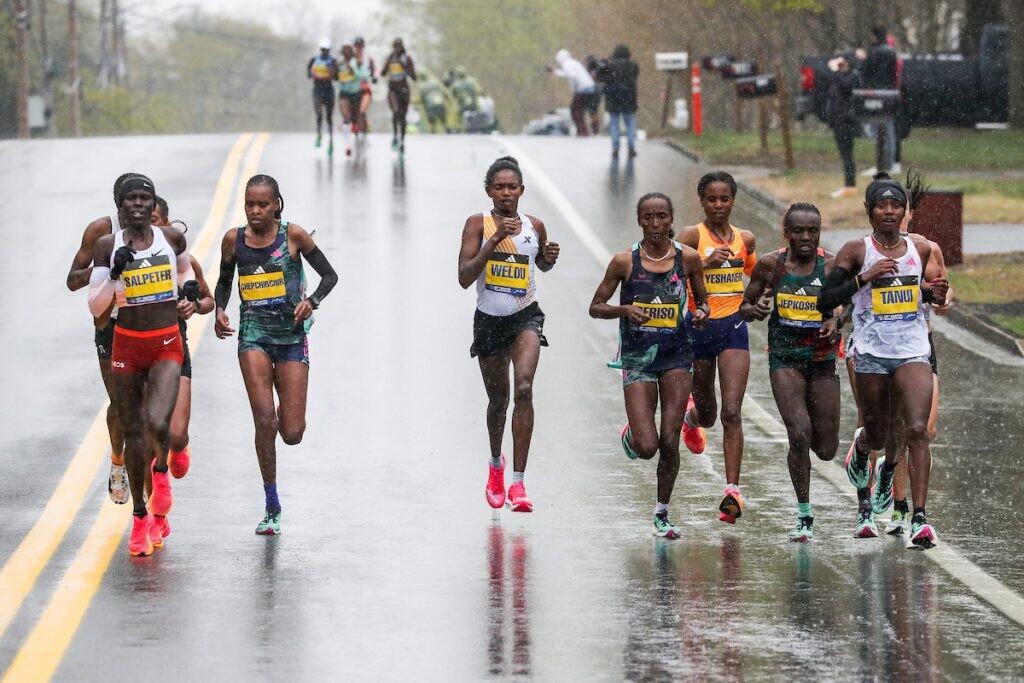
The AIU detailed that Weldu’s three missed tests occurred between Nov. 9, 2023, and May 22, 2024. All athletes are required to provide accurate and up-to-date location information to allow for unannounced doping tests, a critical component in maintaining a clean sport. Weldu was given several weeks after each missed test to provide an explanation but failed to do so before AIU deadlines.
Weldu has been one of the top-ranked female marathoners in the world over the last three years, having recorded two top-10 finishes at the World Championships and a personal best marathon time of 2:20:29, which also stands as Eritrea’s national record. In April 2024, she won the Vienna Marathon in 2:24:08.
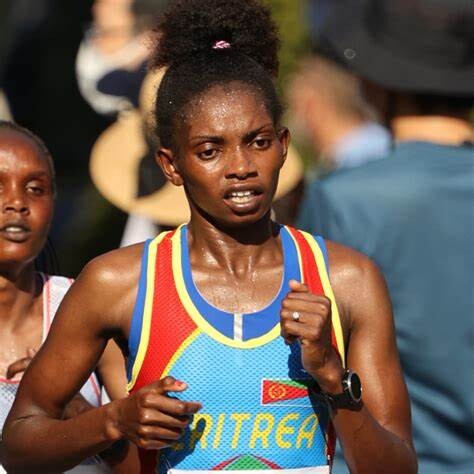
While an initial two-year ban is the standard penalty for three missed tests, Weldu’s suspension was reduced by four months. The AIU took into consideration her limited access to the internet and a lack of understanding of how to update her whereabouts information. Eritrea, her home country, has low internet penetration, with only 35 per cent of the population connected to a network.
The AIU and World Athletics rely on the whereabouts system to detect doping violations and ensure fairness in sport. Missing three tests is treated with the same severity as a positive doping result, underscoring the importance of accurate whereabouts information.
by Marley Dickinson
Login to leave a comment
Winner of 2022 Dublin Marathon tests positive for banned substance
The winner of the 2022 Dublin Marathon, Taoufik Allam of Morocco, has tested positive for the banned performance-enhancing drug EPO.
Allam, 35, has been provisionally suspended by the Athletics Integrity Unit (AIU), which runs the sport’s anti-doping system, his case included on the AIU’s list of pending cases, with his violation dated 16 August and stating: “Presence/Use of a Prohibited Substance (EPO)”.
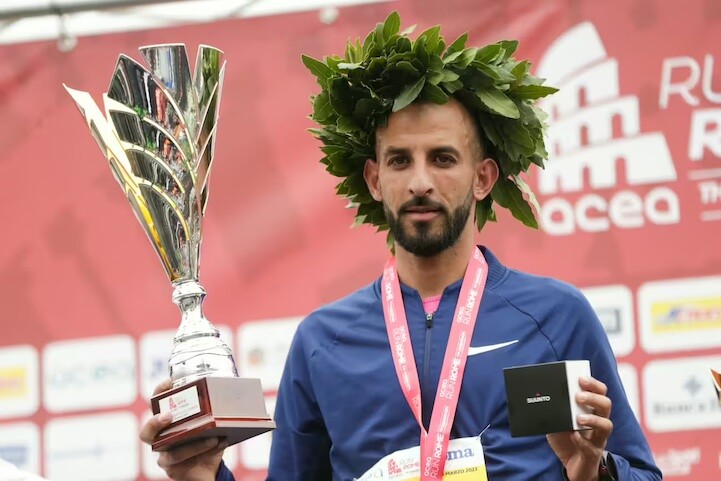
Synthetic erythropoietin is a banned drug that increases the body’s production of red blood cells, thereby improving its oxygen-carrying capacity. Allam can contest the charge and request to have his B sample tested to confirm the finding.
It marks the second time in recent years that the winner of the Dublin Marathon has been engulfed in a doping controversy, with Morocco’s Othmane El Goumri winning in 2019 after returning from a two-year ban for irregularities in his biological passport, a tool used by anti-doping authorities to track changes in athletes’ blood profiles for signs of doping.
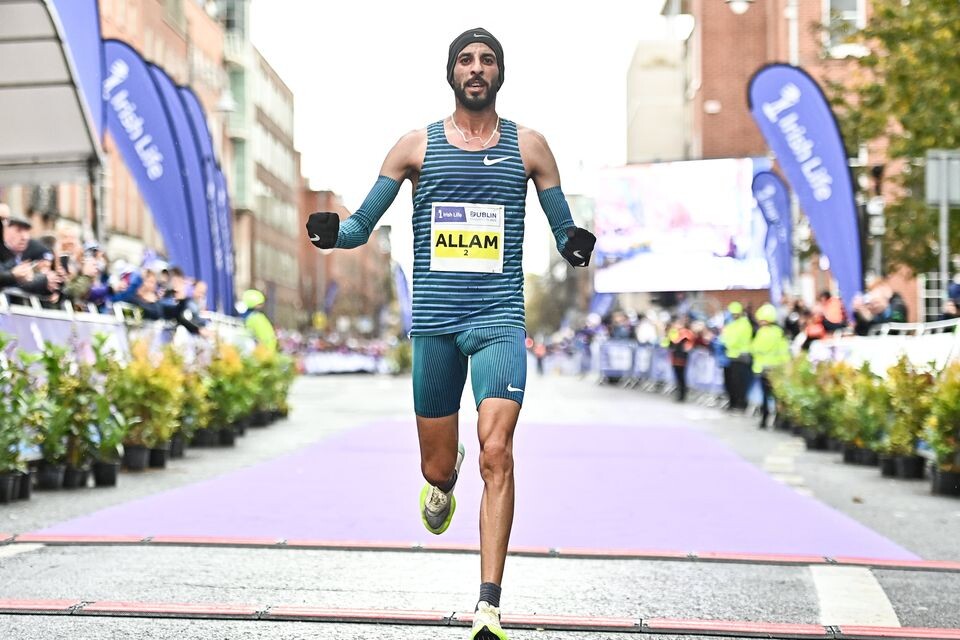
The organisers of the Dublin Marathon have a policy not to invite athletes who have served doping bans, but only became aware of El Goumri’s past after the invitation had been sent out and his flights booked for the 2019 race. Longtime race director Jim Aughney said at the time: “He slipped through the net with regards to us accepting his entry in the first place, but it will be part of the contracts from now on, for any athlete.”
In 2019, a little over a year after returning from his doping ban, El Goumri set a personal best of 2:08:06 to win the first prize of €12,000 in Dublin, demoting Ireland’s Stephen Scullion to second.
“Arguably I might have won the thing if he wasn’t here,” said Scullion. “I feel like a winner inside, that’s a victory for me. I’ve always taken a stance that drug cheats can do whatever they want, I can’t control it.
"I want to enjoy my moment, and in six or nine months’ time if he gets done for another doping violation, then I’m the champ. If the crowd want to believe I’m the champ, let them say. And when the room goes dark at night, I go to bed content knowing I’m clean.”
Allam is represented by the same management company as El Goumri. In the 2022 edition, Allam routed the field to win the men’s title, clocking a PB of 2:11:30 to come home almost two and a half minutes clear of the Ethiopian runner-up, Ashenafi Boja. The leading Irish finisher that year was Martin Hoare of Celbridge AC, who was seventh in 2:20:22.
Allam had no doping history before lining up in Dublin but faces a four-year ban if his positive test is confirmed in follow-up testing. Given the timing of the case, it would still not affect the outcome of the 2022 race, where Allam pocketed a €12,000 first prize. He has since gone on to take victories at the 2023 Rome Marathon in 2:07:43 and the 2024 Enschede Marathon in 2:08:53.
by Cathal Dennehy
Login to leave a comment
KBC Dublin Marathon
The KBC Dublin Marathon, which is run through the historic Georgian streets of Dublin, Ireland's largest and capital city.The course is largely flat and is a single lap, starting and finishing close to the City Centre. Conditions formarathon running are ideal....
more...Winfred Yavi's Bahrain heavily sanctioned by World Athletics following multiple accounts of doping scandals
Bahrain have been heavily sanctioned by World Athletics over doping scandals which will heavily impact their athletes, including Kenyan-born Olympic champion Winfred Yavi.
The World Athletics Council has approved a series of corrective actions against the Bahrain Athletics Association (BAA) following historical breaches of the World Athletics Anti-Doping Rules (ADR).
This decision comes after an 18-month investigation by the Athletics Integrity Unit (AIU), which uncovered serious violations linked to doping practices within the BAA.
The investigation was triggered by doping infractions involving two Bahraini athletes at the Tokyo 2020 Olympic Games, where both were found guilty of homologous blood transfusions.

Additionally, it was discovered that the BAA had employed a coach between 2019 and 2021 who was banned from the sport for prior anti-doping violations.
Acting negligently and recklessly in relation to doping, thereby damaging the reputation of World Athletics and the sport as a whole.
Failing to conduct proper due diligence when hiring athlete support personnel, which increased the risk of doping within the national team.
In response, the BAA admitted to the charges and has cooperated with the AIU throughout the process. As a result, the following sanctions and corrective measures have been imposed:
1.Restricted Participation: The BAA's involvement in the Paris 2024 Olympic Games and the World Athletics Championships in Tokyo 2025 will be limited to a maximum of 10 athletes, a move that could impact stars like Winfred Yavi and others.
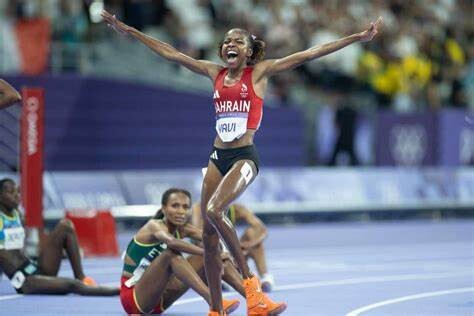
2.12-Month Ban: The BAA will be barred from participating in any other World Athletics Series events for a period of 12 months starting from June 1, 2024.
3.Transfer Freeze: The BAA will not be allowed to apply for transfers of allegiance or recruit any foreign athletes until 2027, marking a significant shift in the association’s recruitment strategy. Yavi is one of many athletes who were recruited from other countries.
4. $7.3 Million Investment: The BAA is required to invest up to $7.3 million over the next four years in measures aimed at addressing doping and integrity issues. This includes the implementation of a detailed strategic plan and operational roadmap (SPOR), developed in coordination with the AIU, to overhaul the federation’s governance and management practices.
5. Establishment of a National Anti-Doping Organization (NADO): Bahrain will establish a WADA-compliant NADO, fully funded by the government until at least 2026. This organization has already been operational for a year, marking a significant step forward in managing doping risks.
6. Talent Development Academy: The BAA will create and fund a talent academy focused on nurturing local athletes, signaling a shift towards developing homegrown talent rather than relying heavily on foreign recruits.
7. AIU Costs: The BAA will cover the AIU’s costs associated with the investigation and the supervision of the SPOR implementation.
David Howman, Chair of the Athletics Integrity Unit, praised the BAA’s leadership for their cooperation and proactive steps in addressing the federation’s failings.
“The BAA, to its great credit, has displayed genuine contrition about its past wrongdoings and commitment to change,” Howman said. He highlighted the establishment of a new NADO in Bahrain as a particularly significant achievement for clean sport.
Despite the BAA's past shortcomings, the AIU acknowledged that the federation's senior leadership was not involved in deliberate rule breaches and expressed satisfaction with the outcome, which aims to balance punitive measures with the goal of fostering real change within Bahrain's athletics landscape.
As Bahrain's athletes, including World Champion steeplechaser Winfred Yavi, prepare for the upcoming international competitions, the repercussions of these sanctions will undoubtedly have a lasting impact on the nation’s athletic programs.
by Mark Kinyanjui
Login to leave a comment
How Emmanuel Wanyonyi’s rival faced an anti-doping raid before Olympic 800m final
A track athlete was raided by anti-doping officials at the Olympic village days before securing a bronze medal in the 800m event.
Olympic 800m bronze medalist Djamel Sedjati is believed to be still under scrutiny by the Athletics Integrity Unit (AIU) following a dramatic raid in the Olympic village just days before the final event.
The incident, which unfolded a week ago but garnered minimal media attention at the time, involved French anti-doping officers executing a search linked to an ongoing investigation into alleged doping practices.
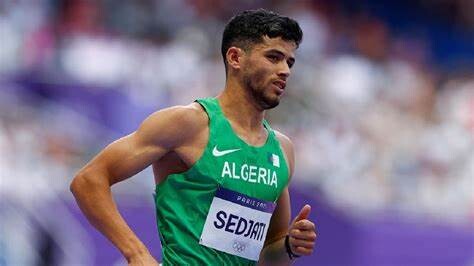
The raid, led by the French Anti-Doping Agency (AFLD), targeted Sedjati’s accommodations and was part of a broader probe that also implicated Algerian athletics coach Amar Benida.
According to the French sports daily L'Equipe, sources close to the investigation have indicated that Benida was the primary focus of the inquiry.
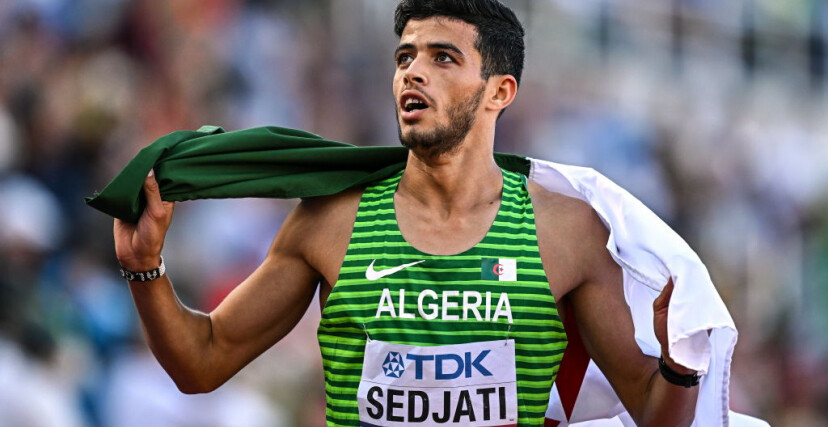
This revelation puts a different light on the events, suggesting that Sedjati may have been collateral in the broader investigation rather than the direct target.
In the wake of the raid, Sedjati displayed remarkable composure, securing a third-place finish in a fiercely competitive 800m final at the Stade de France.
The race itself was historic, with four of the seven top times on the all-time performance list being recorded, highlighting the extraordinary level of competition.
Emmanuel Wanyonyi of Kenya clinched gold with a time of 1:41.19, becoming the third-fastest performer in history.
Following his performance, Sedjati addressed the incident at a press conference.
"Nothing (important) happened. These are things that athletes can face. Thank God it was only a small inconvenience. I was quickly able to get back to normal," Sedjati told reporters.
The Paris prosecutor's office and the AFLD have remained silent on the matter offering no comments or insights into the ongoing investigation.
This lack of official information has fueled speculation and concern within the athletics community.
In response to the controversy, the Algerian Olympic Committee issued a strong statement via Al24News, condemning what they described as "malicious attempts aimed at tarnishing the image of the Algerian runner Djamel Sedjati, victim of unjustified attacks by certain sports media."
This statement reflects the tension and the high stakes involved, particularly in light of Sedjati’s recent performances and his stated ambition to break David Rudisha’s 800m world record.
Sedjati’s resilience was on full display just weeks prior at the Monaco Diamond League, where he won the race in an impressive 1:41.46, just shy of his personal best set in Paris.
His capabilities and recent form make him a significant figure on the track, and the timing of the raid raises questions about the implications for his career and reputation.
by Festus Chuma
Login to leave a comment
Paris 2024 Olympic Games
For this historic event, the City of Light is thinking big! Visitors will be able to watch events at top sporting venues in Paris and the Paris region, as well as at emblematic monuments in the capital visited by several millions of tourists each year. The promise of exceptional moments to experience in an exceptional setting! A great way to...
more...US sprinter Erriyon Knighton haunted as AIU appeal decision on doping case
AIU appeals the decision clearing sprinter Erriyon Knighton of doping charges, questioning the ruling that allowed him to compete.
The Athletics Integrity Unit (AIU) has appealed to the Court of Arbitration for Sport (CAS) following the controversial decision to clear American sprinter Erriyon Knighton of any wrongdoing after he tested positive for the banned substance trenbolone earlier this year.
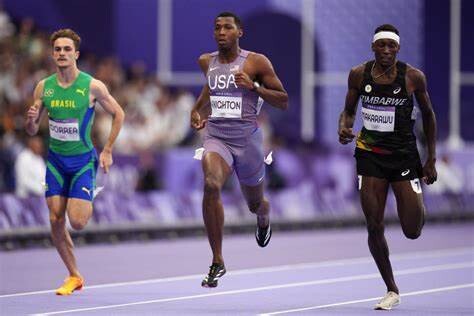
Knighton, 20, one of the rising stars in track and field, tested positive for trenbolone in March, a substance commonly used to promote muscle growth in livestock.
The positive test came as a shock to the athletics community, casting a shadow over the young athlete's burgeoning career.

However, in a ruling on June 19, an independent arbitrator determined that Knighton had "more than likely" ingested the substance through contaminated meat, which is legally used in beef production in the United States.
The arbitrator's decision cleared Knighton to compete in the United States Olympic trials in Oregon, where he went on to qualify for the Paris Olympics.
The ruling was met with mixed reactions, with some applauding the decision as a fair judgment, while others expressed concern over the potential implications for the sport's integrity.
In a statement that provided little detail on the specifics of the appeal, the AIU said:
"This appeal is against the decision of an arbitration tribunal in the United States that the Athlete established No Fault or Negligence after USADA brought charges against the Athlete for the Presence of epitrenbolone and Use of trenbolone."
The appeal comes after the United States Anti-Doping Agency (USADA) chose not to impose a suspension on Knighton, attributing his positive test to contaminated meat.
This decision allowed the young sprinter to participate in the Olympic qualifiers, leading to his appearance at the Paris Olympics.
USADA chief executive Travis Tygart defended the ruling, stating, "Justice has been served following Knighton's clearance."
Despite this, the AIU's decision to take the matter to CAS indicates ongoing concerns about the integrity of the ruling and the broader implications for anti-doping efforts in athletics.
Adding to the controversy, Knighton’s behavior after the men’s 200-meter final at the Paris Olympics raised eyebrows.
Despite finishing fourth, Knighton was conspicuously absent from the mandatory mixed zone interviews with the media.
His absence was notable, especially when contrasted with his teammate Kenneth Bednarek, who won the silver medal and addressed reporters openly.
Even Noah Lyles, who had tested positive for COVID-19, made a masked appearance to discuss his experiences.
The athletics world now waits with bated breath as the case moves to the Court of Arbitration for Sport, where a final decision will determine whether Knighton’s name will be cleared or if he will face sanctions that could derail his promising career.
by Festus Chuma
Login to leave a comment
Teen sprinter sues Gatorade over doping ban that cost him an Olympic spot
The fastest high school sprinter in history is suing Gatorade, claiming the company gave him a fraudulently certified product that contained a banned substance and led to his four-year banishment from track and field, costing him a chance to compete in the Paris Olympics.
Issam Asinga, the Surinamese teenager who set the under-20 world record in the 100 meters, said that when Gatorade honored him as its high school track and field athlete of the year in July 2023, it provided a gift basket that included Gatorade Recovery Gummies. In a lawsuit filed Wednesday, the 19-year-old Asinga claims those gummies are the reason he later tested positive for the banned substance GW1516, which led to a four-year ban this May and stripped him of his record. The suit further claims the company took measures to protect its reputation, damaging Asinga’s in the process.
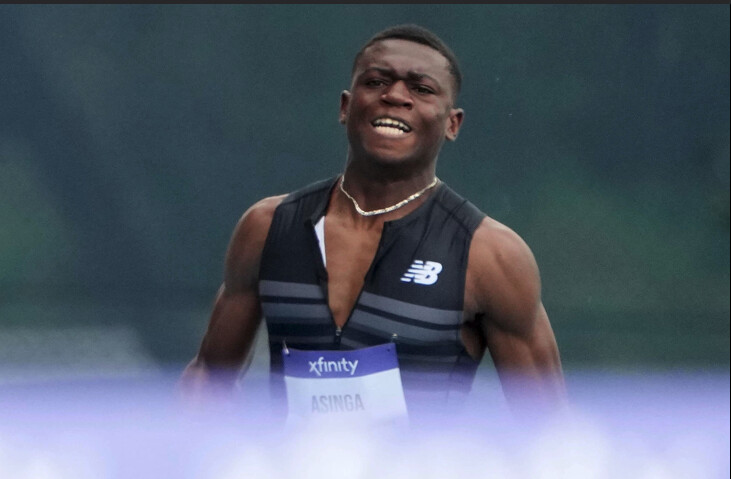
Asinga filed suit in the Southern District of New York against Gatorade and Pepsi Co., its parent company. He is seeking, according to the lawsuit, to “recoup the millions of dollars he has lost in economic opportunities, as well as compensation for the devastating emotional harm he has suffered.”
In an emailed statement, a Gatorade spokesperson said: “The product in question is completely safe and the claims made are false. … Gatorade products are FDA compliant and safe for athlete consumption, which was validated by the findings of the Athletics Integrity Unit investigation.”
Were he eligible, Asinga could have competed for Suriname at the Paris Olympics, earning potentially millions on a sponsorship deal. Instead, he is banned from the Games and lost his endorsement opportunity. The suspension also will prohibit him from training with or competing his college teammates at Texas A&M, and despite support from his coaches, Asinga believes he could lose his scholarship.
“You’re either guilty or you’re not,” Asinga said in a Zoom interview alongside his lawyers. “I know I’m not, so I’ve got to chase my dream. I’ve got two Olympian parents; I was born to run. Am I going to destroy my dream because of something I didn’t do, or am I going to keep fighting until the end?”
‘I was honored when they told me to get tested’
Asinga grew up in Atlanta, went to a St. Louis boarding school, lived a couple of years in his mother’s native Zambia, went to high school in Florida and currently attends Texas A&M. He is the son of track and field Olympians: His mother, Ngozi, competed for Zambia, and his father, Tommy, once served as the flag bearer for Suriname.
By the summer of 2023, Asinga had become one of the world’s most promising track athletes. That April, he stunned the track world by beating world champion Noah Lyles in a 100-meter race in Florida with a wind-aided time of 9.83 seconds.
Asinga chose to compete under the flag of Suriname. In a Zoom interview Wednesday, as he described the effect of his son’s suspension on his home country, Tommy began to cry.
“I felt like I had more of an opportunity to make a difference running for Suriname,” Issam Asinga said. “In Suriname, the one thing that’s holding them back is the facilities. They don’t have someone who can make that difference. I can use whatever I do in my track career to help better this country.”
Gatorade named him its 2023 Florida boys’ track and field player of the year and invited him to a July 11 ceremony in Los Angeles. One month before the ceremony, according to the lawsuit, Asinga took a drug test that came back clean.
“I was honored when they told me to get tested,” Asinga said. “I was like, ‘Okay, bet!’ That’s how I know I’m going somewhere.”
At a gathering the day before the awards ceremony, Gatorade gave Asinga and other athletes a gift bag that included cherry-flavored Gatorade Recovery Gummies. The container was stamped as “NSF Certified for Sport.” NSF is an independent public health organization.
According to the lawsuit, Asinga’s mother texted Issam’s coach, Gerald Phiri, a photo of the ingredient label and asked, “Is this ok to eat[?]”
When Ngozi showed him a picture of the Gatorade logo, Phiri wrote back: “Oh yea these are both fine. Gatorade doesn’t make products that are against sporting rules.”
For the next two weeks, according to the lawsuit, Asinga took two gummies after his workouts. The Athletics Integrity Unit (AIU), the drug-testing arm of World Athletics, tested him again July 18.
Asinga stopped taking the gummies “on or around” July 25, according to the lawsuit. On July 28, Asinga ran the 100 meters in 9.89 seconds at a meet in São Paulo, Brazil. This time, the wind was legal: He had broken the under-20 world record. The AIU tested him again on that day, and that July 28 test would come back clean.
On Aug. 9, 2023, the AIU informed Asinga he had failed the July 18 drug test. Picograms of GW1516 had been detected in his urine. When Asinga received the call, he said, he dropped to his knees in shock.
“It was devastating,” Asinga said. “It was the worst day of my life.”
Known as cardarine, GW1516 was originally developed as a potential treatment for obesity and alters how the body metabolizes fat, according the U.S. Anti-Doping Agency. It is illegal for use in food or medication. The U.S. Anti-Doping Agency notes in its handbook, “athletes should be aware, however, that dietary supplements may be contaminated with this compound.”
Asinga and his lawyer, Paul Greene, who specializes in defending athletes accused of performance-enhancing drug use, compiled a list of foods and supplements he had consumed that could be tested for GW1516. They included the Gatorade gummies.
“We kind of laughed it off,” Asinga said. “It was the last thing I would have thought this source would have been in. This brand is something I’ve looked up to my whole life. Gatorade is a part of sports.”
Asinga sent the gummies to the same lab, according to the lawsuit. On Oct. 26, 2023, according to the lawsuit, the lab notified the AIU that “preliminary findings” concluded the Gatorade gummies had been contaminated with GW1516.
When a company produces a dietary supplement that requires certification, it makes them in numbered lots so each lot can be tracked in case of contamination. By federal regulation, it must keep samples of each lot.
According to the lawsuit, further testing at the Utah lab confirmed not only the GW1516 contamination in the gummies Asinga had supplied; it also showed the same baseline concentration of GW1516 that had been detected in Asinga’s drug test. The chemical codes matched. The lab provided those analytical results to the AIU.
According to the AIU decision, the lab noted “two unusual aspects.” There was a “large discrepancy in the findings between the two containers of the Gatorade Recovery Gummies” and the contamination was present on the surface of the gummy rather than uniformly distributed.
The lab concluded “it was not possible to rule out deliberate adulteration of the product after it was opened,” the decision read.
Asinga’s lawyers said it defies belief that Asinga could have adulterated the gummies.
“All of them would have had to have been dipped individually in a formula that would have been watered to a trillionth of a gram,” Greene said. “An 18-year-old kid living in a dorm would have had to have done that. It’s almost laughable that that’s what he was accused of doing.”
According to the lawsuit, Asinga again contacted Gatorade and requested a sealed bottle from the 22092117150234 lot.
According to the lawsuit, Gatorade instead sent a bottle of recovery gummies to the AIU from a different lot. That lot had been tested by NSF and was accurately labeled as such, according to the lawsuit. The NSF, in a a public notice issued in early June, said the container in Asinga’s case came from an allotment it had not tested.
“They did a bait-and-switch,” said Alexis Chardon, the lawyer representing Asinga in court. “They said, ‘We don’t have a sealed supplement of the one we gave Issam. But we have this other one. Why don’t you take this one?’ That one was NSF tested. And then they let that lie fester.”
“Gatorade fully complied with the Athletics Integrity Unit investigation, including producing evidence that was accepted by the AIU that the gummies were not contaminated with the banned substance in their original ruling,” a Gatorade spokesperson said in an emailed statement.
When the AIU tested the gummies from that container, the results came back clean, according to the lawsuit. Once the AIU received those tests, it handed down its four-year ban to Asinga.
“Gatorade created, fed, and encouraged the false narrative that Issam was given ‘clean’ gummies and therefore Issam had adulterated the ones he got tested,” the lawsuit reads.
Attempting to restore a reputation
On June 14, less than two weeks after the NSF released its public notice about Gatorade, Asinga received what he hoped would be a breakthrough: A representative from the AIU called Greene and told him Gatorade had found and sent a sealed bottle from the same lot as Asinga’s bottle of recovery gummies. If that bottle was tainted with GW1516, it would be pivotal to overturning Asinga’s suspension.
The tests came back negative, according to the lawsuit.
Feeling “confused,” according to the lawsuit, Asinga contacted other athletes from the 2023 awards ceremony and found one who had a similar bottle of recovery gummies. When that bottle was tested for GW1516, according to the lawsuit, it also came back negative.
“For a while, it looked like we dug ourselves in deeper,” Chardon said.
According to the lawsuit, Asinga’s team had one more idea: On June 26, they asked for his original recovery gummies to be retested. They wondered whether the GW1516 had become undetectable over the previous six months.
On July 5, according to the lawsuit, the results came back: The gummies that once had tested positive now returned a negative result.
“Gatorade’s delay had cost Issam the possibility of proving contamination in a sealed container from the same lot he had ingested, robbing him of the possibility of ever meeting the AIU’s gold standard test for showing innocent ingestion of a banned substance,” the lawsuit reads.
In a statement, Gatorade said it “spent those months looking for the specific lot number in the field and, once sourced, immediately provided the product to the AIU.”
Because GW1516 is illegal, Greene said, scant testing has been done on it. Greene is hoping to organize lab tests that can prove GW1516 could become undetectable over the six months. He hopes to use that finding in his Court of Arbitration for Sport appeal later this year.
The lawsuit against Gatorade made Wednesday “one of the first days I can say I’m actually taking a deep breath and let it out a little bit,” Ngozi said. “As a parent, it’s so overwhelming. You never in a million years expect your child to be fighting for his character and his integrity because of something he didn’t do.”
Over the past month, Asinga lost his final glimmer of hope that he could run in the Paris Olympics. He has remained optimistic that he will sprint next year for Texas A&M. He has cried and felt depressed at times. Over the winter, he stopped practicing for several days and wondered whether track was worth it. He still believes he will prevail.
“It hurts,” Asinga said. “There’s been some bad days. The clouds might be over us. But they’re going to have to clear eventually.”
Login to leave a comment
Lawrence Cherono banned for seven years for doping and tampering
The 2019 Boston and Chicago Marathon winner admitted to three anti-doping rule violations
Lawrence Cherono, a two-time major marathon champion and the former world No.1 over 26.2 miles, has been banned for seven years for doping and tampering.
The 35-year-old admitted to three anti-doping rule violations, including tampering for attempting to mislead the investigation.
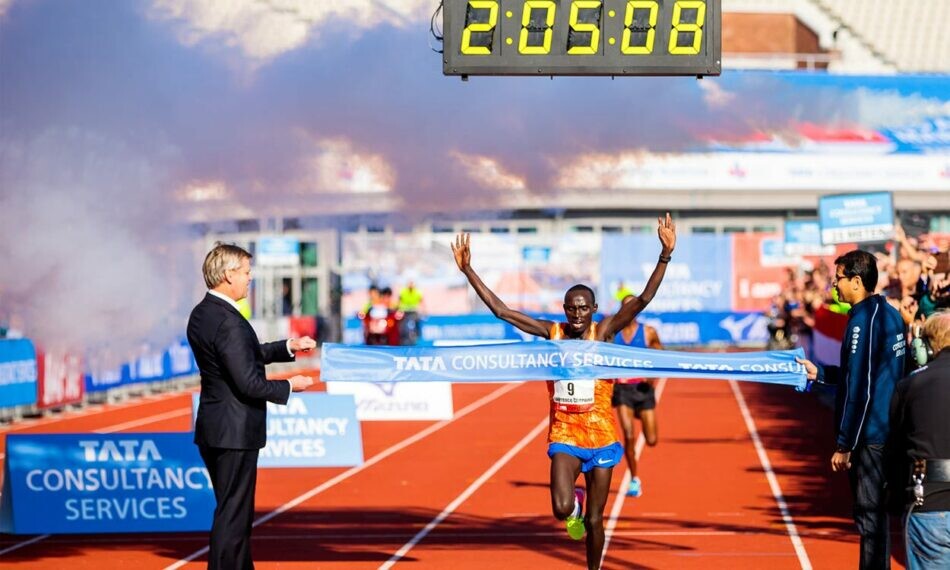
Cherono, who has a personal best of 2:03:04 in the marathon and is 12th on the world all-time list, was suspended by the Athletics Integrity Unit (AIU) in 2022 after testing positive for the banned substance trimetazidine, in an out-of-competition test.
He has now received a four-year ban for the positive test and was given another four years by the AIU for the tampering offence. However, as Cherono admitted to the violations, he has been given a one-year reduction to his ban.
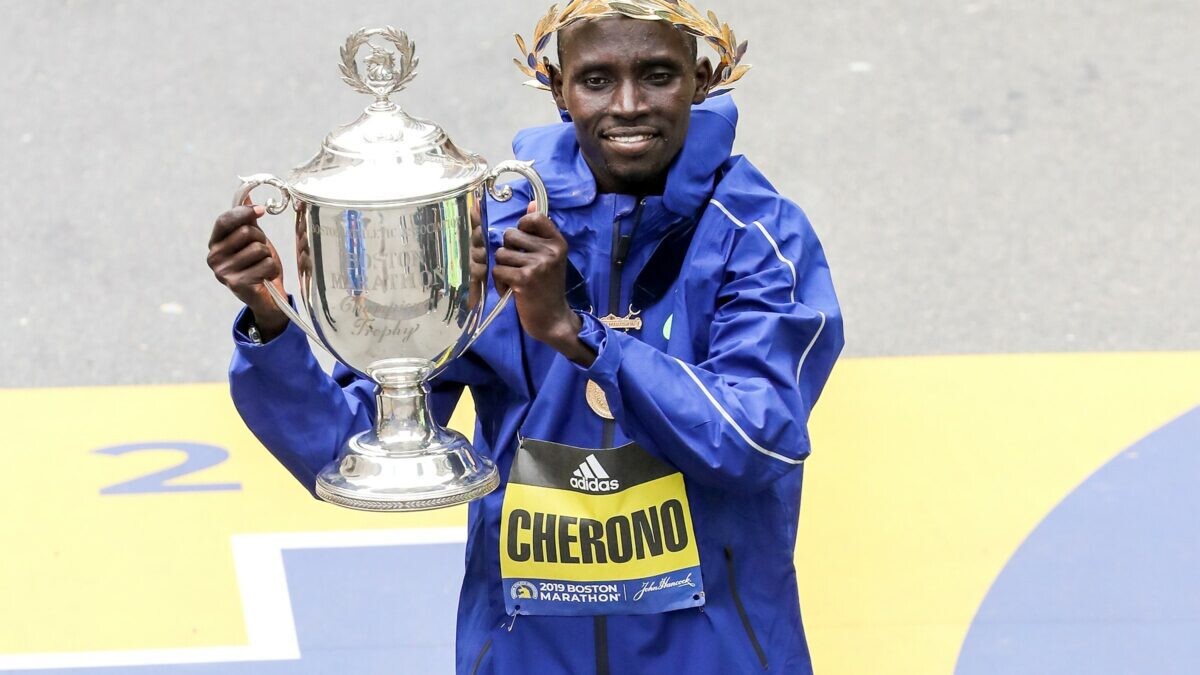
In addition to Boston and Chicago, Cherono has won marathons in Seville, Valencia, Prague, Honolulu and Amsterdam.
The AIU said: “In attempting to explain the positive test, Cherono initially said he had been given the antibiotic Erythromycin and was also injected with an unknown substance by a doctor to treat stomach problems, but then also attempted to implicate his training colleagues for the failed test, claiming they were ‘jealous of his success’.
“However, in a subsequent written statement, Cherono said he had been inadvertently given Trimetazidine in the form of Carvidon tablets by his wife – instead of the painkillers he had requested – to treat muscle pain following training on 22 May 2022. According to the runner, his wife had been prescribed the Trimetazidine four days earlier at a medical centre.
“To support his explanation, Cherono provided a laboratory request from the medical centre, including hand-written details of medications prescribed for his wife, along with a photograph of the underside of tablets enclosed in their blister packaging. In collaboration with the Anti-Doping Agency of Kenya (ADAK), further investigations into the laboratory request and additional medical documents provided by Cherono as proof of his wife’s treatment at the medical centre, revealed “several inconsistencies”.
“Following a request from ADAK to the medical centre in November 2022 for additional information to verify the documents independently, the clinic director confirmed in December 2022 that they ‘were not genuine/official documents from the clinic and that the information they contained was not true and accurate’.
“Following this development, the AIU said its investigation into Cherono’s explanation and the submitted documents ‘was materially obstructed and substantially undermined’, with repeated attempts to obtain copies of medical records to corroborate the runner’s wife’s alleged medical treatment proving unsuccessful. After its attempts to secure the wife’s medical records were repeatedly impeded, the AIU – through ADAK – gained a court order in Kenya compelling the medical centre to surrender the documents. In response, the medical centre said there were no records available for any treatment to the athlete’s wife since May 1, 2022.”
On June 26, 2024, Cherono admitted to the violations in a signed letter to the AIU, marking the end of the two-year investigation.
“This decision is testament to the tireless and persistent efforts of the AIU in investigating doping and the explanations provided for positive tests,” said AIU Head, Brett Clothier.
“Since its inception, the AIU has remained steadfast in its commitment to clean sport, and this decision sends a strong signal to drug cheats that the AIU will leave no stone unturned in carrying out its mandate.”
by Tim Adams
Login to leave a comment
The Issam Asinga Case: Evil Coverup or Did The Fastest High School Sprinter Ever Test Positive For Drugs After Eating Gatorade Gummies?
Six weeks ago, 19-year-old Issam Asinga, the fastest teen sprinter in world history, was handed a four-year ban from the sport of track & field after testing positive for the banned substance GW1516. Asinga’s positive sample came in July 2023, just days before he ran 9.89 seconds to become, at the time, the youngest person in history to break 10 seconds for 100 meters. Asinga, who had been provisionally suspended since August 2023 by the Athletics Integrity Unit (AIU), appealed the decision to the AIU’s disciplinary tribunal, who ruled against him and upheld the four-year suspension on May 27.
Until then, the details of Asinga’s case had been kept secret. Now they are public, and potentially explosive.
Asinga, who maintains his innocence, blamed the positive test on contaminated Gatorade gummies he received at the company’s National Athlete of the Year ceremony in Los Angeles last summer, where he was honored as high school track & field athlete of the year. Asinga has already appealed his case to the Court of Arbitration for Sport, where it is expected to be heard later this year. He is also mulling whether to launch a civil suit against Gatorade because the gummies in question falsely carried an NSF Certified for Sport label, which signified that the product did not contain any prohibited substances. NSF has made a public statement saying the gummies from Asinga’s lot number were not NSF Certified and the NSF Certified mark was being used without authorization.
“They distributed a supplement that wasn’t NSF Certified for Sport that had a banned substance in it,” said Asinga’s lawyer Paul Greene. “That’s violation of product liability law, negligence, implied warranty, New York state consumer protection law. I mean, it’s bad. He had the possibility of getting endorsement and NIL deals that were going to be in the millions of dollars and he lost all that as a result of this. He also lost out on the chance to compete in the World Championships and the Olympics.”
The AIU, however, was not satisfied that the gummies were the source of Asinga’s positive test, and its disciplinary tribunal agreed.
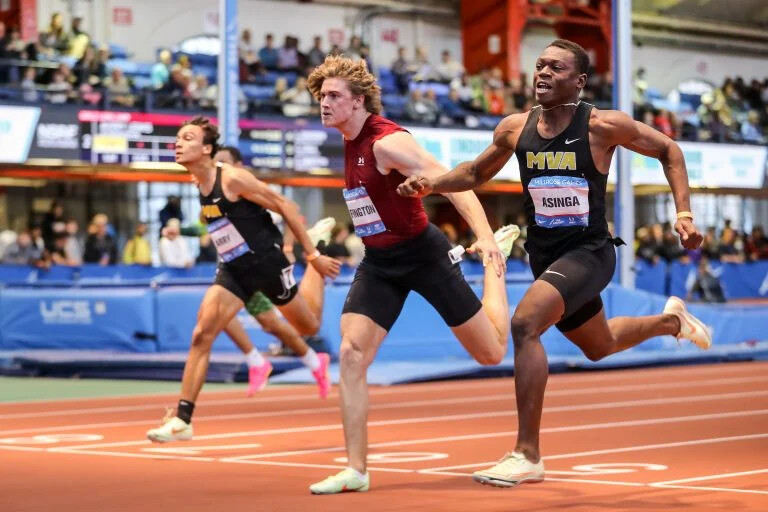
Incredible 2023 high school season
Asinga’s is one of the highest-profile doping cases in recent years. After running personal bests of 10.44 seconds in the 100m and 20.76 in the 200m as a junior in 2022 at Principia High School in Missouri, Asinga transferred to Montverde Academy in Florida for his senior year, where he improved enormously and produced one of the greatest seasons ever by a high school sprinter.
During the 2023 indoor season, Asinga won national high school titles in the 60m (6.59) and 200m (20.48) at New Balance Nationals, tying the national record in the former event (he ran 6.57 in the semis) and breaking the national record in the latter. Outdoors, Asinga ran a wind-aided 9.83 in the 100m to defeat Noah Lyles, who would go on to win the world title in that event four months later. Asinga, who was born in the US but represents Suriname internationally, then ran 19.97 in the 200m in April (#2 all-time among US high schoolers) and 9.89 in July to win the South American 100m title in Sao Paulo, Brazil. The latter time ranked Asinga in a tie for ninth in the world in 2023. It was also a world U20 record and was the first time a US high school athlete had broken the fabled 10-second barrier.
Now that world U20 record has been stripped as Asinga finds him at the center of controversy. The 43-page decision in his case released by the AIU presents only two possible versions of events.

Option A: An 18-year-old was caught doping barely a month after being added to the international testing pool. Then he or someone in his camp tried to cover up his doping by manipulating evidence and defaming Gatorade, one of the world’s largest sports nutrition companies.
Option B: One of the greatest sprint talents in history was unjustly banned after consuming a tainted supplement given to him by one of the most famous brands in sports.
Neither picture is particularly rosy for the sport of track & field, but one of them must be true. After reviewing the evidence, the AIU and its disciplinary tribunal is clear which version it believes: Option A. As a result, Asinga is banned from competition until 2027 barring a successful appeal to CAS.
Background: Asinga enters the testing pool
Most high school track athletes, even elite ones, are rarely drug-tested. But by the spring of 2023, Asinga was running so fast it was becoming clear he could be a factor at that summer’s World Championships in Budapest. He was added to the World Athletics Testing Pool on June 1.
Asinga was tested on June 11 and returned a negative result. He was tested again out-of-competition on July 18 (in his training base of Clermont, Fla.) and again at the South American championships on July 28. The July 18 sample tested positive for GW1516, a banned substance that modifies how the body metabolizes fat and has been found to cause cancer. Specifically, Asinga’s sample tested positive for low levels of two metabolites of GW1516 — a metabolite is a substance produced when the body breaks down a specific drug. In this case, Asinga’s urine contained the GW1516 sulfone metabolite (at a concentration of 0.2 nanograms per milliliter in both his A sample and B sample) and the GW1516 sulfoxide metabolite (at a concentration of 0.5 ng/mL in his A sample and 0.4 ng/mL in his B sample).
On August 9, Asinga was informed of his positive test and provisionally suspended from competition. Shortly after, in an effort to prove his innocence, he began sending his supplements to be tested for contamination at the Sports Medicine Research and Testing Laboratory (SMRTL), a WADA-accredited lab in Salt Lake City. The first supplement Asinga sent, melatonin gummies, tested negative. Asinga then sent a larger set of supplements, including Airborne and Skratch Lab Hydration packets as well as Gatorade Immune Support Gummies and Gatorade Recovery Gummies, two new products he had received at the Gatorade National Athlete of the Year ceremony on July 10.
All of the supplements tested negative for GW1516 except the Gatorade Recovery Gummies. In December, SMRTL informed the AIU that of the five gummies tested, four were positive for GW1516. That much, the parties agree on. From there, the narratives diverge.
Contaminated during manufacturing or as part of a coverup?
Asinga said he began taking the Recovery Gummies shortly after the ceremony on July 10 — initially two per day, then less consistently before traveling to Brazil for the South American championships on July 25. He said he did not take any gummies to Brazil. Asinga declared the gummies as a supplement on the doping control form for his July 18 test and said he had no concerns about the gummies because the container carried the NSF Certified for Sport label.
Greene said the AIU was initially reluctant to share the results of the SMRTL analysis with Asinga because it viewed the test results of products from an opened container as unreliable. (LetsRun.com reached out to the AIU for comment on June 2 but had not received an answer as of publication).
“Normally, SMRTL’s process and the AIU’s process is if there is a preliminary finding in a supplement, they don’t initially just tell the athlete straight away,” Greene said. “They try to go and find their own sealed version and test that too and then go to confirmation testing.”
But neither SMRTL nor the AIU could find a sealed version from the same lot number as Asinga’s gummies. So, after several weeks, the AIU relented and shared the news that the Gatorade Recovery Gummies had tested positive for GW1516. Asinga said he felt he was on his way to clearing his name.
“I was like okay, boom,” Asinga told LetsRun.com. “When I got that message, I was like, okay, finally we’re going to move forward.”
But the AIU did not agree with Asinga’s assessment and hinted at something far more sinister. In the disciplinary tribunal hearing, which took place over Zoom on April 30, Martial Saugy, former director of the WADA-accredited lab in Lausanne, Switzerland, served as an expert witness for the AIU and noted that the exterior of the gummies contained much higher concentrations of GW1516 than the interior of the gummies.
“I cannot see how these results would be consistent with a contamination during the manufacture of the gummies,” Saugy said. “These results point to an adulteration of the gummies at a later stage.”
Another key point: Asinga had opened both containers of gummies before sending them to SMRTL. And in SMRTL’s analysis, it noted a “large discrepancy” between the concentration levels of GW1516 between the containers. The two gummies tested from the first container each featured a concentration of at least 610 ng of GW1516 per gummy. Meanwhile of the three gummies tested from the second container, the highest concentration of GW1516 was 1.5 ng per gummy, and one of the gummies did not test positive for GW1516 at all.
This fact left open the possibility for manipulation; to be satisfied of his innocence, the AIU demanded to see a positive test from a separate, sealed container of gummies from the same lot number as Asinga’s.
Separate lot numbers bring questions
This is where things get complicated. The lot number printed on Asinga’s gummy containers was 22092117150234. NSF has issued a statement saying this lot number was not NSF Certified and the NSF Certified mark was being used without authorization. As part of the case, the Lausanne lab did test a sealed container of Gatorade Recovery Gummies, which tested negative. But that container was from a different lot number — lot 22092117150213, which was one of the lots that did receive NSF certification.
The gummies were not manufactured directly by Gatorade, but rather by a company contracted by Gatorade called Better Nutritionals, who manufactured the gummies for Gatorade at its plant in Gardena, Calif. As part of its case, the AIU called a former Better Nutritionals employee as a witness who testified that, for all intents and purposes, lots 22092117150234 and 22092117150213 were identical. This witness, referred to only as Witness B in the decision, made the following argument:
Witness B said lots 22092117150213 and 22092117150234 were part of the same batch of 20,000 jars’ worth of gummies cooked on the same day. That batch of 20,000 jars was separated into two lots: 7,500 jars (lot 22092117150213) would enter the marketplace immediately without the NSF Certified for Sport logo, of which a few would be sent to NSF for testing. The remaining 12,500 jars (aka lot 22092117150234, which included the gummies Asinga received) would be held back and given the NSF Certified logo predicated on NSF testing on lot 22092117150213.
Before NSF testing had been completed, lot 22092117150213 entered the marketplace without the NSF Certified logo.
By October 4, the 12,500 jars from lot 22092117150234 had been labeled NSF Certified. On October 18, Better Nutritionals received confirmation that lot 22092117150213 had been granted NSF certification, which was confirmed on the NSF website.
As proof that the two lots were part of the same batch, Witness B noted that the first six digits of the lot number, which refer to the cook date, were identical: 220921, or September 21, 2022. Furthermore, Witness B said the seventh digit refers to the specific production line used at the factory. Again, both were the same — 1, referring to the first production line.
Witness B said it would not be feasible to produce two separate batches on the same day, noting that a batch with 20,000 jars’ worth of gummies would take roughly 19 hours to complete with a minimum of eight hours to clean the production line between batches.
Witness B and another witness from Better Nutritionals (Witness A) noted there was no logical source for contamination as GW1516 is not an ingredient of any of the other products manufactured in the Gardena plant.
To simplify: one lot of 7,500 jars (lot 22092117150213) was NSF Certified but did not bear the NSF label. Another lot of 12,500 jars (lot 22092117150234) was not NSF Certified but did bear the NSF label, and that is the lot Asinga’s gummies came from. Better Nutritionals claims the two lots were cooked as one large batch of 20,000 jars, and as a result, the fact that one lot was NSF Certified means that both lots should be considered NSF Certified.
To represent him in his appeal, Asinga hired Greene, the sports lawyer who previously represented Jarrion Lawson, Shelby Houlihan, Peter Bol, and many others in their high-profile doping cases. Greene said he does not buy Witness B’s argument.
“There’s no such thing as two lots of the same,” Greene told LetsRun.com. “They’re not the same. Every lot is separate according to NSF and according to FDA rules.”
After it was informed of Asinga’s positive test by the AIU, the NSF conducted its own investigation and issued the following public notice on June 4:
Gatorade® Immune Support Gummies (citrus; lot number 22091937150233) and Gatorade® Recovery Gummies (cherry; lot number 22092117150234), manufactured by Better Nutritionals LLC, have been found in the public domain bearing the NSF Certified for Sport® Mark without authorization. These specific lot numbers, for these products, have not been tested, evaluated or certified by NSF and are not authorized to use the NSF certification mark or make any claims of NSF certification.
Furthermore, Greene noted that Witness B was terminated for cause by Better Nutritionals in December 2022 — the same month Better Nutritionals filed for bankruptcy.
Asinga asked a representative at Gatorade for a sealed container from lot 22092117150234 — the lot from which Assinga’s gummies came — but was informed that Gatorade Recovery Gummies had been discontinued for “manufacturing reasons” (Witness A said the gummies were discontinued because Better Nutritionals went bankrupt). The AIU and SMRTL also requested sealed containers from the same lot, yet Gatorade/Better Nutritionals only made containers from lot 22092117150213 available. Greene says that makes no sense. If the two lots are identical, Greene argues, why not send one from the same lot number as Asinga’s?
“Somehow they had several sealed versions from the 7,500 lot but nothing from the 12,500 lot,” Greene said. “I find it hard to believe they don’t have anything out there and it was an intentional choice to withhold it. It had to be. Why else wouldn’t they give us one from both? What’s the difference?”
If Gatorade has no sealed version, Greene says, they are in violation of FDA regulations, which state that supplement manufacturers must hold reserve samples from each lot they produce.
by Jonathan Gault
Login to leave a comment
Lawrence Cherono: 2019 Chicago Marathon winner hit with new tampering charges by AIU
Two years ago, Cherono was suspended for doping and now he faces new AIU charges for allegedly tampering with the process.
Kenya's marathoner Lawrence Cherono has once again come under scrutiny by the Athletics Integrity Unit (AIU) this time for alleged tampering related to his doping case.
The revered long-distance runner, known for his triumphs in major marathons including the 2019 Chicago Marathon, is facing new challenges that could further tarnish his illustrious career.
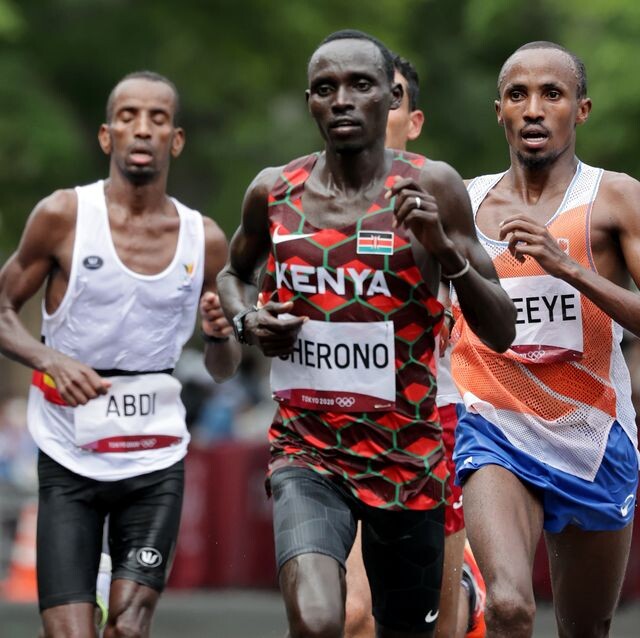
In July 2022, Cherono was provisionally suspended after testing positive for trimetazidine, a substance primarily used to treat angina and other heart-related conditions.
This medication is known to optimize the heart's use of oxygen, potentially giving athletes an unfair advantage by enhancing their endurance levels.
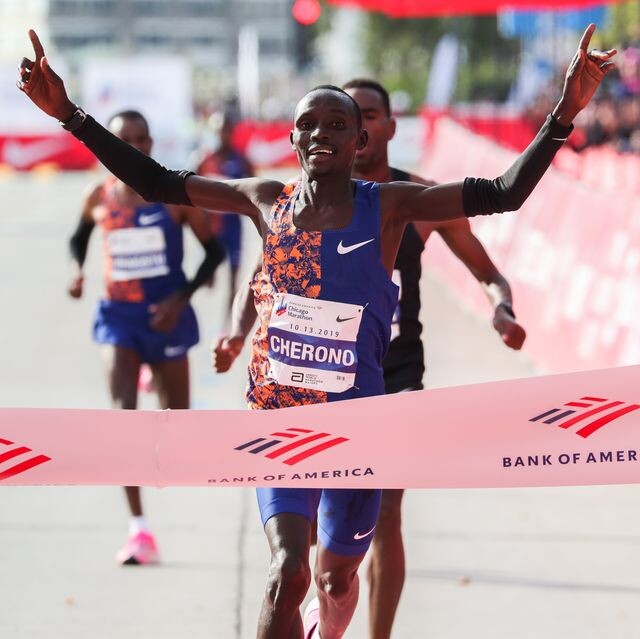
The initial findings placed Cherono in a precarious position, casting a shadow over his achievements, including his impressive fourth-place finish at the Tokyo Olympics and his victories in both the Boston and Chicago Marathons.
The latest charges brought forward by the AIU involve accusations of tampering with the doping control process.
The specifics of the tampering allegations have not been fully disclosed, but such charges typically involve attempts to obstruct or interfere with doping investigations.
Examples could range from manipulating test samples, intimidating witnesses, or providing false information to authorities.
This development adds a complex layer to Cherono's ongoing legal battles with the AIU.
If found guilty of tampering, he could face severe repercussions, including extended bans from competitive racing.
This would be a significant blow to his career, potentially ending his days as a top contender in world marathon events.
Cherono's legal team has yet to release a detailed response to these new allegations.
However, in previous statements, they have expressed their intent to fully cooperate with the AIU while maintaining Cherono's innocence in the matter of the initial doping charges.
The sports world has been closely watching Cherono's case, as it underscores the ongoing challenges within athletics regarding doping and the integrity of sportsmanship.
His case is particularly significant given his status as one of Kenya's most celebrated marathoners, whose record time of 2:03:04 at the 2020 Valencia Marathon highlighted his elite capabilities.
by Festus Chuma
Login to leave a comment
Suriname sprinter blames Gatorade for positive doping test
On Monday morning, Surinamese sprinter and current world U20 100m record holder Issam Asinga was issued a four-year doping ban by the Athletics Integrity Unit (AIU) after testing positive for the metabolites of GW1516 in an out-of-competition test on July 18, 2023. Asinga and his agent claimed the positive test resulted from ingesting Gatorade Recovery Gummies, which were given to him after he won the Gatorade U.S. Boys Track and Field Athlete of the Year award last July.
A few weeks later, at the South American Athletics Championships in São Paulo, Brazil, Asinga set a new U20 100m world record of 9.89 seconds, only to be provisionally suspended two weeks later, just before the start of the 2023 World Athletics Championships in Budapest.


GW1516 was originally developed to treat obesity and diabetes, but is not approved for human use, due to its carcinogenic effects. It is banned both in and out of competition and is not eligible for a Therapeutic Use Exemption (TUE). A USADA bulletin from 2019 states that GW1516, also known as cardarine or endurobol, has been found in some supplements, despite being illegal.
Asinga claimed he took gummies from Gatorade that were supposed to help with recovery. He said two containers of the gummies revealed the presence of the banned substance, but the AIU panel stated he did not show proof that the gummies were the source of the drug found in his sample.
According to the AIU, Asinga claimed he took the Gatorade gummies the week before the positive test, and that subsequent testing of two unsealed containers of Gatorade gummies, provided by the athlete, revealed the presence of GW1516 and GW1516 sulfoxide. “The Disciplinary Tribunal found that Asinga did not satisfy his burden of proof to establish that the Gatorade Recovery Gummies were the source of the GW1516 metabolites detected in his sample.”
In making its decision, the AIU Disciplinary Tribunal stated that the Gatorade recovery gummies provided in unsealed containers by the athlete for testing contained significantly more GW1516 on the outside than on the inside, which practically excludes any contamination by raw ingredients during the manufacturing process. They also noted that the gummies were batch-tested by the National Sanitation Foundation (NSF), and that a sealed jar of the Gatorade recovery gummies, from the same batch taken by Asinga, tested negative for GW1516.
The 19-year-old sprinter plans to appeal the ban, which would take the case to the Court of Arbitration for Sport (CAS) in Switzerland.
All of Asinga’s results from July 18 onward will be disqualified, including his two South American Championships gold medals in the 100m and 200m, as well as his world U20 100m record of 9.89 seconds.
by Running Magazine
Login to leave a comment
World 10km record holder Rhonex Kipruto handed six-year doping ban
Rhonex Kipruto is the latest Kenyan athlete to be disgraced over doping as he has been handed a six-year suspension with his big achievements quashed.
Kenya's Rhonex Kipruto has been banned for six years over a doping offence, adding to the grim statistics for the country.
Athletics Integrity Unit (AIU) handed the punishment to the 24-year-old on Wednesday, meaning he will lose his 10 kilometres road race world record and a World Championships bronze medal.
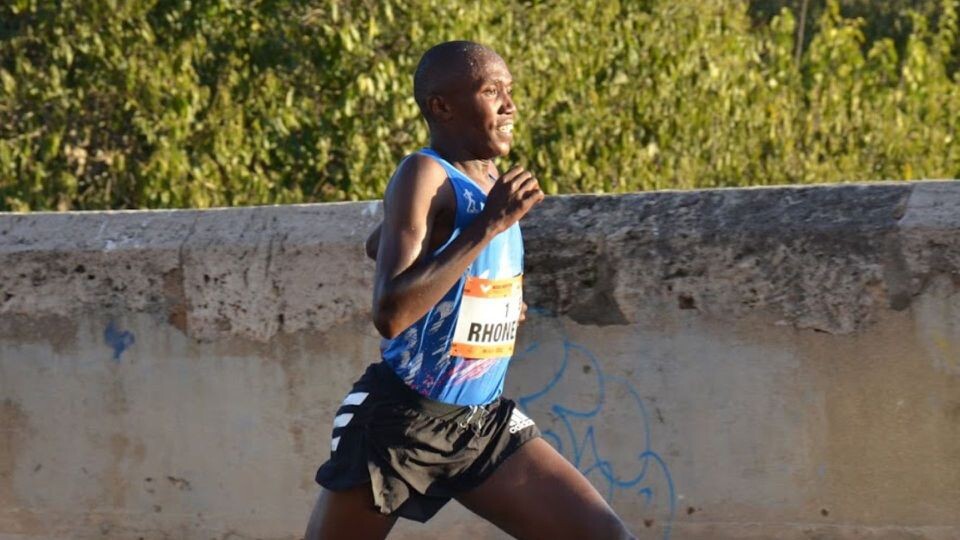
Kipruto, who won the 10,000 metres bronze in the 2019 World Championships in Doha, had been provisionally suspended for an anti-doping violation in May last year and is now banned until May 2029.
Kipruto broke the 10km road race world record in 2020 in Valencia and won the 10,000 metres at the 2019 Stockholm Diamond League, achievements that are now null and void.
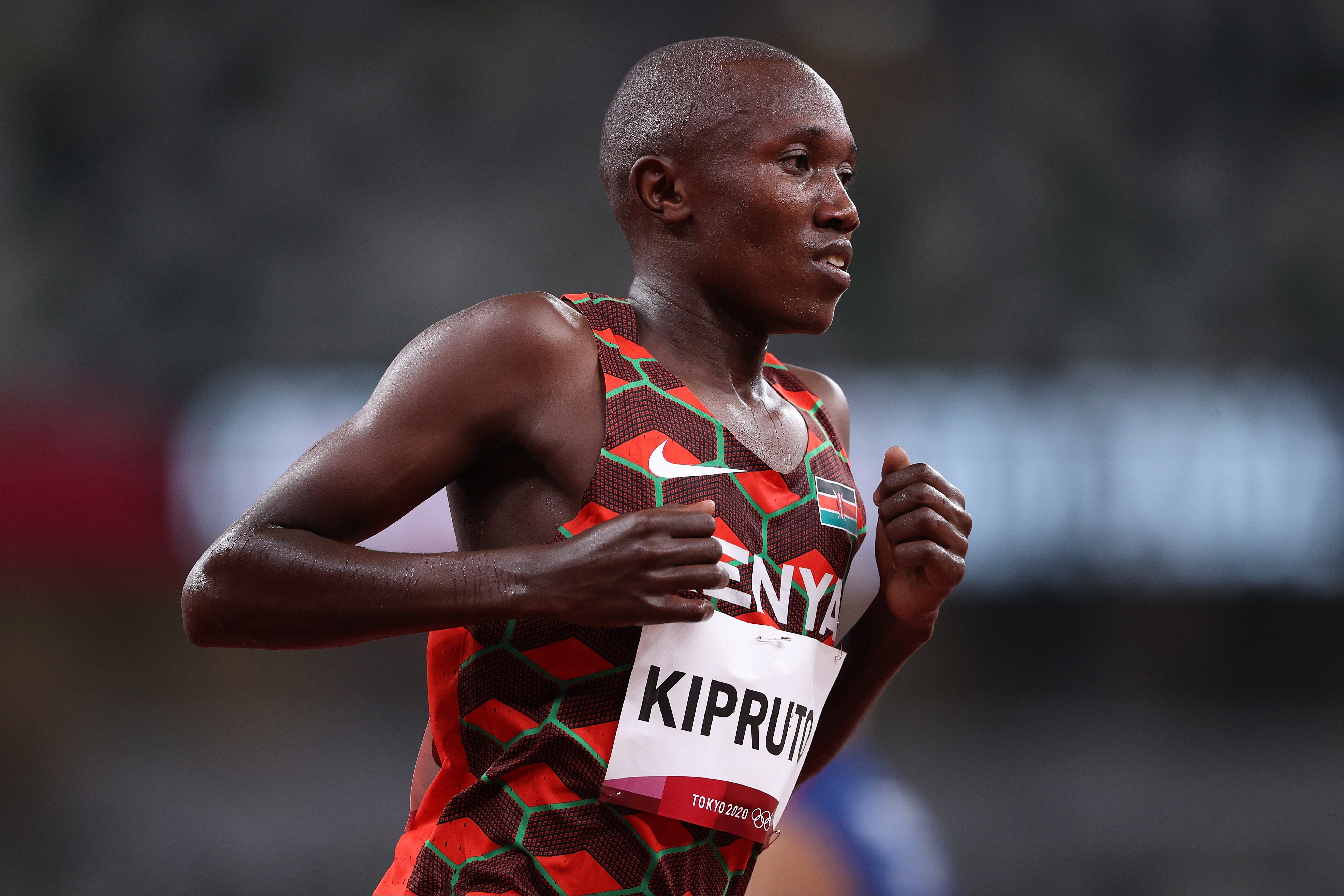
A Disciplinary Tribunal ruled that there were irregularities in Kipruto's Athlete Biological Passport (ABP), which shows discrepancies that can reveal the effects of doping.
"The Tribunal rejected Kipruto's defence, concluding the 'cause for the abnormalities in the ABP is more likely to be due to blood manipulation' such as through the use of recombinant human erythropoietin (rEPO)," AIU said its ruling, adding that there was no other plausible explanation for the abnormal values.
Kipruto had denied the Anti-Doping Rule Violation (ADRV) charge but the panel said it was "comfortably satisfied" that the Kenyan was involved in a "deliberate and sophisticated doping regime over a long period of time".
Kipruto can still appeal to the Court of Arbitration for Sport.
The disgraced long-distance athlete joins a long list of Kenyan runners who have been suspended over various doping offences.
His suspension comes just a day after the Anti-Doping Agency of Kenya suspended 33 sportsmen and women for failing doping tests.
by Joel Omotto
Login to leave a comment
ADAK suspends highest number of Kenyan athletes since January last year
The Anti-doping Agency of Kenya has unveiled the highest number of athletes banned for violating various doping rules.
The Anti-doping Agency of Kenya has banned 33 Kenyan athletes for violating the various doping rules as per the Athletics Integrity Unit.
The list includes 26 runners with the remaining coming from basketball, rugby and handball. In road running, one of the most shocking athletes to have made the list of shame is Joshua Belet, the 2023 TCS Amsterdam Marathon champion.

According to reports, this marks the highest number of suspended athletes since January last year, when Kenya was on the verge of being banned by World Athletics. However, it is a move that was anticipated since there has been increased testing.
Belet, a 26-year-old long distance runner, has been suspended for the presence of Anabolic Androgenic Steroids, Testosterone, Adiol, Pregnanediol, Androsterone and Etiocholanolone. Belet was a promising talent who even made his national team debut at the World Championships in Budapest, Hungary but did not finish the race.
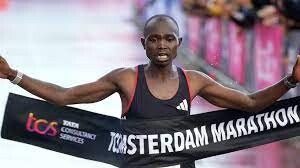
Dorcas Kimeli has also been suspended and she was also a promising athlete who had represented Kenya in a couple of events including the 2020 World Half Marathon championships where she finished 11th. As reported by Nation Sport, Jepchumba has been suspended for tampering with any part of the doping control.
Meanwhile, upcoming sprinters Duke Osoro and Joan Jeruto have also been added to the list of shame with the 2012 World Under-20 5000m champion David Bett also making the list.
Brian Wahinya, a former Kenya Sevens player has also found himself in hot soup alongside fellow players Charlton Mokua and Zeden Lutomia. The trio has been suspended for the presence of Cannabinoids, linked to cannabis sativa.
The basketball players who have gotten themselves in the list of shame include Alex Ramazani, Albert Onyango and James Mwangi Maina.
by Abigael Wuafula
Login to leave a comment
Former Milano Marathon champion provisionally suspended by AIU for whereabout failures
The 2019 Abu Dhabi Marathon champion has gotten himself in bad books with the Athletics Integrity Unit following his recent charge.
The 2019 Abu Dhabi Marathon champion Reuben Kipyego has been provisionally suspended by the Athletics Integrity Unit for whereabout failures.
The AIU, in an announcement on Tuesday, June 4, noted that Kipyego has been suspended temporarily from participating in any competition or activity in athletics prior to a final decision at a hearing conducted under the World Athletics Anti-Doping Rules or the Integrity Code of Conduct.
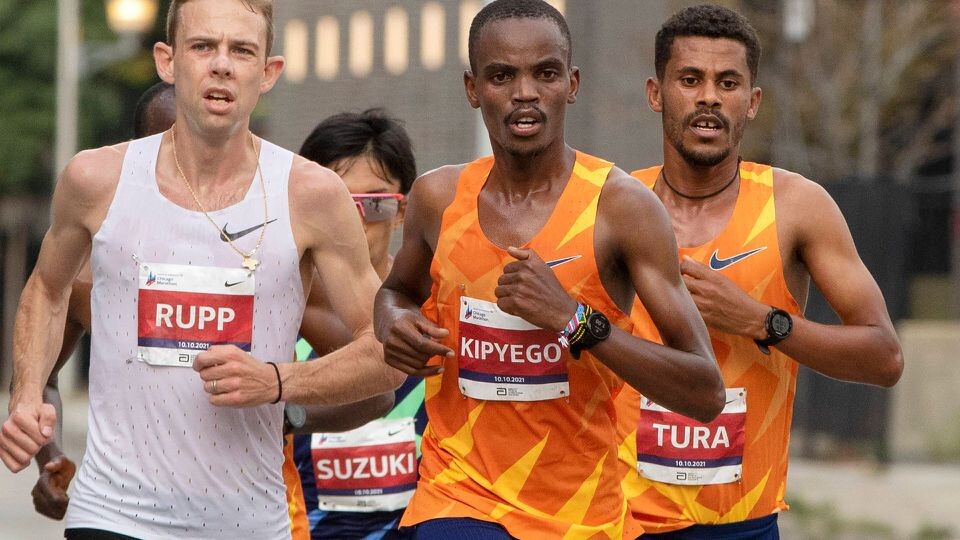
Kipyego’s final race was the NN Rotterdam Marathon in 2022 where he finished an impressive third. He has also competed in three races in 2021 where he struck with a win at the Milano Marathon and later finished eighth at the Chicago Marathon before finishing second at the Abu Dhabi Marathon.
He has been competing sparingly and launched his career with the marathon, hence no record of him competing on the track. He started off his career with the full marathon at the 2019 Maratón de Buenos Aires Ñandú where he finished second.
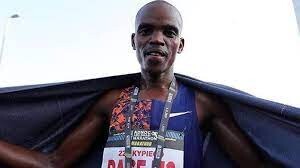
Meanwhile, for a provisional suspension, the AIU further noted that some of the cases remain under investigation, while others are the subject of a notice of charge and so will also appear on the list of Pending First Instance cases.
AIU further noted that a provisional suspension is mandatory under the World Athletics Anti-Doping Rules following an adverse analytical finding for any non-specified substance on the Prohibited List.
A Provisional Suspension may be imposed in other doping cases depending on the nature and circumstances of the case in question. It is imposed in a non-doping case does not in any way abrogate the presumption of innocence and it is not an early determination of guilt. Rather, it is an order made on a precautionary basis to safeguard the interests of the sport.
by Abigael Wuafula
Login to leave a comment
Cross-country guru Lucy Mawia slapped with a three-year doping ban
Lucy Mawia has been banned for three years by the Athletics Integrity Unity for the presence of three banned substances in her body.
The 2022 Belgrade Half Marathon Lucy Mawia has been slapped with a three-year ban by the Athletics Integrity Unit for an anti-doping rule violation.
Mawia, popularly known for her cross-country prowess, will be eligible to compete once again from March 27, 2027. Her results from March 10 this year, will also be disqualified.
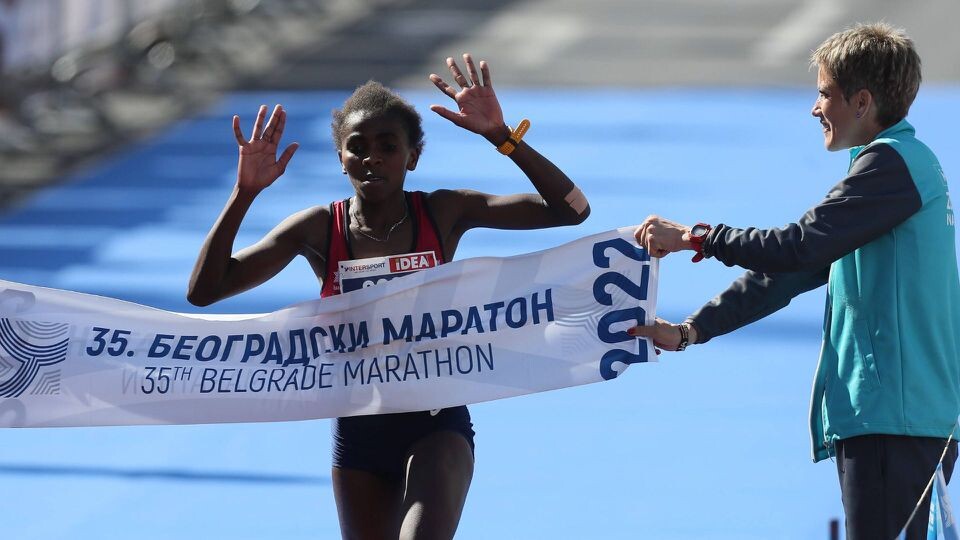
As per World Athletics, athletes representing a foreign Member Federation or other Areas are regarded as out of competition participants (OC).
Earlier this year, the Italian Anti-doping tribunal suspended Mawia following a violation of an anti-doping rule.

As per the Italian anti-doping agency, Mawia’s sample was found positive for the presence of Efedrina, Oxycodone, and its metabolite Oxymorphone. The substance is an active metabolite of oxycodone produced via CYP2D6-mediated metabolism.
Her career was taking shape and in 2022, she won the 2022 World Cross Country Tour. In 2022, Mawia dominated the races at the start of the tour, winning in Bydgoszcz in October and in Soria and Alcobendas in November.
Mawia kicked off the 2023 cross-country campaign with a third-place finish in Amorebieta and sixth place in Atapuerca. The 2023 15K Nocturna Valencia Banco Mediolanum champion was also third in Atapuerca in November and second in San Vittore Olona in January in 2023.
This means her results from the 5km Route de Lille and the Italian Cross-Country Championships have been disqualified. In France, she finished fifth in the road race before clocking 27:50 to cross the finish line in her cross-country race in Italy, competing as an out of competition participant.
by Abigael Wuafula
Login to leave a comment
Former Geneva marathon champion slapped with 7-year doping-ban for repeat offense
The Kenyan road runner was nabbed with prohibited substances in her system and will pay dearly for her second infraction.
The Athletics Integrity Unit has slapped Josephine Chepkoech with a seven-year ban for the the Presence/Use of a Prohibited Substance (Testosterone) from May 7, 2024.
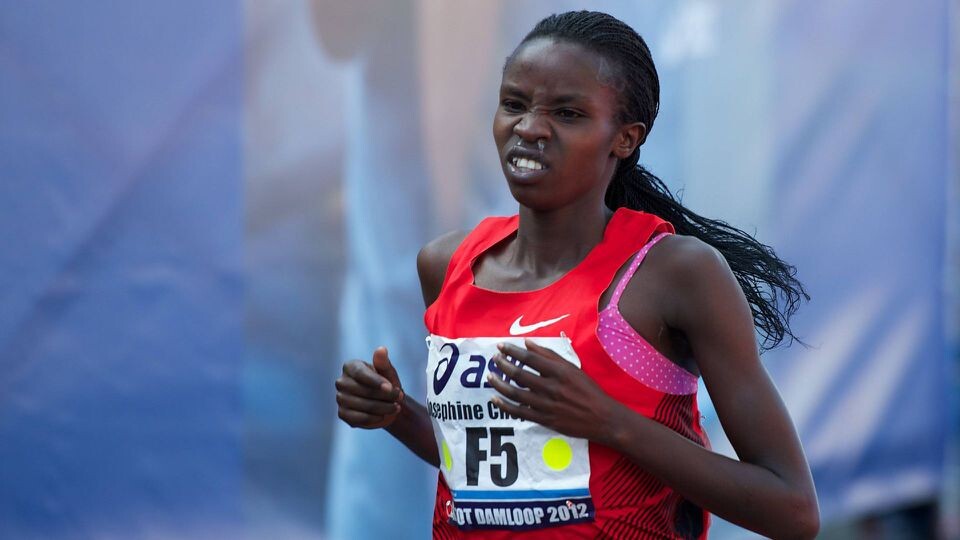
Chepkoech’s results from February 18 this year have also been disqualified. The 2019 Geneva Marathon champion was provisionally suspended by the AIU on May 9, 2024, being served with a Notice of Allegation for violating Article 2.1 and Article 2.2 of its anti-doping regulations.
The AIU explained that on February 18, Chepkoech provided a urine sample during her competition at the Seville Marathon where she finished second in the race and after her urine was tested, it was found to have substances banned by the World Athletics Anti-doping Agency.
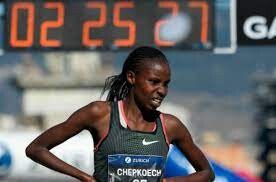
It was further noted that the athlete was not exempted from the use of the substance, popularly known as the Therapeutic Use Exemption (TUE).
The athlete accepted the ruling but this was the second time she had found herself on the wrong side of the law, having violated the anti-doping rules. She had previously served a period of ineligibility for two years from 2015 to 2017.
The athlete was required to serve a ban of eight years but after she accepted the ruling and responded in good time, she will serve the ban for seven years.
Meanwhile, Chepkoech made her marathon debut in 2018 at the Nairobi Marathon, dominating the women's race and winning in a time of 2:33:11. Last season, she competed in the Chengdu Marathon and ended up finishing fifth.
She has enjoyed a great marathon running career after her debut, where she finished second in both the 2019 Sydney Marathon and Zurich Marathon. In 2020, she finished fourth in the Zurich Marathon before her two marathons in 2023 and 2024.
by Abigael Wuafula
Login to leave a comment
Former Boston Marathon champion finally receives prize money from a stranger after 10-year wait
The 2014 Boston Marathon winner Buzunesh Deba has finally her received prize money from a stranger after waiting for 10 years following Kenyan Rita Jeptoo's doping ban.
At the 2014 Boston Marathon, Ethiopian distance runner Buzunesh Deba gave her all and settled for second place with Rita Jeptoo wining the race in style.
However, in 2016, Jeptoo, the winner of the marathon, was disqualified by the Athletics Integrity Unit over a doping offense and Deba was now crowned champion but without being paid the prize money she deserved.
She has waited for 10 years, patiently, to receive her money and it was finally given to her, not by the race organizers, but by a stranger.

The race organizers insisted that they gave Jeptoo all the money, the $75,000 for winning the race and an extra $25,000 for setting the course record, an amount they never got back from her following her doping offense.
"She took my chance. I lose so many things. I thought everything is to change after I hear the news, but nothing,” Deba lamented last month, as quoted by CBS News.
However, someone, whom she claims to not know, decided to heal her wound and grant her the prize money. As reported by CBS News, Doug Guyer, a Boston College graduate and a businessman in the Philadelphia area, read about Deba's story in the Wall Street Journal and decided to offer her the money.
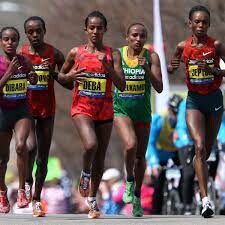
The Boston Marathon fan decided he would pay her out of his own pocket and he actually did it by sending Deba a cheque for $75,000 as he also considered paying her the remaining $25,000.
Following the news, the Boston Athletic Association explained that they are still in the process of recovering the prize money from Jeptoo.
In a statement, they said: “The Boston Athletic Association stands for clean sport and fair competition. Following the ruling by the Court of Arbitration for Sport, the B.A.A. began pursuit of reclaiming prize money awards from Rita Jeptoo.
“As the matter is still ongoing, we are unable to comment further at this time. We are in the process of attempting to recover the prize money awarded to Ms Jeptoo, so that it can be repaid to Ms Deba.
“While we believe that Ms Deba is due the prize money as she is the rightful winner of the 2014 women's race, there are policies held by World Athletics and supported by World Marathon Majors that we, along with the other members of the organization, follow.
“The B.A.A is still pursuing Ms Jeptoo to recover the prize money for Ms Deba, which the B.A.A. believes would be a just and fair result for her and all runners who follow the rules. As this matter is still ongoing, we are not able to comment further at this time.”
by Abigael Wuafula
Login to leave a comment
Boston Marathon
Among the nation’s oldest athletic clubs, the B.A.A. was established in 1887, and, in 1896, more than half of the U.S. Olympic Team at the first modern games was composed of B.A.A. club members. The Olympic Games provided the inspiration for the first Boston Marathon, which culminated the B.A.A. Games on April 19, 1897. John J. McDermott emerged from a...
more...Rodgers Kwemoi's titles from 2016 stripped as he receives six-year doping ban
Rodgers Kwemoi has been slapped with a six-year ban by the Athletics Integrity Unit with all his titles from 2016 stripped.
Rodgers Kwemoi has been slapped with a six-year ban for the use of a Prohibited Substance/Method (ABP) with his results from July 18, 2016 disqualified.
Kwemoi was an upcoming road runner and had represented Kenya in several events including the World Championships and Commonwealth Games.
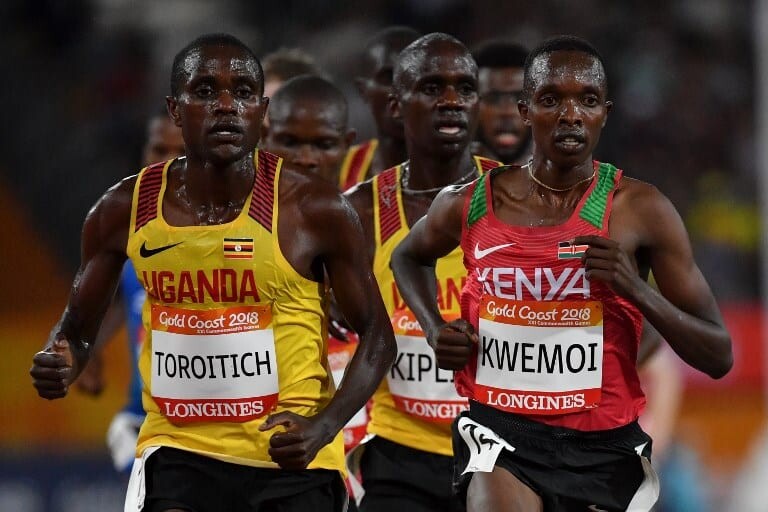
The 26-year-old will now be stripped off his Istanbul Half Marathon title, his 2018 Commonwealth Games bronze medal and his junior world title from 2016 in the 10,000m.
Meanwhile, the AIU reported that in May last year, they wrote to Kwemoi, notifying him of the abnormalities detected in his ABP profile and that they were considering taking charges against him. He was, therefore, invited to explain himself and the abnormalities but he did not respond within the given timeline.
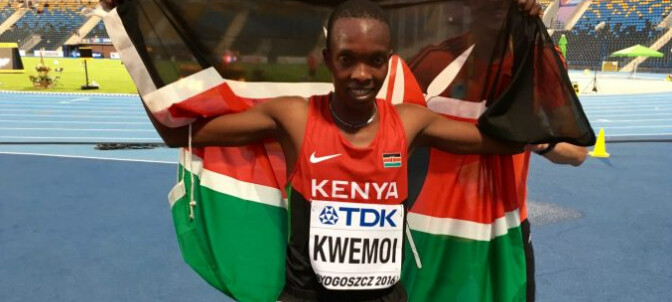
Kwemoi then responded later, claiming that the reason for the issue was a result of the natural variations due to the psychological responses influenced by the frequent changes in climate, altitude, and other environmental factors. However, his explanation was rejected by the panel.
However, Kwemoi still insisted that the explanation the AIU gave was not sufficient to conclude that he committed an anti-doping rule violation.
The Japan-based runner’s samples, according to the AIU, posted inconsistencies was before the World Under-20 Championships in 2016 and the AIU made the ruling for the ban to start from then and his results since then be disqualified.
by Abigael Wuafula
Login to leave a comment
Kenyan Josephine Chepkoech provisionally suspended by the Athletics Integrity Unit
A Kenyan marathon runner has been provisionally suspended by the Athletics Integrity Unit over alleged use of prohibited substances.
The Athletics Integrity Unit (AIU) has provisionally suspended Kenyan marathoner Josephine Chepkoech following allegations of doping involving the prohibited substance, testosterone.
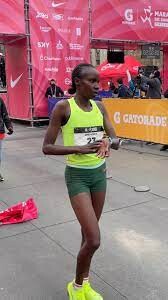
In a statement, the AIU said Chepkoech had been served with a Notice of Allegation for violating Article 2.1 and Article 2.2 of its anti-doping regulations.
"The AIU has provisionally suspended Josephine Chepkoech (Kenya) for Presence (Testosterone Metabolites)/Use of a Prohibited Substance (Testosterone)," the AIU confirmed.

Chepkoech, 35, set her personal best marathon time of 2:22:38 in February at the Seville Marathon.
She had made her marathon debut in 2018 at the Nairobi Marathon, dominating the women's race with a winning time of 2:33:11.
Chepkoech's provisional suspension means she cannot participate in any competition until a final decision is reached which could result in an acquittal or a formal ban.
This is part of the AIU's crackdown on prohibited substances in athletics which has seen a rising number of Kenyan athletes penalized.
Notably, former youth world champion Jackline Wambui was also provisionally suspended in February due to a violation involving 19-Norandrosterone and 19-Noretiocholanolone which are also prohibited substances.
She faces a two-year ban pending a Court of Arbitration for Sport (CAS) appeal.
Wambui's achievements include winning gold at the 2017 under-18 world championships and becoming the 2019 African junior champion.
by Festus Chuma
Login to leave a comment
Ethiopian Olympic steeplechase finalist banned five years for EPO
Zerfe Wondemagegn, 21, will miss the next two Olympic Games due to a positive EPO test.
Zerfe Wondemagegn, an Ethiopian runner who reached the women’s 3,000m steeplechase final at the Tokyo Olympics and narrowly missed the world championship podium last year in Budapest, has been banned for five years by the Athletics Integrity Unit (AIU) after testing positive for two banned substances.
The 21-year-old was provisionally suspended by the AIU last November after traces of testosterone and erythropoietin (EPO) were found in an out-of-competition sample. According to the AIU, it received emailed testimony from an Ethiopian doctor stating that Wondemagegn had been given EPO as medicine to treat severe anemia and a kidney infection, but it “remained satisfied” she had broken anti-doping rules. The organization added that it had received a signed admission from the athlete last week.
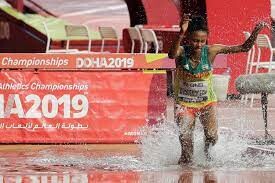
Wondemagegn finished eighth at the Tokyo Olympics and fourth at the 2023 World Athletics Championships in Budapest. Two of the three samples in her case were taken while she was in Hungary (at worlds), and her result will be disqualified. Her fourth-place finish in Budapest earned her USD $16,000 in prize money.
Her suspension will leave her out of the 2024 Paris Olympics and run through October 2028, meaning she will also miss the 2028 Los Angeles Olympics.
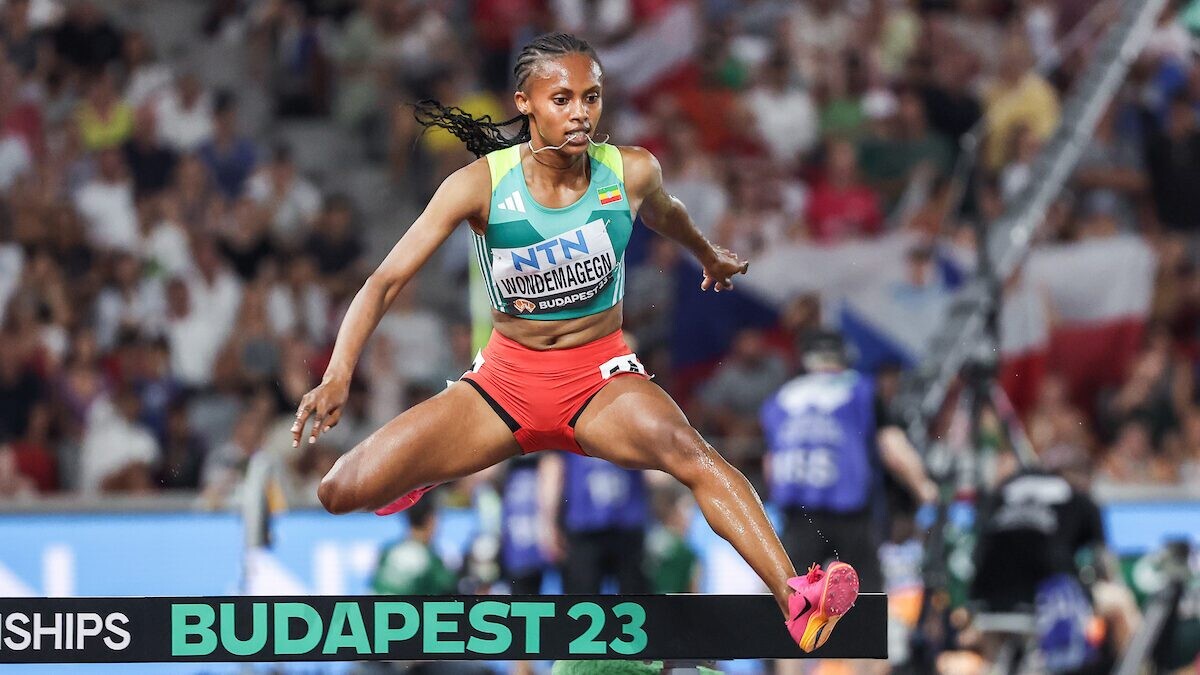
Wondemagegn’s case is the latest in a series of doping cases in the women’s steeplechase event. The 2022 world champion, Norah Jeruto of Kazakhstan (previously of Kenya), is facing a doping hearing in June, five weeks before the Paris Olympics. World Athletics is appealing against an earlier decision to clear the runner. Jeruto has argued that ulcers and COVID-19 explain her irregular blood test results.
Login to leave a comment
Jamaican athlete contemplates quitting sport following two-year doping ban
Jamaican runner Tiffany James-Rose has opened up on potentially quitting competitive athletics after she was slapped with a two-year ban by the Athletics Integrity Unit.
The 2016 World Under-20 champion Tiffany James-Rose, a Jamaican 400m runner, has been left in a state of dilemma as she thinks about her future in the sport.
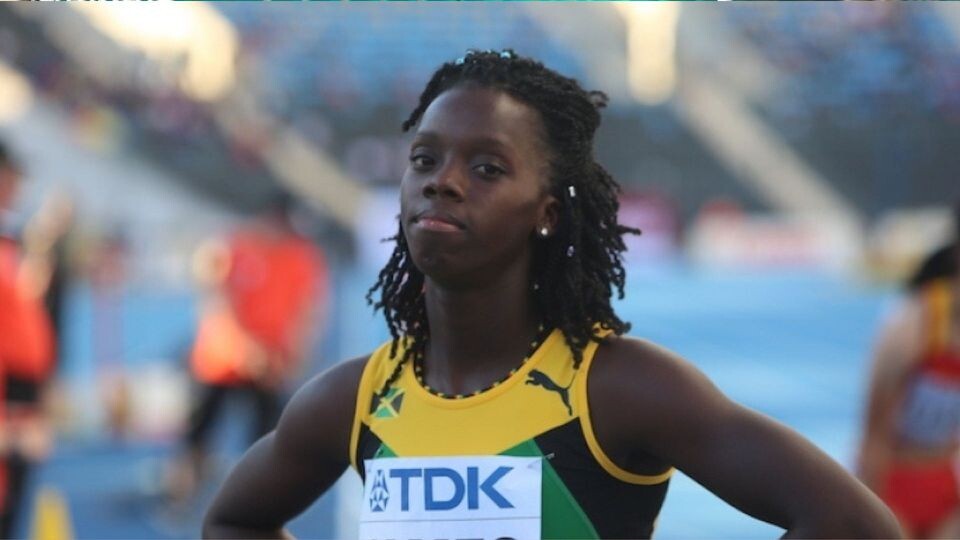
This comes after she was slapped with a two-year ban by the Athletics Integrity Unit (AIU) for a whereabouts violation with her ban commencing on November 2023 and will extend to November 2025.
The suspension came about after James-Rose missed out-of-competition tests within 12 months, leading to a violation of anti-doping regulations. As per SportsMax, the circumstances surrounding the missed tests are tied to her pregnancy and at the time James-Rose was four months pregnant when she missed two of her three tests.
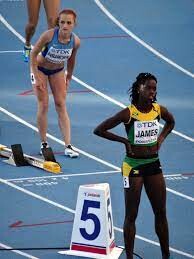
“I found myself in a situation where I had to be making trips to neighbouring states for emergency visits because of my pregnancy and, unfortunately, it happened on the two times when I was there," she told Sportsmax. TV.
“My husband’s father was here when they knocked on the door and I wasn’t here. It was like ‘Why did it have to happen on the two days that I did a morning visit and not on Sunday or something like that.”
James-Rose disclosed that she had difficulties with the immigration process as she sought to relocate to the United States.
Meanwhile, despite her love for track and field, James-Rose is enjoying motherhood and is uncertain about her future in competitive athletics.
"I think I will have to make that decision by the end of this season (2024) because even though I can't compete, I want to get my mind and body ready," she added.
“I can’t really say for sure. I am extremely happy. I am loving it (motherhood). Track and field is my first love but I think I have found true love and right now I am just living in the moment of motherhood and just enjoying the moments with my son and my husband for now.
“I mean, the suspension ends in November of 2025 so time will tell, I don’t know for sure what my decision will be. It’s (track and field) something I would love my son to grow and see me doing so it’s definitely a decision to be made,” she said.
by Abigael Wafula
Login to leave a comment
Kennedy Kiprop Cheboror slapped with a two-year ban by AIU
Kennedy Kiprop Cheboror is the latest Kenyan to be added to the list of shame after violating an anti-doping rule.
Kennedy Kiprop Cheboror is the latest addition to the doping list of shame after being slapped with a two-year ban by the Athletics Integrity Unit.
Earlier this year, the 33-year-old was provisionally suspended for whereabouts failures and after enough investigation, the athlete has now been banned for two years.
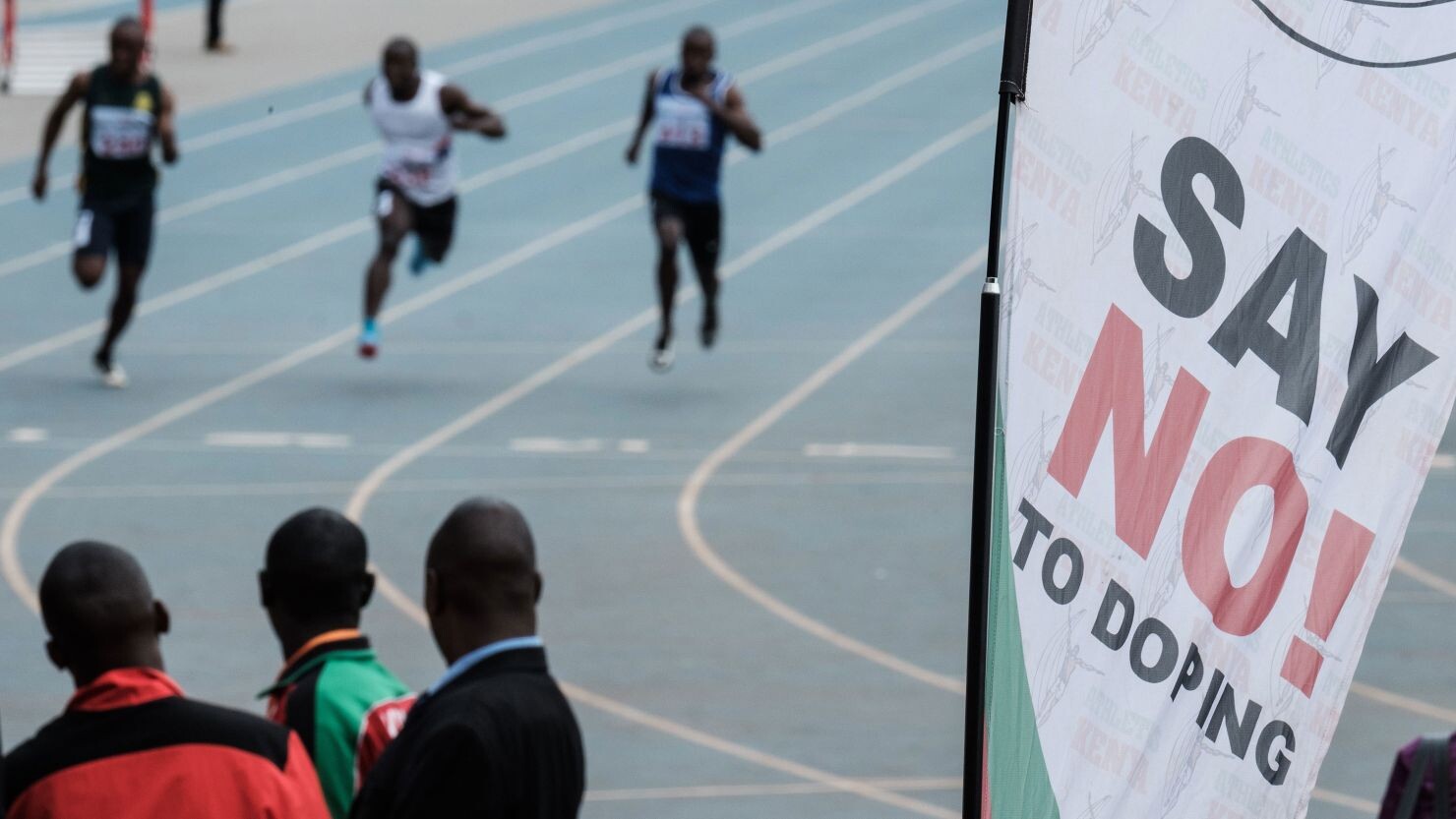
As per the AIU, all his results from December 27 have been disqualified after he missed three tests in the twelve-month period beginning on November 6, 2023. He first missed a test and a filing failure on November 6 last year.
Cheboror then missed other two tests on November 28 and December 27. As per the AIU, the athlete’s whereabouts information stated that he would be at an address in Kapsabet, Kenya on the first missed test during his specified 60-minute time slot between 19:00-20:00 (the “Camp Address”).

“In summary, a Doping Control Officer (“DCO”) and a Doping Control Assistant (“DCA”) arrived at the Camp Address on 6 November 2023 at 19:00.
“The DCO and the DCA met a man who informed them that the Athlete was in his off-season at his home (and consequently not at the Camp Address where he resided during the training season).
“The man called the Athlete and informed the DCO and the DCA that the Athlete had said that he was in Eldoret and would not be able to make it to the Camp Address within the 60-minute time slot.
“Therefore, on 9 November 2023, the AIU wrote to the Athlete requesting his explanation for an apparent Missed Test/Filing Failure which occurred on 6 November 2023 by no later than 23 November 2023,” AIU’s statement read in part.
by Abigael Wuafula
Login to leave a comment
Ben Johnson thinks doping is worse than 30 years ago
Jamaican-born Canadian sprinter Ben Johnson made his name in track and field by winning the 100m dash at the 1988 Olympics in Seoul, which was dubbed the dirtiest race in history. Days after the race, Johnson’s urine sample came back positive for the steroid stanozolol, and he was stripped of his Olympic gold and issued a three-year ban. Though Johnson competed during a dirty time in track and field, the former world champion thinks the sport today is dirtier than it was 30 years ago.
In a March 27 interview with Radio Jamaica, Johnson said he believes not much has changed from his era to now, and that he is not surprised to see so many doping violations in athletics. “If it weren’t for the more powerful nations being beaten at their own game, doping wouldn’t be a big issue,” said Johnson.
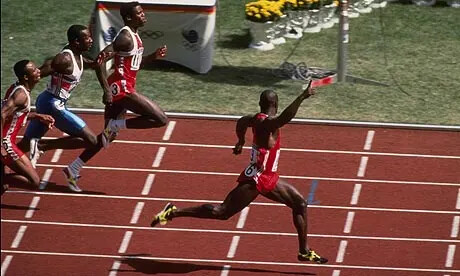
Johnson, now 62, was banned for life from athletics by the IAAF (now World Athletics) in 1993 after another positive doping test, this time for excess testosterone. Johnson believes countries like Jamaica are punching above their weight with its sprint rivalry against the U.S. “In my days, the Americans did not like someone from a small island beating them,” he said. “The opportunity to do well and make a living in track and field is hard. Americans blame others, but they also dope themselves.”
The 1988 Olympic 100m final was dubbed the dirtiest race ever, as six of the eight finalists had a positive doping test at some point in their careers. The bronze medallist, American Calvin Smith, was the only sprinter among the top five who never had a positive test.
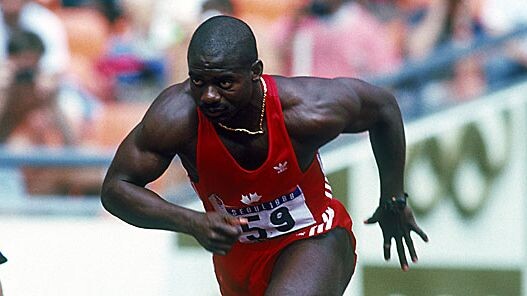
Johnson went on to say that he does not follow track and field as much as he used to, but still sees the times athletes are running on social media and sanctions posted by the Athletics Integrity Unit (AIU).
by Marley Dickinson
Login to leave a comment
Ethiopia’s Alemtsehay Asefa suspended by AIU
Ethiopia’s long distance runner, Alemtsehay Asefa has been provisionally suspended by Athletics Integrity Unit (AIU) for the whereabouts failures, which is a violation of the World Anti-doping Rules.
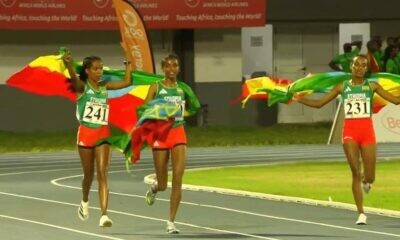
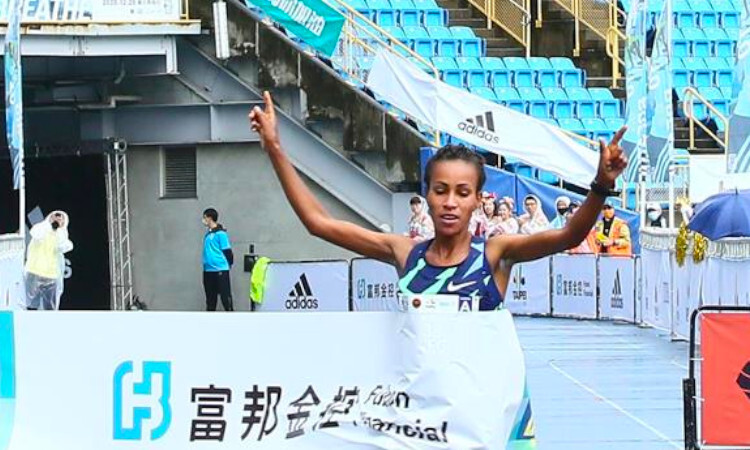
The 25 year-old who is the double Taipei Marathon champion has been issued with the Notice of Allegation.
by John Vaselyne
Login to leave a comment
Kenya's Winnie Jemutai issued with three-year ban for doping offence
Winnie Jemutai is the latest Kenyan athlete to join the list of shame after being provisionally suspended by the AIU for the Presence/Use of Prohibited Substance (Testosterone).
The Athletics Integrity Unit (AIU) has banned Kenyan middle-distance runner Winnie Jemutai Boinett for three years due to the presence and use of a prohibited substance, testosterone.
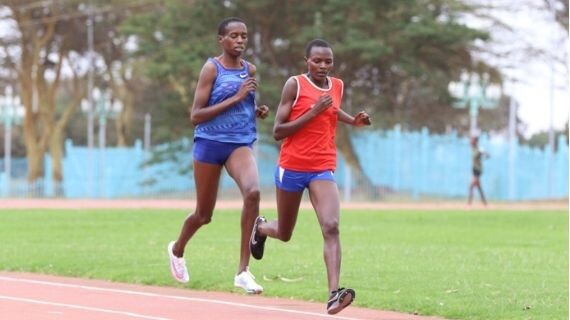
This decision follows the disqualification of Boinett's results since November 12, 2023 when she was provisionally suspended.
Boinett's suspension comes after a urine sample she provided in-competition at the XLI Cross Internacional de Italica in Seville, Spain, on November 12, 2023, tested positive for testosterone, a substance banned under the World Anti-Doping Agency's (WADA) prohibited list.
Following the initial findings, Boinett admitted to the anti-doping rule violations and accepted the consequences, including the forfeiture of any medals, titles, points, prize money, and other prizes won since the date of the provisional suspension.
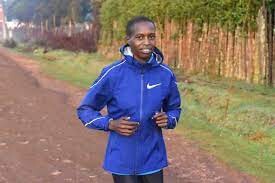
In a letter to the AIU dated March 5, 2024, Boinett stated, "I had injury. I went to different hospitals for treatment, I don't have exact documents showing exact medications that I went through I honestly accept that I break the anti-doping rules and am ready to face the consequences thank you."
This early admission and acceptance of sanction led to a one-year reduction in the originally asserted period of ineligibility, pursuant to Rule 10.8.1, based on Boinett's cooperation and acknowledgment of the violations.
Furthermore, the World Anti-Doping Agency (WADA) and the Anti-Doping Agency of Kenya (ADAK) have been granted the right to appeal against this decision to the Court of Arbitration for Sport in Lausanne, Switzerland, should they find grounds to do so.
This provision ensures that all parties involved have a fair opportunity to present their case and seek justice through the appropriate legal channels.
by Festus Chuma
Login to leave a comment
Jakob Ingebrigtsen thinks doping is worse now than 10 years ago
Norway’s gold drought at the World Indoor Championships hit 29 years last weekend in Glasgow, with the country’s star middle-distance runner, Jakob Ingebrigtsen, sidelined by injury. In a recent interview with the Times, Ingebrigtsen did not hold back, slamming doping in athletics, saying it’s worse now than a decade ago.
“I think doping is worse now than 10 years ago,” Ingebrigtsen told the Times. “It is difficult to prove that, but it’s what I feel. The problem now is that we see fewer positive tests, and that really concerns me; it is a sign that people are getting smarter and finding better ways to evade detection, or perhaps the tests are not detecting enough.”
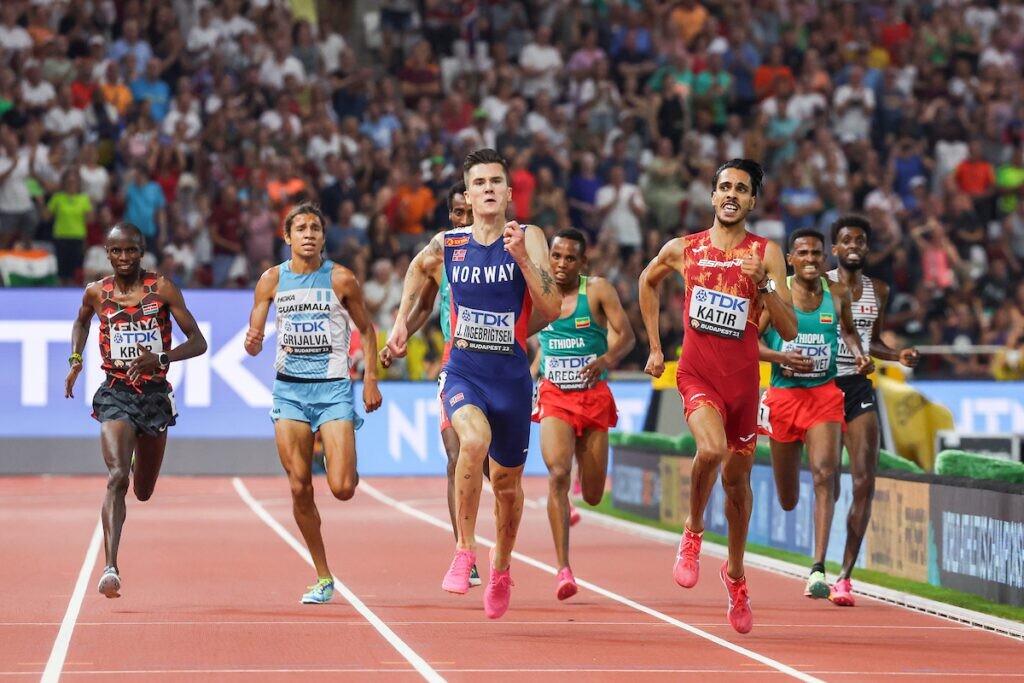
The Olympic 1,500m champion went on to say that not enough people are getting caught by regular testing, and the only way “cheats” are detected is through whereabouts (three missed doping tests in 12 months). “If you know what you’re doing, that is a genius way of cheating,” he says.
One thing that is different than 10 years ago is the number of athletes tested. World Athletics president Sebastian Coe introduced the Athletics Integrity Unit (AIU) in 2017, a crucial governing body dedicated to safeguarding the integrity of athletics. Each year, World Athletics spends an estimated $8,000,000 putting systems in place to tackle doping.
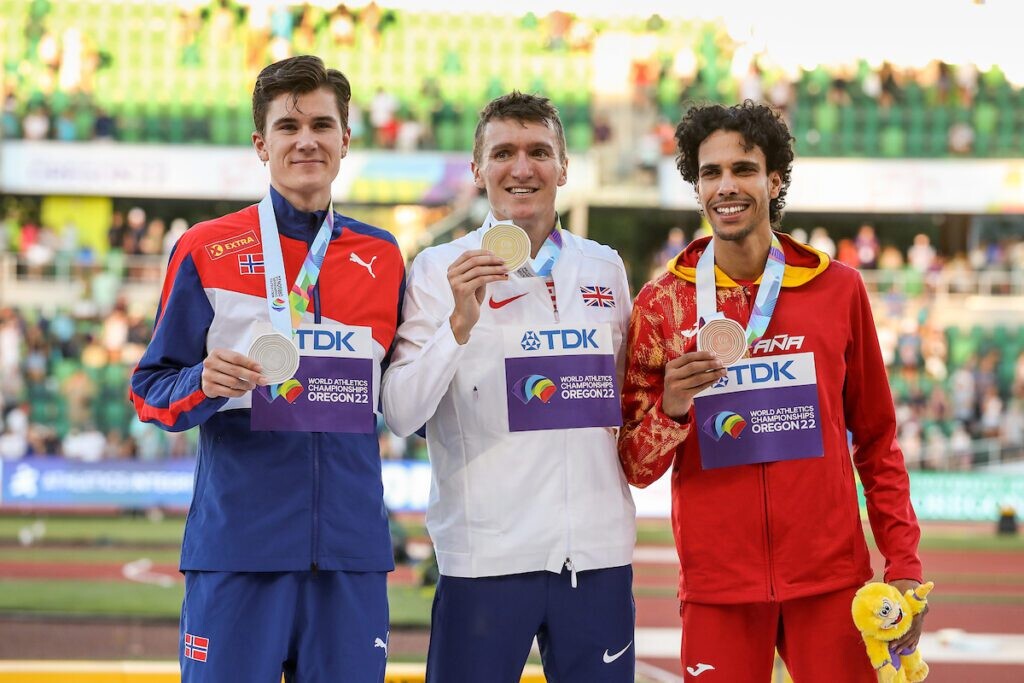
Ingebrigtsen voiced his satisfaction in beating suspected dopers, like two-time world championship medalist Mohamed Katir, who was given a two-year ban on whereabouts in February. “It’s the ultimate destruction,” he said to the Times. “It’s more embarrassing for them—even when they have the audacity to cheat, and they are not doing it right.”
The 23-year-old has yet to race in the 2024 season, as he continues to recover from an Achilles injury he suffered last fall. He expects to make his debut on the track in late May and round into form to compete at the 2024 European Championships in Rome in June.
by Marley Dickinson
Login to leave a comment
Purity Komen retires after being slapped with six-year ban by Athletics Integrity Unit
Purity Komen, 25, has decided to retire after the Athletics Integrity Unit slapped her with a six-year ban for the Presence of a Prohibited Substance (Norandrosterone), Evading Sample Collection.
After finding herself on the wrong side of the Athletics Integrity Unit, Purity Komen thought it would be wise to quit the sport and avoid the punishment but the AIU still gave a dose of her own medicine.
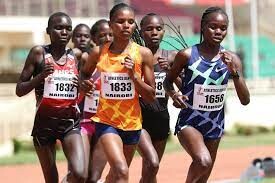
Komen who beat Ruth Chepng’etich during the 2023 Istanbul Half Marathon was slapped with a six-year ban by the AIU after a series of violations. Komen’s ban began on July 6, 2023 and she was punished for the Presence of a Prohibited Substance (Norandrosterone), Evading Sample Collection.
Norandrosterone is a Prohibited Substance under the WADA 2022 Prohibited List under the category S1.1 Anabolic Androgenic Steroids. It is a NonSpecified Substance prohibited at all times.

On May 12, 2023, A Doping Control Officer ( DCO) and a Blood Collection Officer arrived in Iten to test Komen out-of-competition but she was nowhere to be found.
After communicating with the two personnel and giving them wrong directions, Komen switched off her phone and the officers could not trace. She later reached out to the AIU saying: “Thank you I got the email. I read everything and I understood all the information.
“I would like to request for more 14 days, since I had prolonged back injury I seek medication from different hospitals. Thus, I need to provide accurate information about my medication thank you.”
On July 13 last year, the AIU granted the Athlete an extension until July 24 to provide her explanation for the Adverse Analytical Finding. However, Komen failed to submit any explanation for the Adverse Analytical Finding by the extended deadline (or at all).
On November 13, the AIU wrote to Komen and granted her an extension until no later than November 20 to provide an explanation for the Adverse Analytical Finding and the potential violation of Rule 2.3 ADR.
On the same day, Komen wrote to the AIU via WhatsApp saying: “Thank you for your information, I accept I did a mistake unknowingly but am sorry, am no longer interested in running career.”
After that, Komen failed to respond or to return the admission of anti-doping rule violations and acceptance of consequences form signed by February 28, 2024.
by Abigael Wuafula
Login to leave a comment
Nobert Kigen provisionally suspended by AIU for doping
Nobert Kigen is the latest Kenyan athlete to join the list of shame after being provisionally suspended by the AIU for the Presence/Use of Prohibited Substance (Testosterone).
The Athletics Integrity Unit has provisionally suspended Nobert Kigen for the Presence/Use of Prohibited Substance (Testosterone).
Kigen, the 2022 Prague Marathon champion, has not been very competitive in international races since 2018 when he competed in five races.
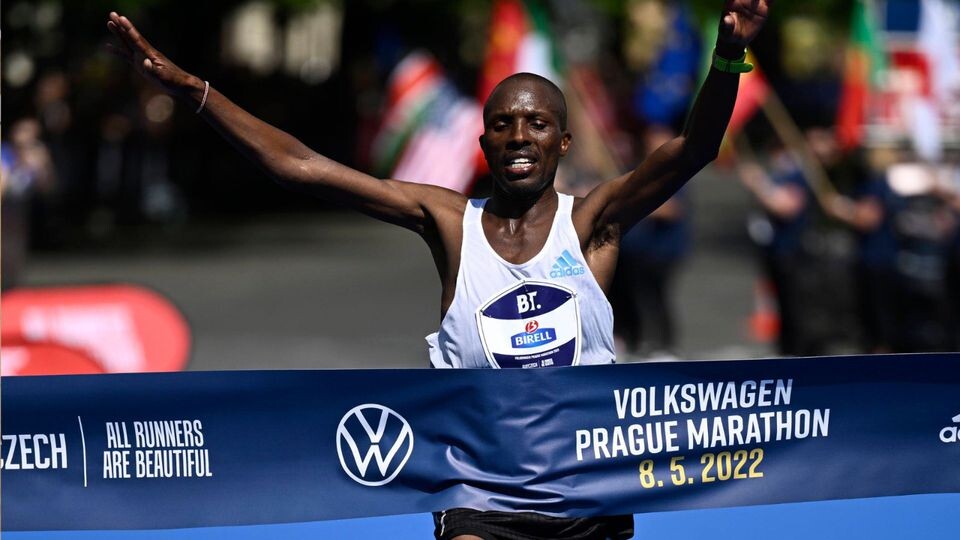
In 2019, he intended to compete at the Tokyo Marathon but he did not finish the race. He finished third at the 2021 Prague Marathon before proceeding to win the edition of the race in 2022.
The same year, he finished seventh at the Amsterdam Marathon and then finished fourth at the Bangsaen Half Marathon in 2023. He opened his 2024 season with a 10th place finish at the Xiamen Marathon.
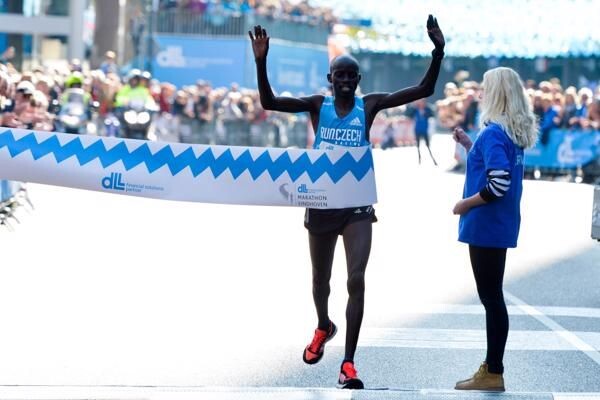
Meanwhile, the AIU has also Agnes Mueni Mutua for the Presence/Use of Prohibited Substances (Testosterone, Trimetazidine).
As per the AIU, a Provisional Suspension is when an Athlete or other Person is suspended temporarily from participating in any competition or activity in Athletics prior to a final decision at a hearing conducted under the World Athletics Anti-Doping Rules or the Integrity Code of Conduct. The Kenyan duo are the latest to join the list of shame as they await their verdict.
by Abigael Wafula
Login to leave a comment
Sarah Chepchirchir slapped with an eight-year ban by AIU
39-year-old runner Sarah Chepchirchir has been slapped with an eight-year ban for violating the anti-doping rules for the second time following her first ban which happened from 2019 to 2023.
The Athletics Integrity Unit has slapped Sarah Chepchirchir of Kenya with an eight-year ban for violating an anti-doping rule.
Chepchirchir was banned for the Presence/Use of a Prohibited Substance (Testosterone) and her results from November 5, 2023have been disqualified.
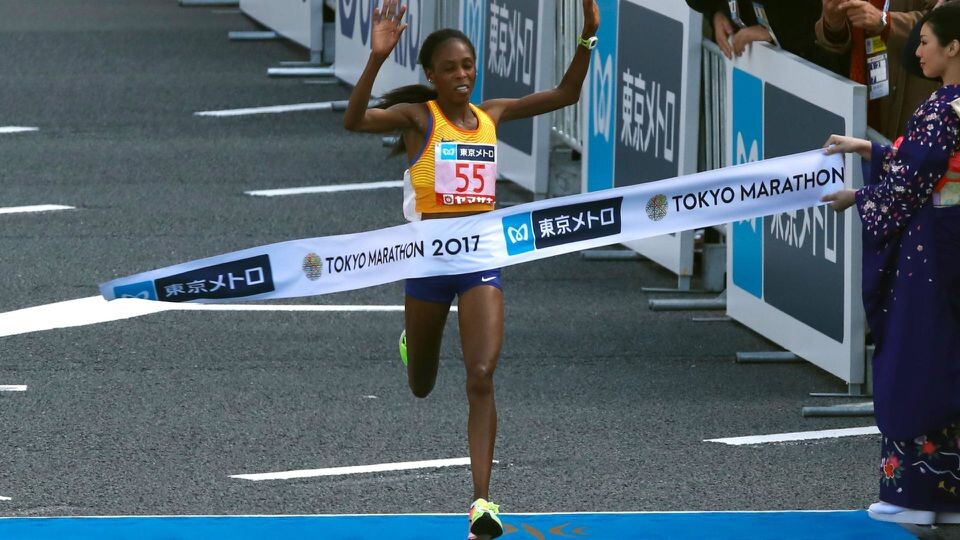
The AIU reported that the 39-year-old runner provided a urine sample on November 5, 2023, after competing at the Bangsaen42 Chonburi Marathon in Chonburi, Thailand.
An analysis of the sample by the World Anti-Doping Agency (“WADA”) accredited laboratory in Bangkok, Thailand (the “Laboratory”), revealed the presence of Metabolites of Testosterone consistent with exogenous origin (the “Adverse Analytical Finding”).

As per the AIU, testosterone is a Prohibited Substance under the WADA 2023 Prohibited List under the category S1.1 Anabolic Androgenic Steroids. It is a Non-Specified Substance prohibited at all times.
Meanwhile, the AIU further noted that the Chepchirchir previously served a period of Ineligibility of four (4) years from February 6, 2019 to February 5, 2023 for an Anti-Doping Rule Violation under Article 2.2 of the 2018 IAAF Rules (equivalent to Rule 2.2 of the Rules) (Use of a Prohibited Substance or a Prohibited Method) based on abnormal values in the hematological module of her Athlete Biological Passport.
“A period of Ineligibility of eight (8) years commencing on December 22, 2023, until December 21, 2031, and disqualification of the Athlete’s results on and since November 5, 2023, with all resulting consequences, including the forfeiture of any titles, awards, medals, points prize, and appearance money.
“The Athlete is deemed to have accepted the above Consequences and to have waived her right to have those Consequences determined by the Disciplinary Tribunal at a hearing,” the AIU said regarding her punishment.
by Abigael Wuafula
Login to leave a comment
Spanish Olympic medal suspended on whereabouts violations
On Wednesday, two-time world championship medalist and one of the top distance runners in the world, Mohamed Katir, was provisionally suspended for a year by the Athletics Integrity Unit (AIU) on whereabouts violations.
Katir was suspended for missing three doping tests in a 12-month window, which is a minimum one-year suspension per World Athletics anti-doping rules. This suspension will most likely leave the Spanish runner, who could otherwise contend for a medal in the 1,500m and 5,000m, out of the 2024 Paris Olympics. According to a statement from his agent in Spain’s Soy Corredor, Katir will appeal the suspension.
Katir is a two-time world championship medalist, winning silver in the men’s 5,000m in Budapest 2023, and bronze in the men’s 1,500m at Eugene in 2022. On both occasions, Katir was beaten by Norway’s Jakob Ingebrigtsen. Katir is also the European record holder over 5,000m, running 12:45.01 at the Monaco Diamond League–the 11th fastest time in history.

Katir last raced on Jan. 28, running 3:51.91 for the mile at the Meeting de l’Eure in France–the second fastest time in the world this year.
Katir had this to say in a statement (translated from Spanish):
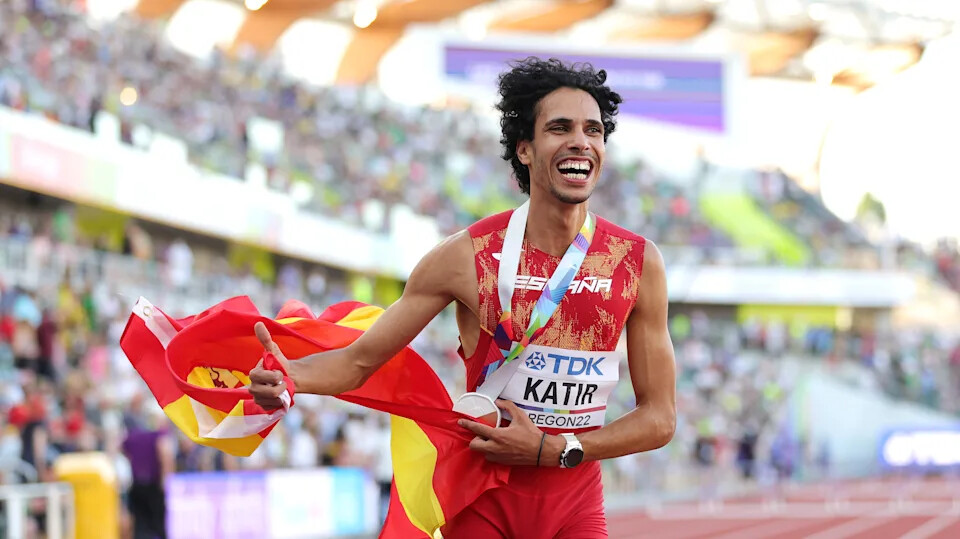
“Today, the Athletics Integrity Unit (AIU) has informed me of a provisional suspension due to what it considers to be a violation of the rules derived from three whereabouts failures in the last twelve months.”
“During the duration of the disciplinary proceedings, AIU has agreed to my provisional suspension. Since I do not agree with the above-mentioned decision taken by AIU, I am prepared to appeal against it to the appropriate authorities to be able to compete during the course of the proceedings.”
I do not consider that there is an infringement resulting from three whereabouts failures. In some of the whereabouts failures reported by AIU, I was available at the place, date and time provided by me. Over the last few months and years, I have been subjected to a large number of out-of-competition doping controls on both urine and blood samples, without the slightest problem on my part. I am going to proceed to defend myself in the appropriate instances, as it cannot be otherwise. For this reason, I request that the right to the presumption of my innocence be respected until the corresponding procedure is processed and concluded.”
His case will now be sent to the Court of Arbitration for Sport (CAS), the highest independent authority in international sport. During the appeal process, he is still eligible to compete, but he could end up facing a longer ban if he loses the appeal.
American 100m sprinter Christian Coleman was suspended under similar circumstances in 2019. Coleman appealed the whereabouts suspension, which was upheld by the CAS, leaving him out of the 2020 Tokyo Olympics.
by Marley Dickinson
Login to leave a comment
Paris 2024 Olympic Games
For this historic event, the City of Light is thinking big! Visitors will be able to watch events at top sporting venues in Paris and the Paris region, as well as at emblematic monuments in the capital visited by several millions of tourists each year. The promise of exceptional moments to experience in an exceptional setting! A great way to...
more...AIU ban James Karanja for four years
James Karanja, the athlete who competed and won a race during his provisional suspension, has been banned for four years by the AIU.
Kenyan long-distance runner James Karanja has been slapped with a four-year ban by the Athletics Integrity Unit for violating an anti-doping rule.
Karanja tested positive for the use of 9-norandrosterone, 19-noretiocholanolone, Nandrolone, and his results from September 10, 2023, have been disqualified.
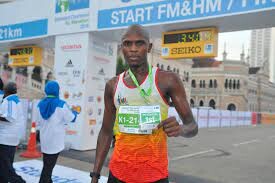
19-norandrosterone and 19-noretiocholanolone are Metabolites of 19-nortestosterone (Nandrolone) (and 19-norandrostenedione) which are Prohibited Substance under the WADA 2023 Prohibited List under the category S1.1 Anabolic Androgenic Steroids (AAS). They are non-specified substances prohibited at all times.
The AIU explained that the athlete failed to respond to any of their messages and therefore he will be banned for four years unless he reaches out and proves that the Anti-Doping Rule Violations were not intentional.
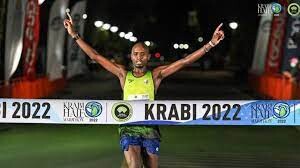
“The Athlete has not demonstrated that the Anti-Doping Rule Violations were not intentional. Therefore, the mandatory period of Ineligibility is a period of Ineligibility of four (4) years,” the AIU further noted.
Meanwhile, after being provisionally suspended last year, Karanja breached the AIU rules and went ahead to compete and win the Tropical Rainforest Run, a trail half-marathon in Tawau Hills, Malaysia.
The AIU makes it clear that during a provisional suspension, an athlete is not supposed to compete as they conduct their investigations.
According to the AIU, Karanja tested positive for the prohibited substance Norandrosterone during an in-competition test at the 2023 Kuching Marathon, where he finished fourth and was eligible for prize money.
by Abigael Wuafula
Login to leave a comment
Ugandan middle-distance runner Prisca Chesang given two-year ban for masking agent
On Friday, the Athletics Integrity Unit (AIU) issued a two-year ban for two-time U20 world championship medalist Prisca Chesang of Uganda. Chesang tested positive for the banned diuretic and masking agent furosemide.
Chesang’s positive test came out-of-competition, at a training camp in Kapchorwa, Uganda, on Sept. 14. She was in Kapchorwa preparing for the women’s mile at the 2023 World Road Running Championships in Riga, Latvia, where she placed 18th overall, on Oct. 1.
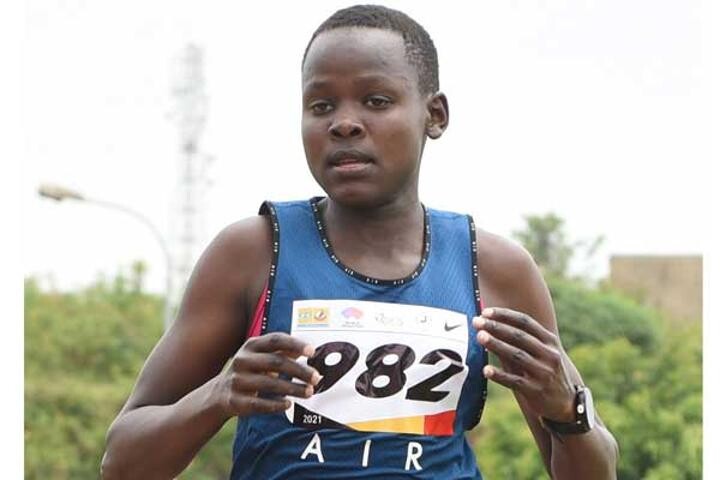
The 20-year-old is a two-time world U20 medalist in the women’s 5,000m, winning bronze at both the 2021 and 2022 U20 championships. According to the AIU, they did not discover any evidence that Chesang’s actions were intentional and therefore she was only given a two-year ban instead of four years. Chesang admitted to the Anti-Doping Rule Violation (ADRV); her result from the 2023 World Road Running Championships will be disqualified, and she will serve a two-year ban, until Dec. 6, 2025.
Furosemide is a diuretic, meaning it increases urine production, eliminating excess water and salt from the body. (It is also used for losing weight.) Furosemide also serves as a masking agent for other performance-enhancing substances that leave the body through urination, and therefore show up in a urine test. The drug has been prohibited by the World Anti-Doping Agency (WADA) for decades.
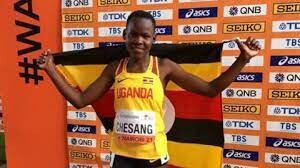
Chesang is one of Uganda’s top up-and-coming distance runners and represented the East African nation at the 2020 Tokyo Olympics in the women’s 5,000m (but failed to advance from the heats). Her top senior championship finish was a seventh-place result at the 2023 World XC Championships in Bathurst, Australia, helping Uganda’s women’s team win bronze.
Chesang is only the second female Ugandan runner to be suspended by the AIU. The country’s first came in Nov. 2023, when Janat Chemusto was given a four-year ban for the use of a prohibited substance.
by Marley Dickinson
Login to leave a comment
2017 Valencia Marathon champion to compete in first marathon after doping ban
The 2017 Valencia Marathon champion will be keen to make a comeback to winning ways this year after successfully serving his doping ban.
An estimated 13,000 runners from more than 70 countries have been confirmed for the Marrakech International Marathon (MIM), scheduled for Sunday, January 28.
Sammy Kitwara, a former World Half Marathon Championships bronze medalist will bid to make an impression in his first marathon after concluding his doping ban.
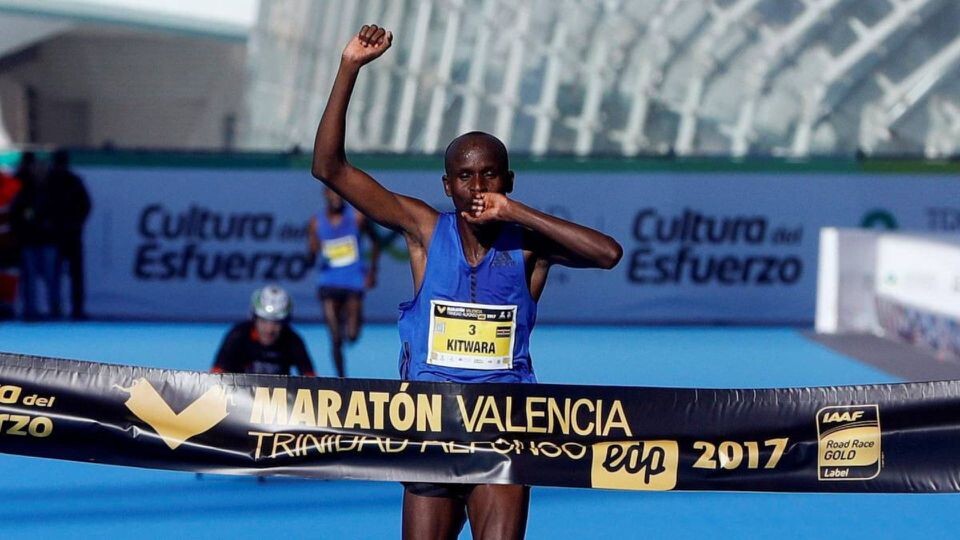
The 2017 Valencia Marathon champion was banned by the Athletics Integrity Unit (AIU) back in 2019 for the presence of Nanning Terbutaline, a drug used as a "reliever" inhaler in the management of asthma symptoms.
His positive test came from the Seul International Marathon in March 2019 where he took seventh place with 2:09:52. Kitwara said he took the drug without knowing it was banned by WADA. He had also failed to consult with a doctor to obtain a therapeutic use exemption (TUE).
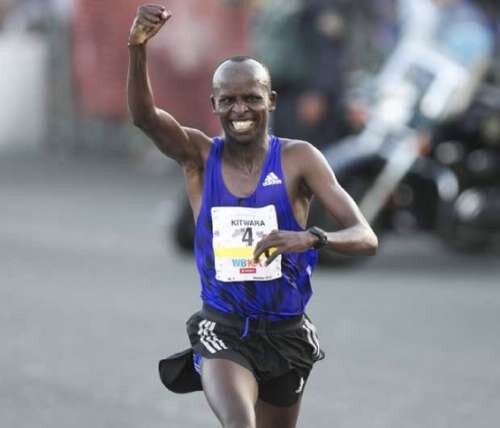
Kitwara will be joined by compatriot Nicholas Kirwa and the Kenyan duo will be up against top runners including Ethiopia’s Hiribo Shano Share and Omar Ait Chitachen.
Speaking at a press conference, Mohamed Knidiri, the Grand Atlas (AGA) and director of this international competition indicated that the marathon is organized under the high patronage of HM King Mohammed VI.
“Over the years, MIM has become a school for promoting and launching great champions of this discipline, who have left their mark on the international scene, particularly among Moroccan athletes.
“Thanks to upstream planning and operational management experienced in major competitions, the MIM aims not only to obtain the 11th place in the world obtained in 2013 but, even better, to become the essential international meeting for all the stars of this sporting discipline, like its glorious position in 2012 when it was the only marathon on the African continent qualified for the London Olympic Games,” he said.
He also hoped that this edition would be marked by the achievement of new records, particularly among the men.
by Abigael Wuafula
Login to leave a comment
Marrakech Marathon
The magical town of Marrakesh offers an exceptional setting, a very mild climate in January and a beautiful circuit considered as one of the fastest in the world. It goes along the alleys of palm trees, orange, and olive trees, but also the ramparts of the city. The International Marathon of Marrakesh is not only expected to reconquer the prime...
more...Hosea Kimeli given three year ban as 2023 Zagreb Marathon title stripped off his name
Hosea Kimeli has been slapped with a three-year ban by the AIU and all his results since October 8, 2023, have been disqualified, including the forfeiture of any titles, awards, medals, points, prizes and appearance money
The Athletics Integrity Unit (AIU) has slapped Hosea Kimeli Kisorio with a three-year ban for an anti-doping rule violation.
The 33-year-old found himself on the list of shame after his tests came out positive for the presence of EPO, a Prohibited Substance under the WADA 2023 Prohibited List under the category S2 Peptide Hormones, Growth Factors, Related Substances and Mimetics.

As per AIU, the period ineligibility to be imposed is therefore a period of four years, unless the Athlete demonstrates that the Anti-Doping Rule Violations were not intentional.
“The Athlete has failed to demonstrate that the Anti-Doping Rule Violations were not intentional. Therefore, the mandatory period of Ineligibility is a period of Ineligibility of four years.
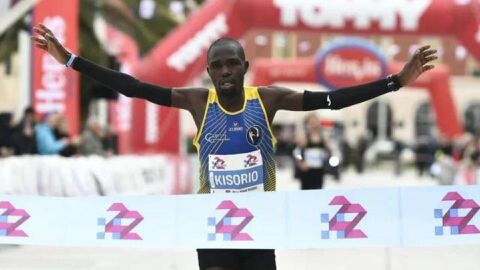
"However, Rule 10.8.1 ADR provides that an athlete potentially subject to an asserted period of Ineligibility of four (4) years may benefit from a one (1)-year reduction in the period of Ineligibility based on an early admission and acceptance of sanction,” the AIU further stated, adding that Kimeli admitted having committed the crime earlier this year, thus the reduction of the sanction.
This means that his results since he won the 2023 Zagreb Marathon have been disqualified.
Meanwhile, Kimeli was banned alongside his compatriot Ayub Kiptum who also received three years with his results from October 21, 2023 disqualified. Kiptum was banned for the Presence/Use of a Prohibited Substance (Testosterone).
by Abigael Wuafula
Login to leave a comment
Zagreb Marathon
Zagreb Marathon is a marathon and half marathon in Zagreb, Croatia. The marathon race is organized annually in October and was started in1992. The number of participants has increased over the years. Zagreb Marathon has an international character with participants from all over the world....
more...

